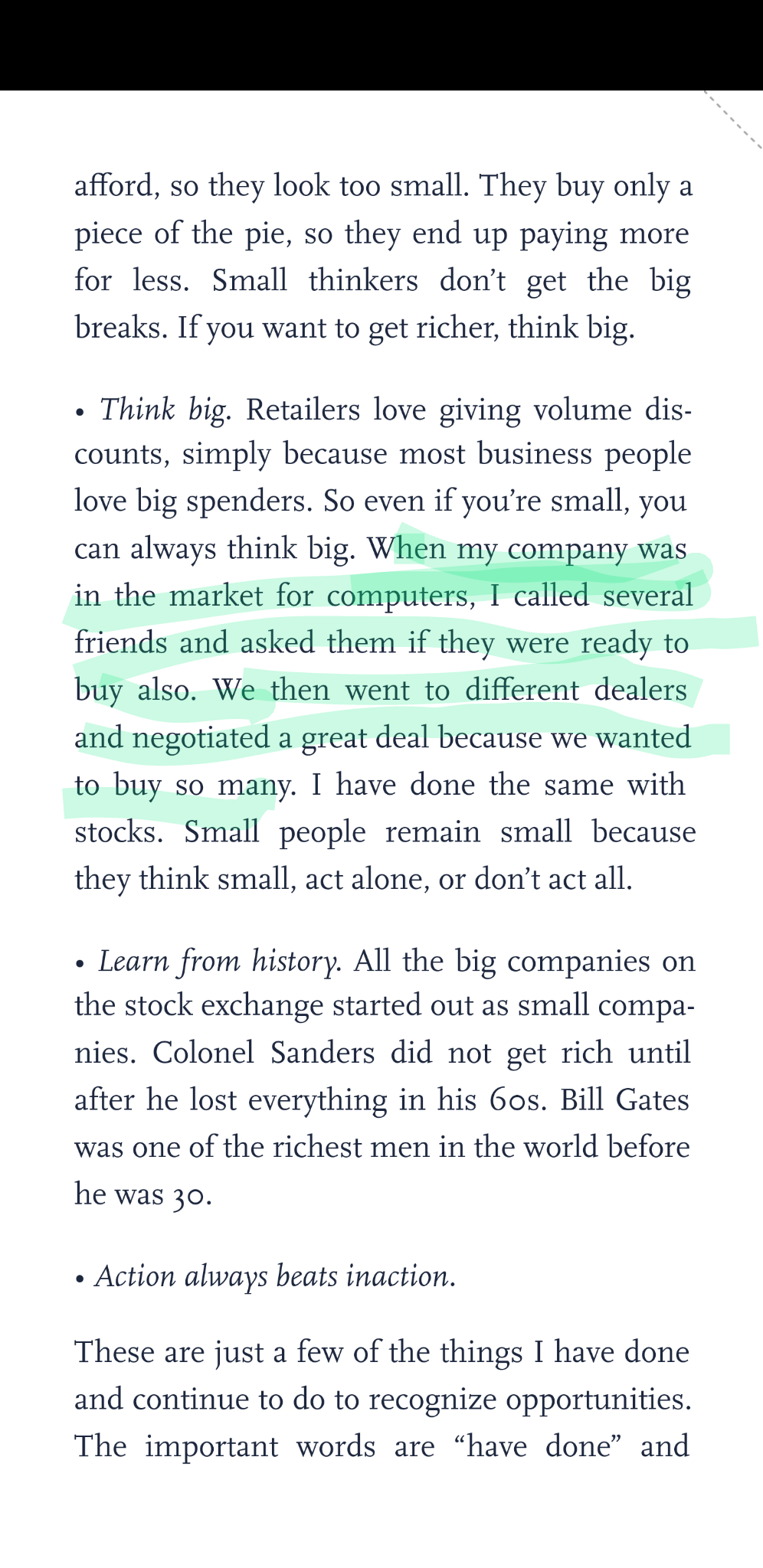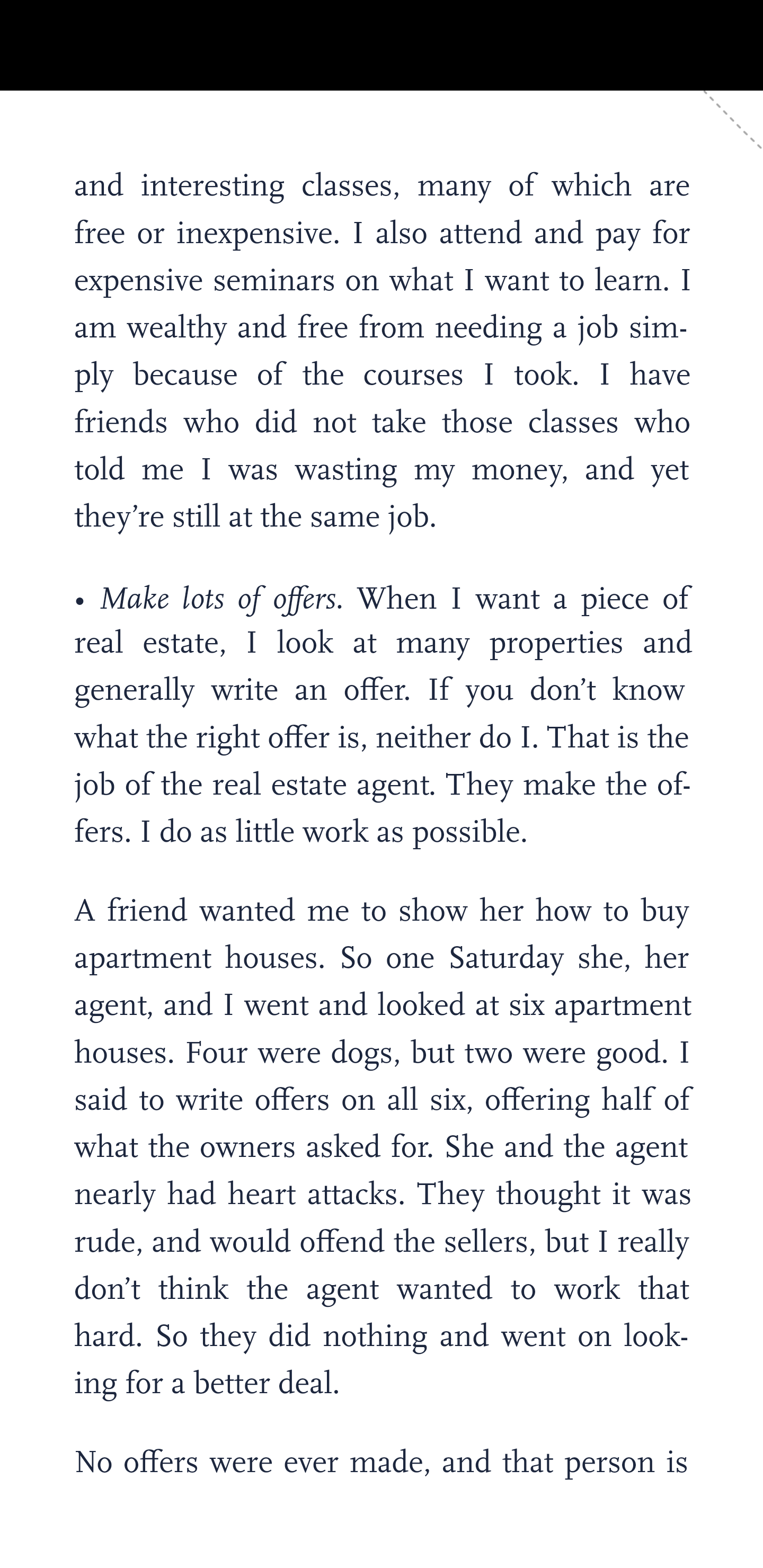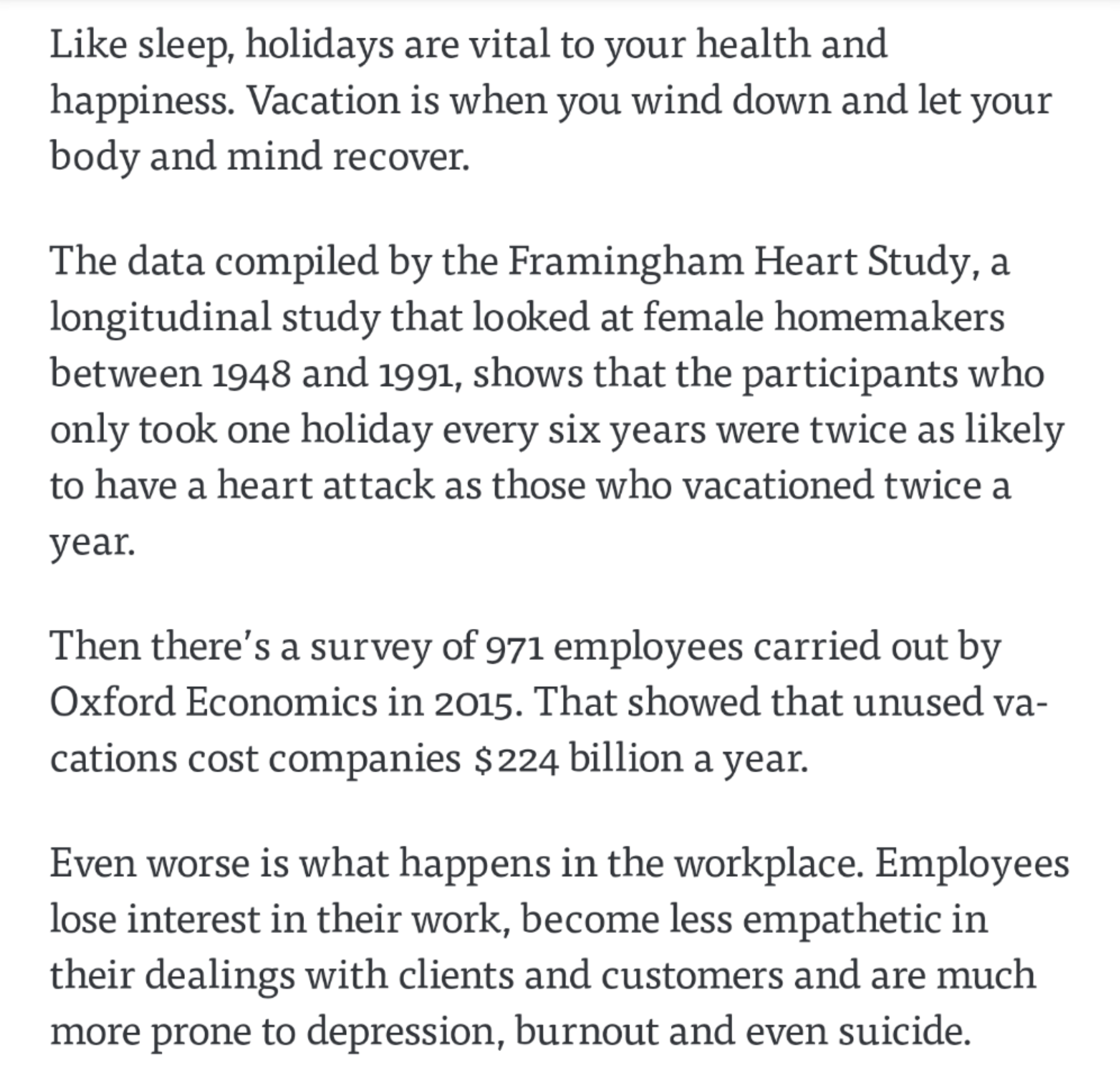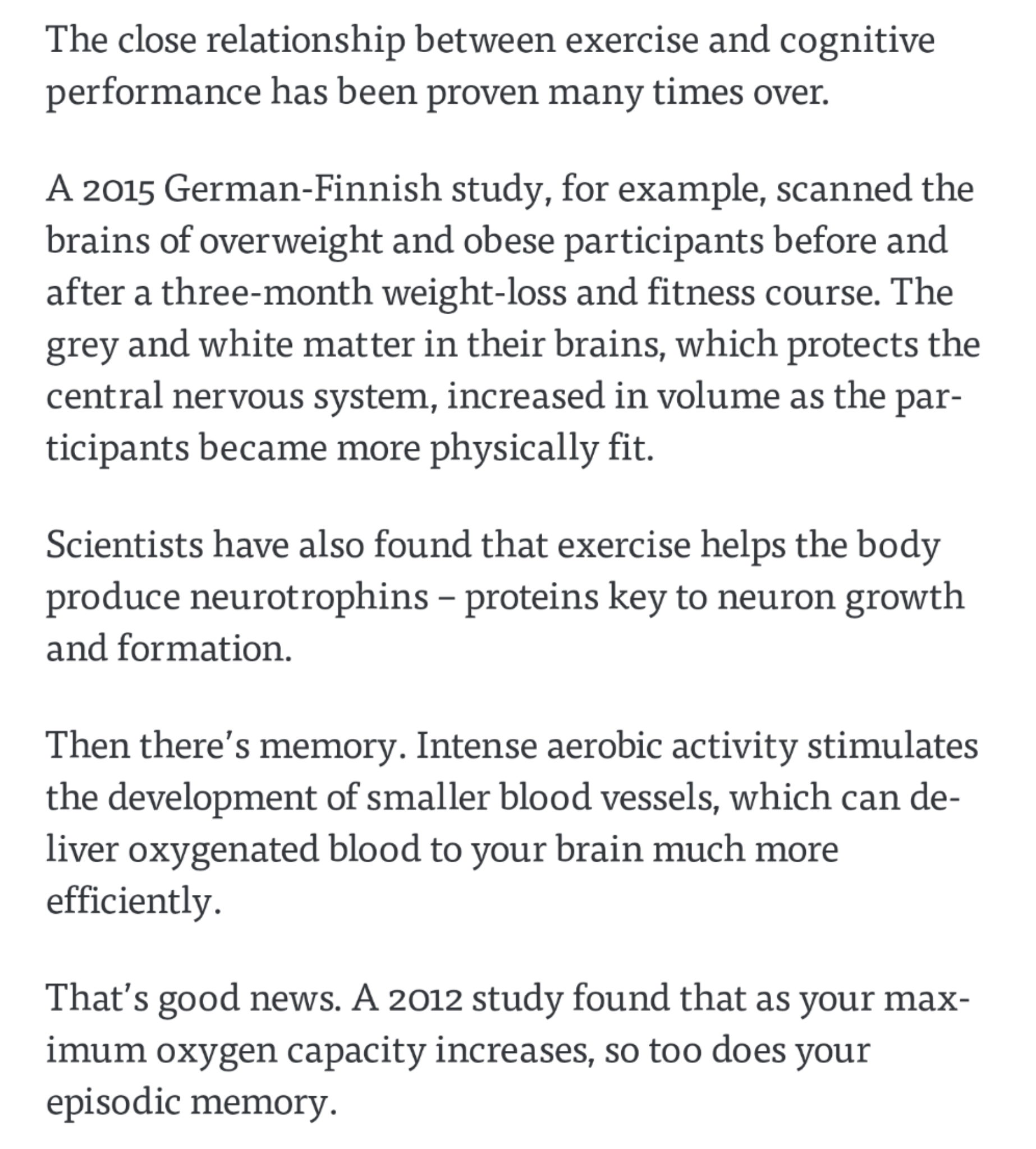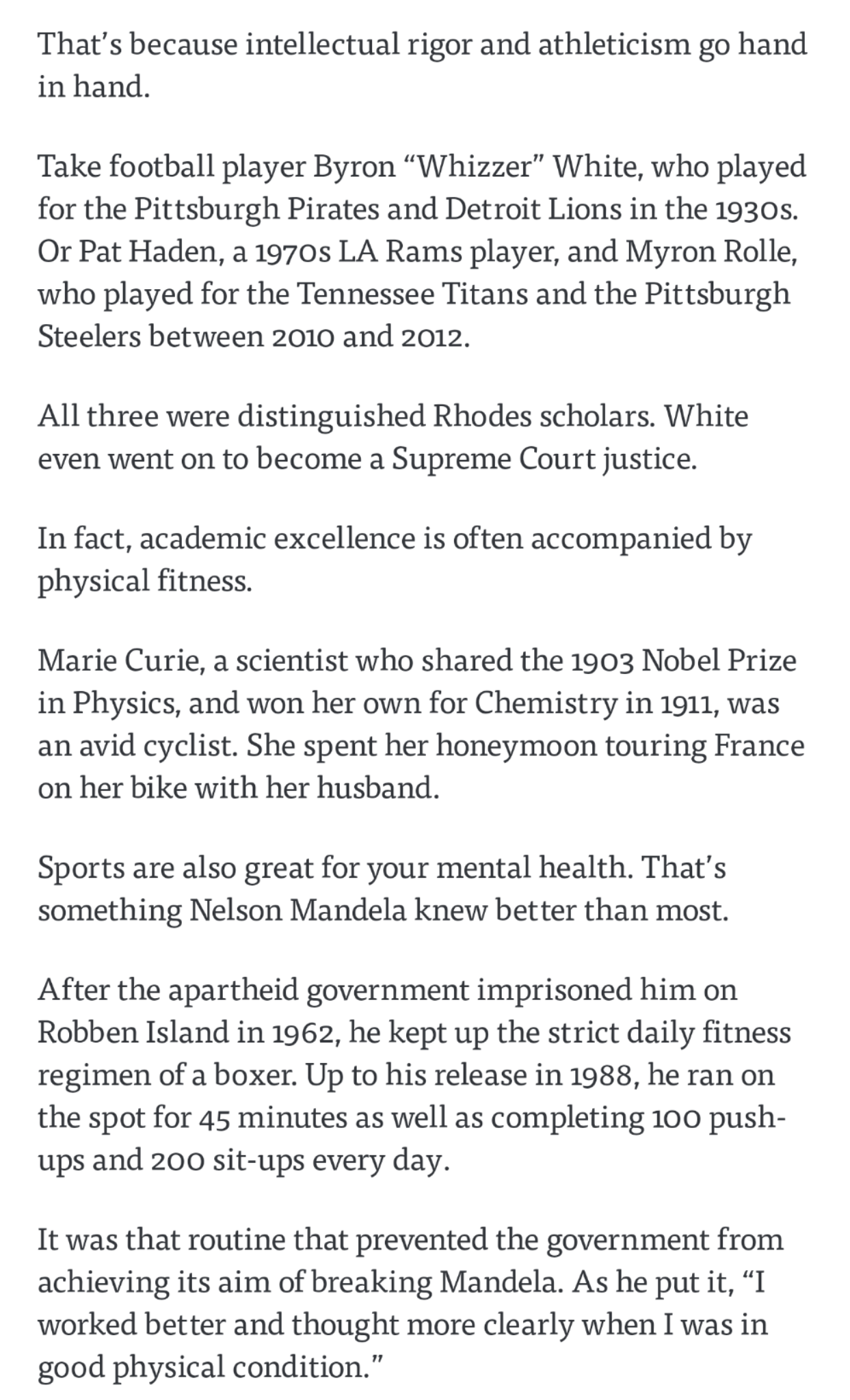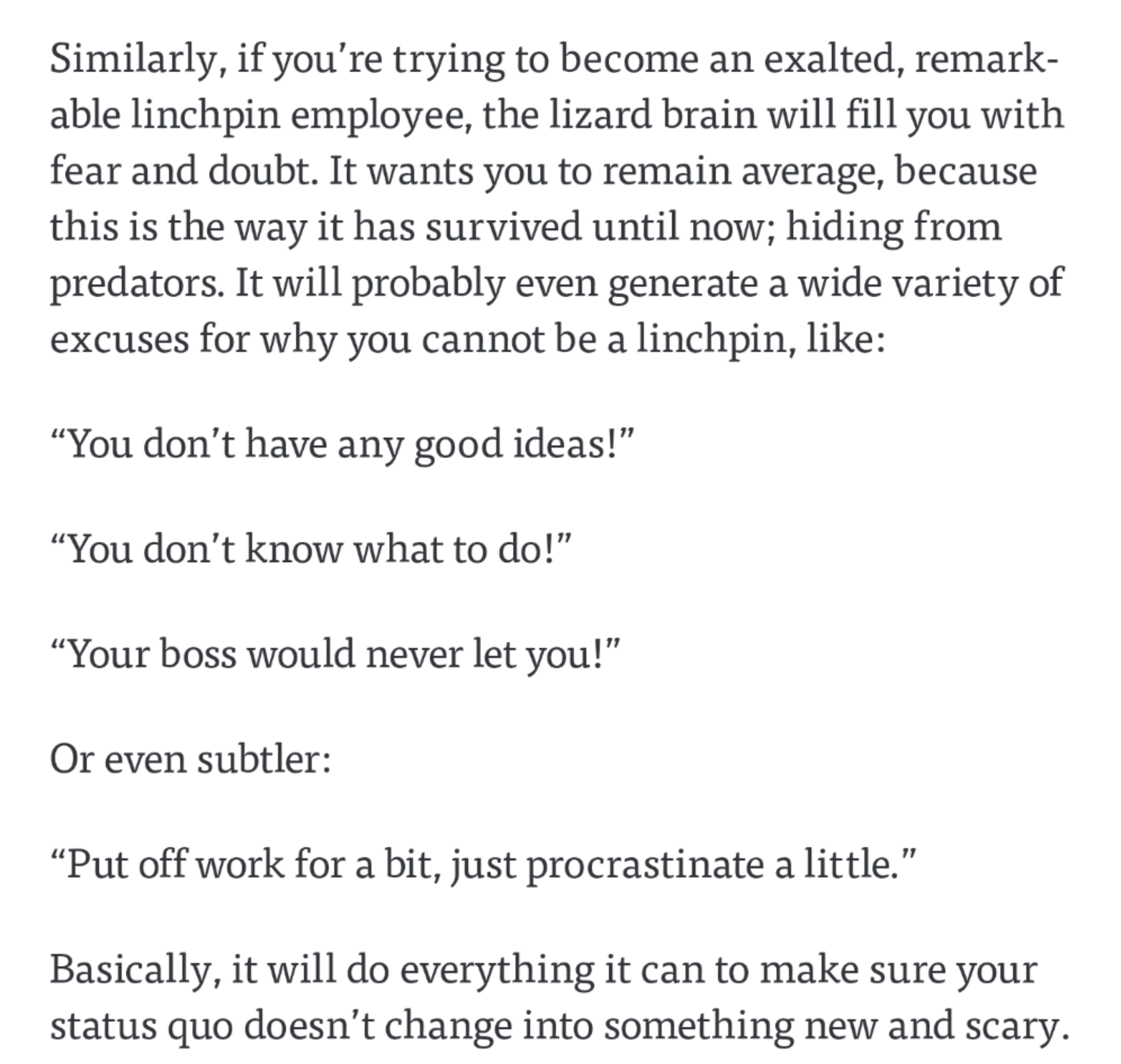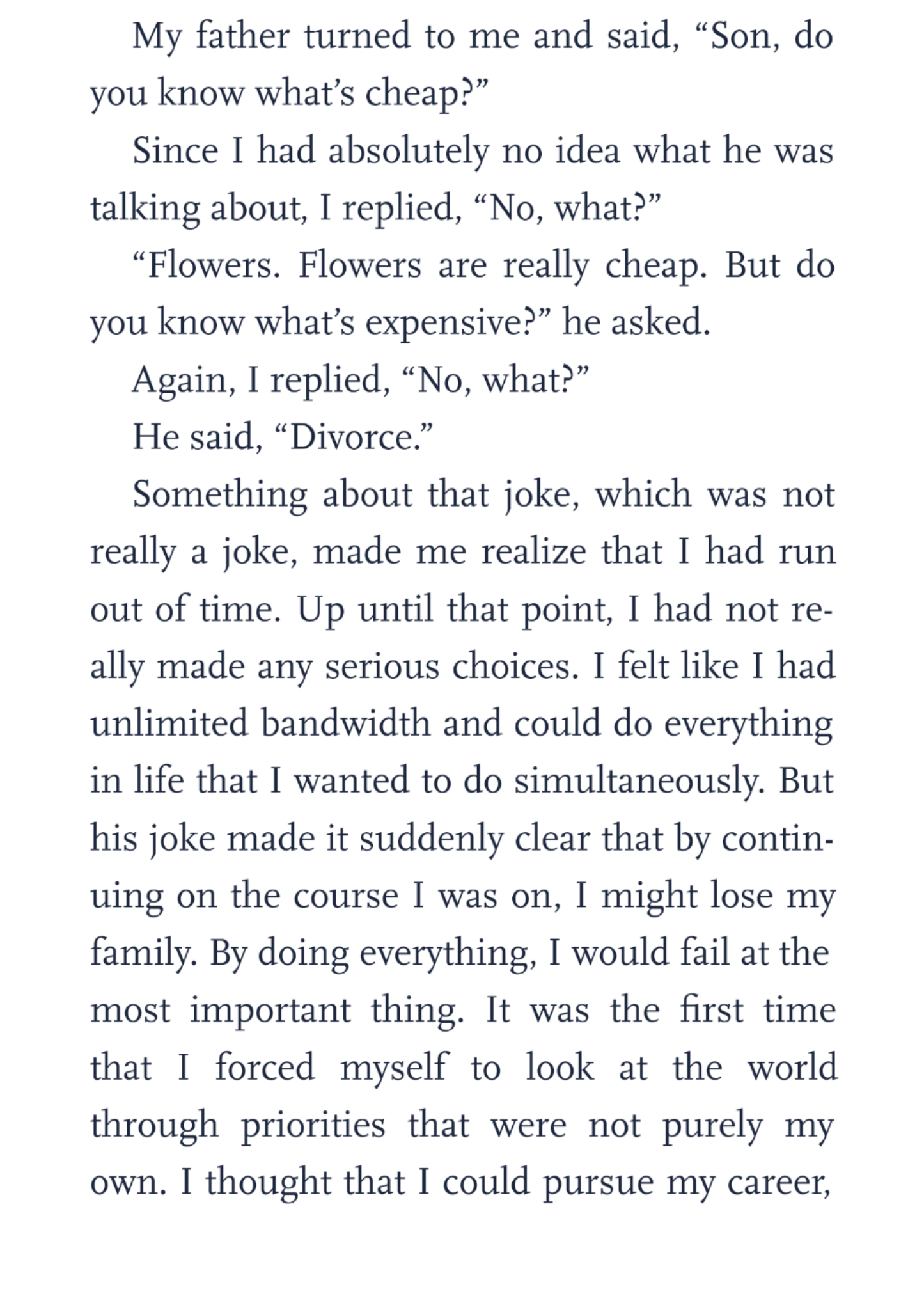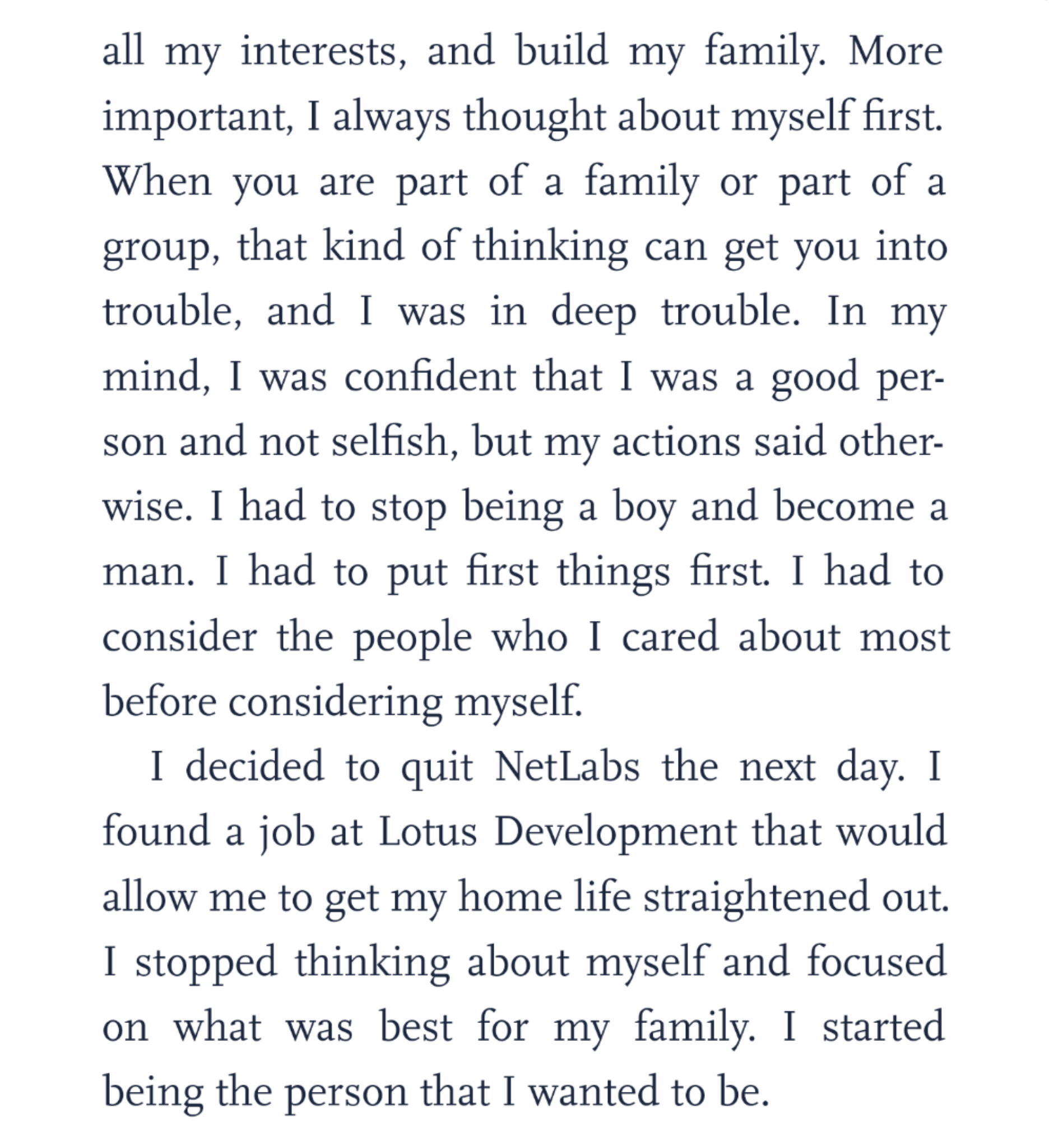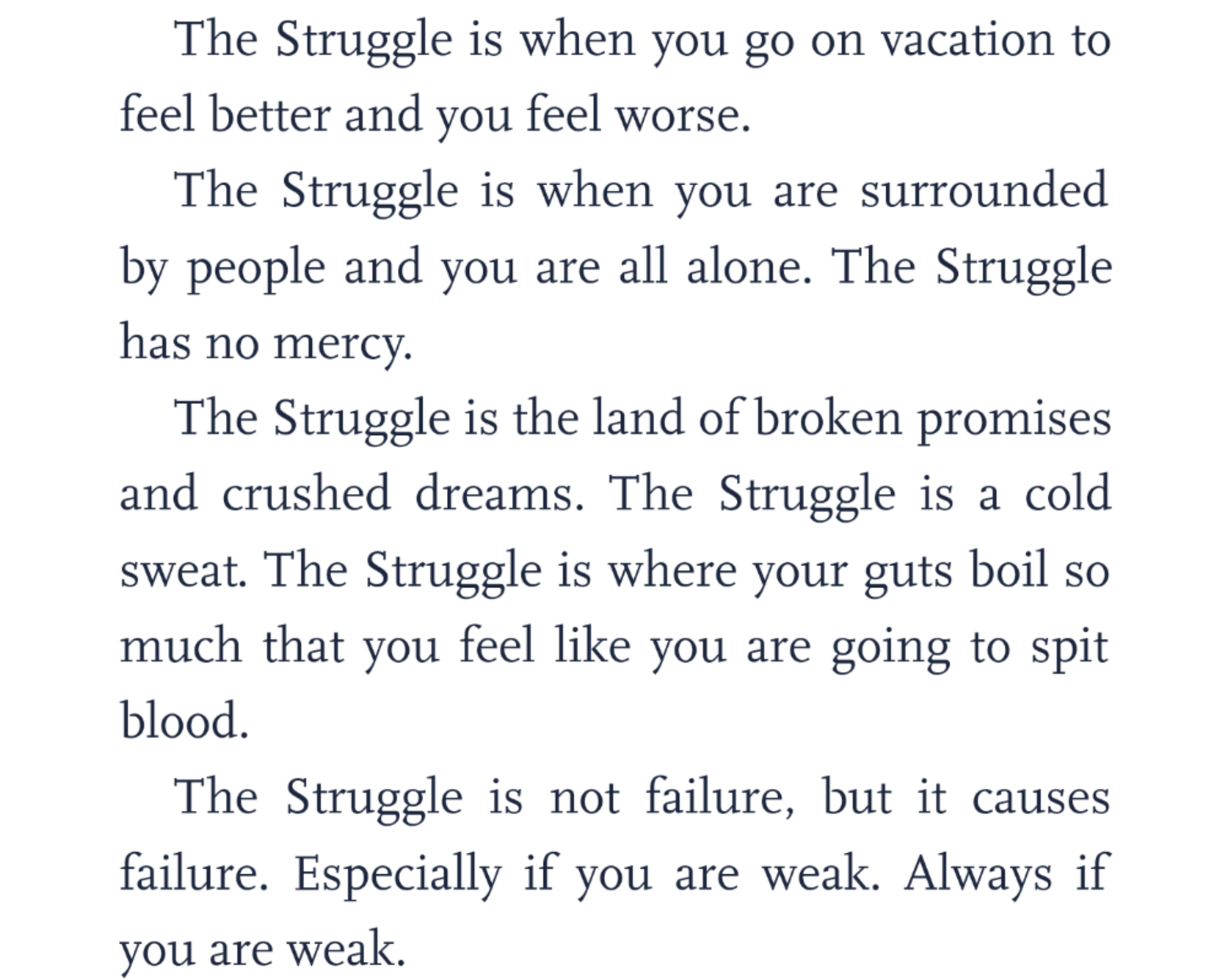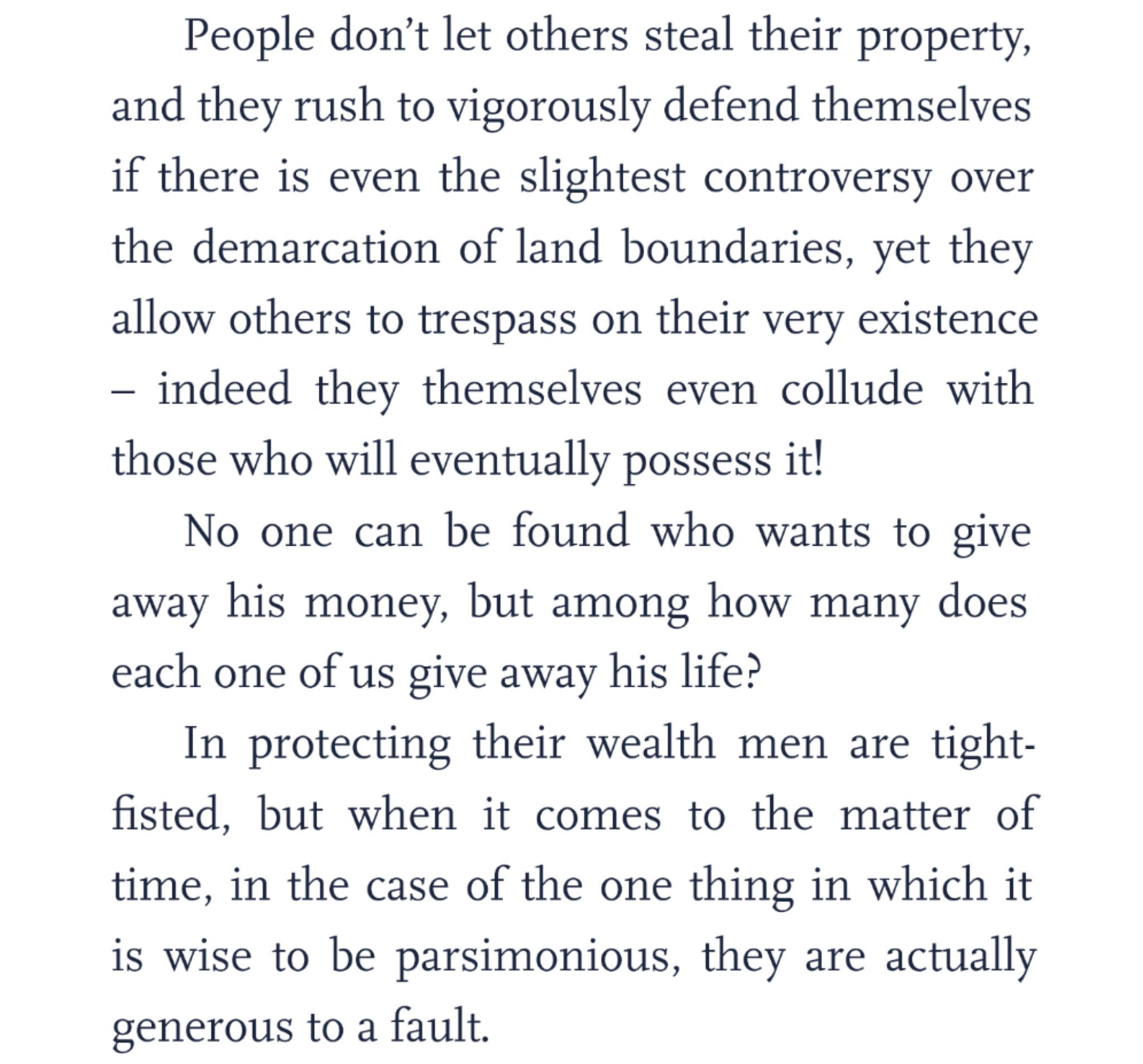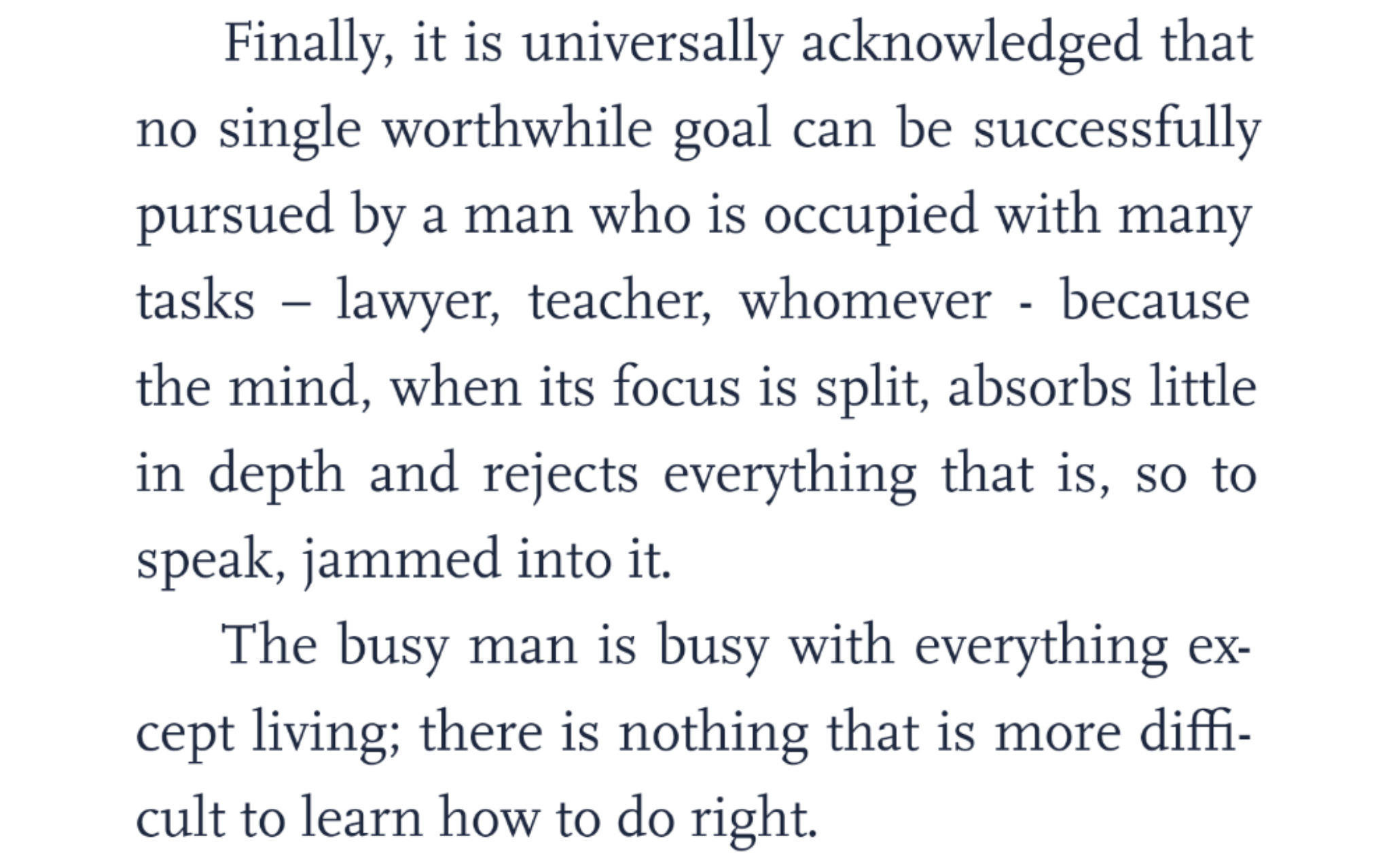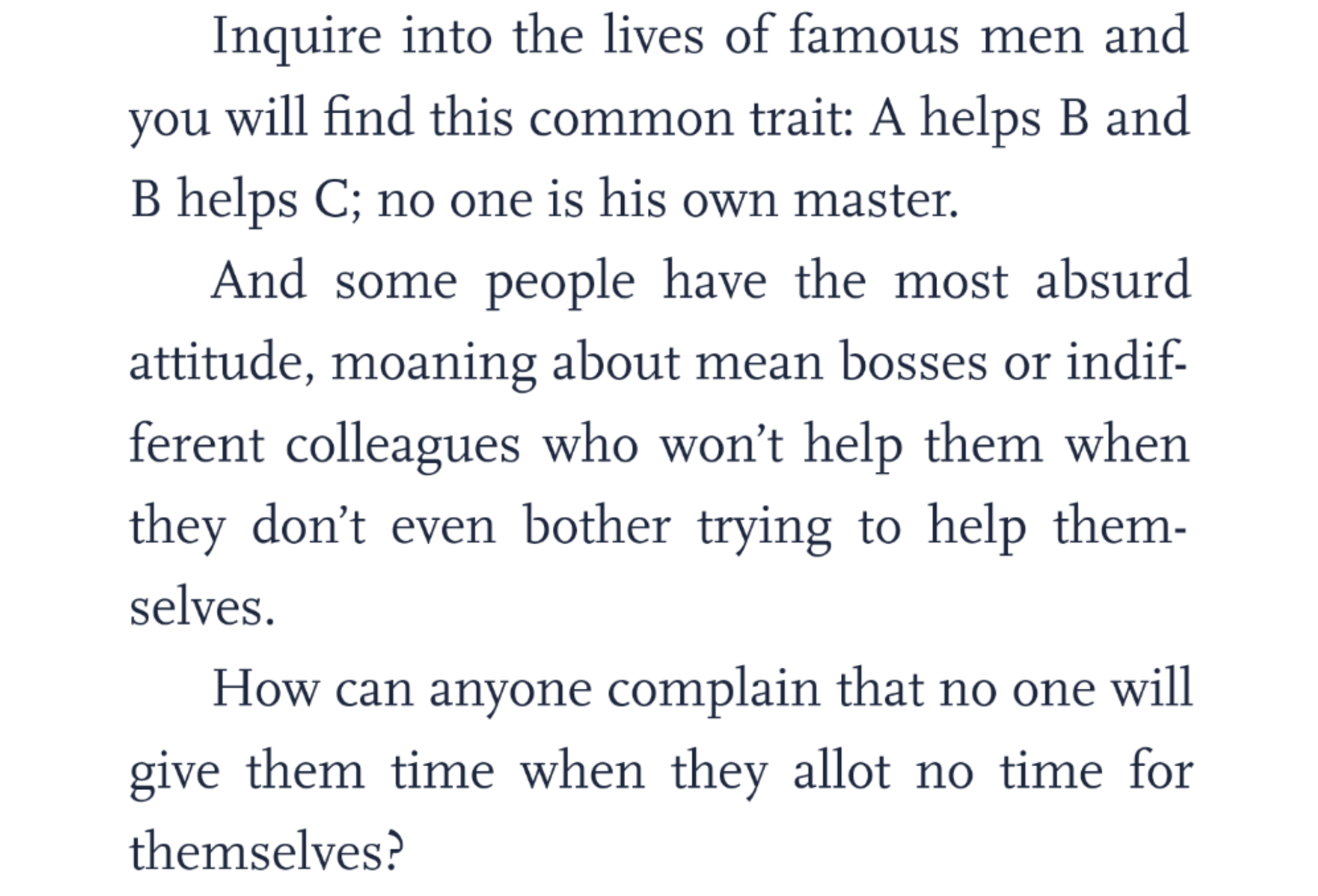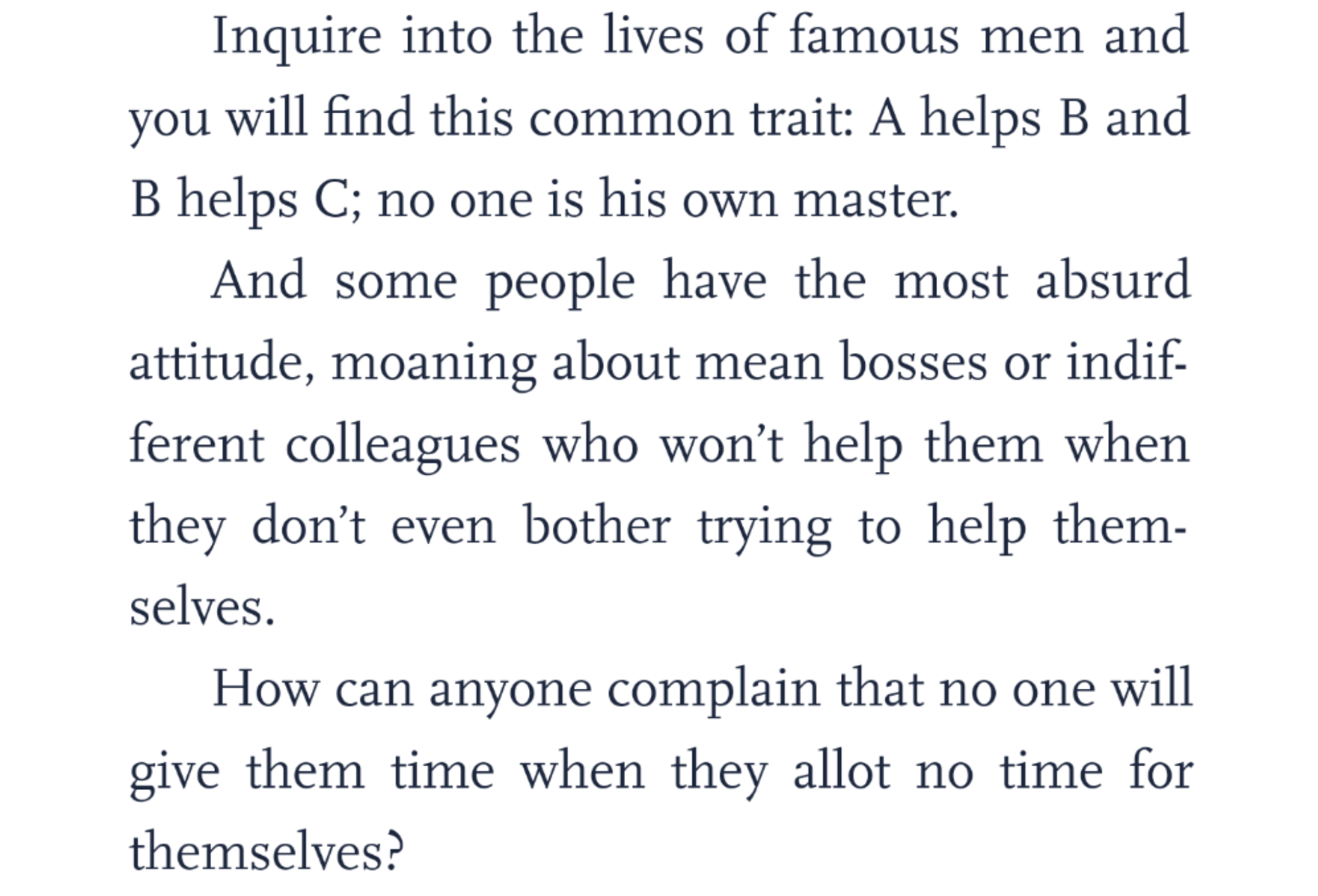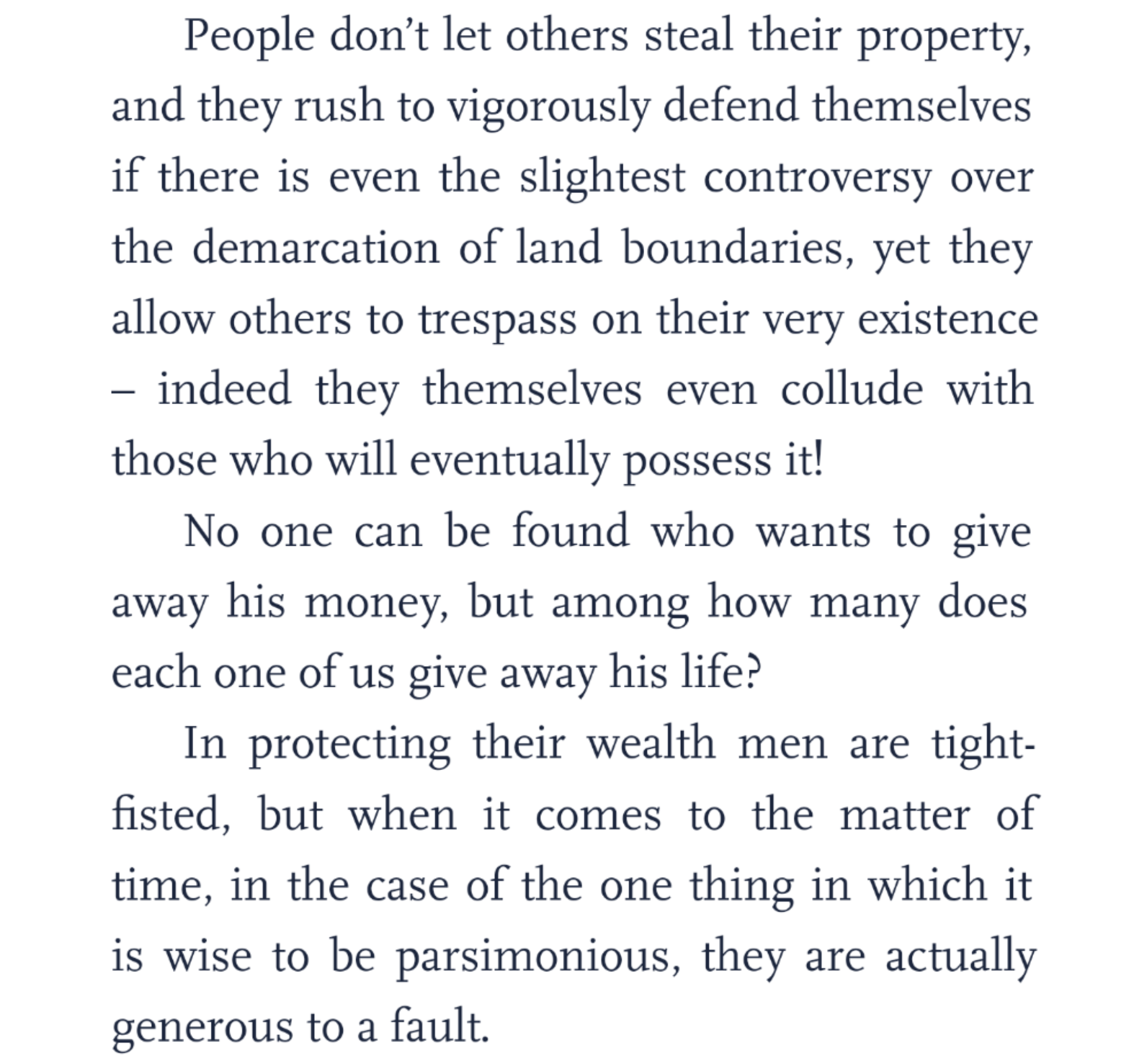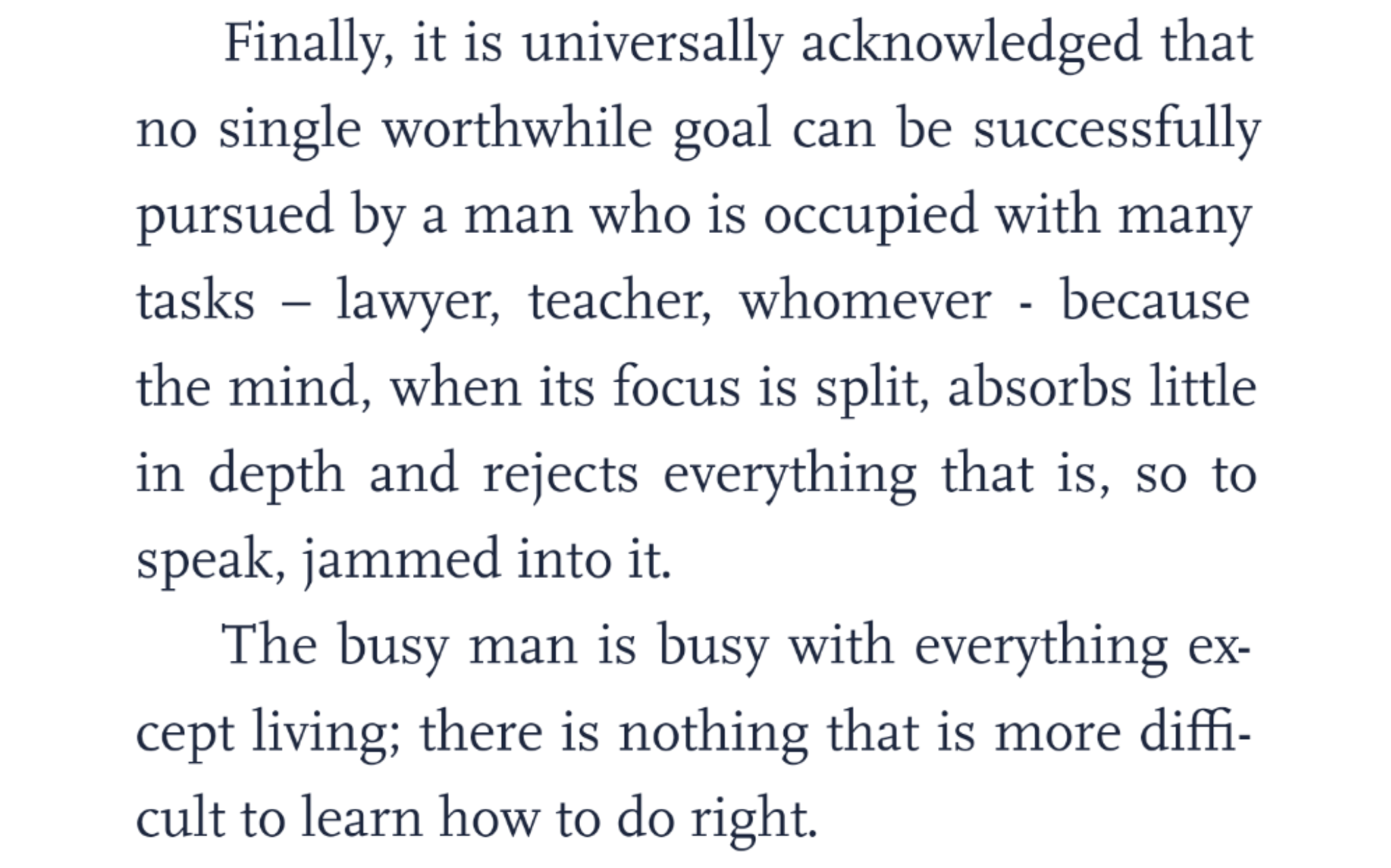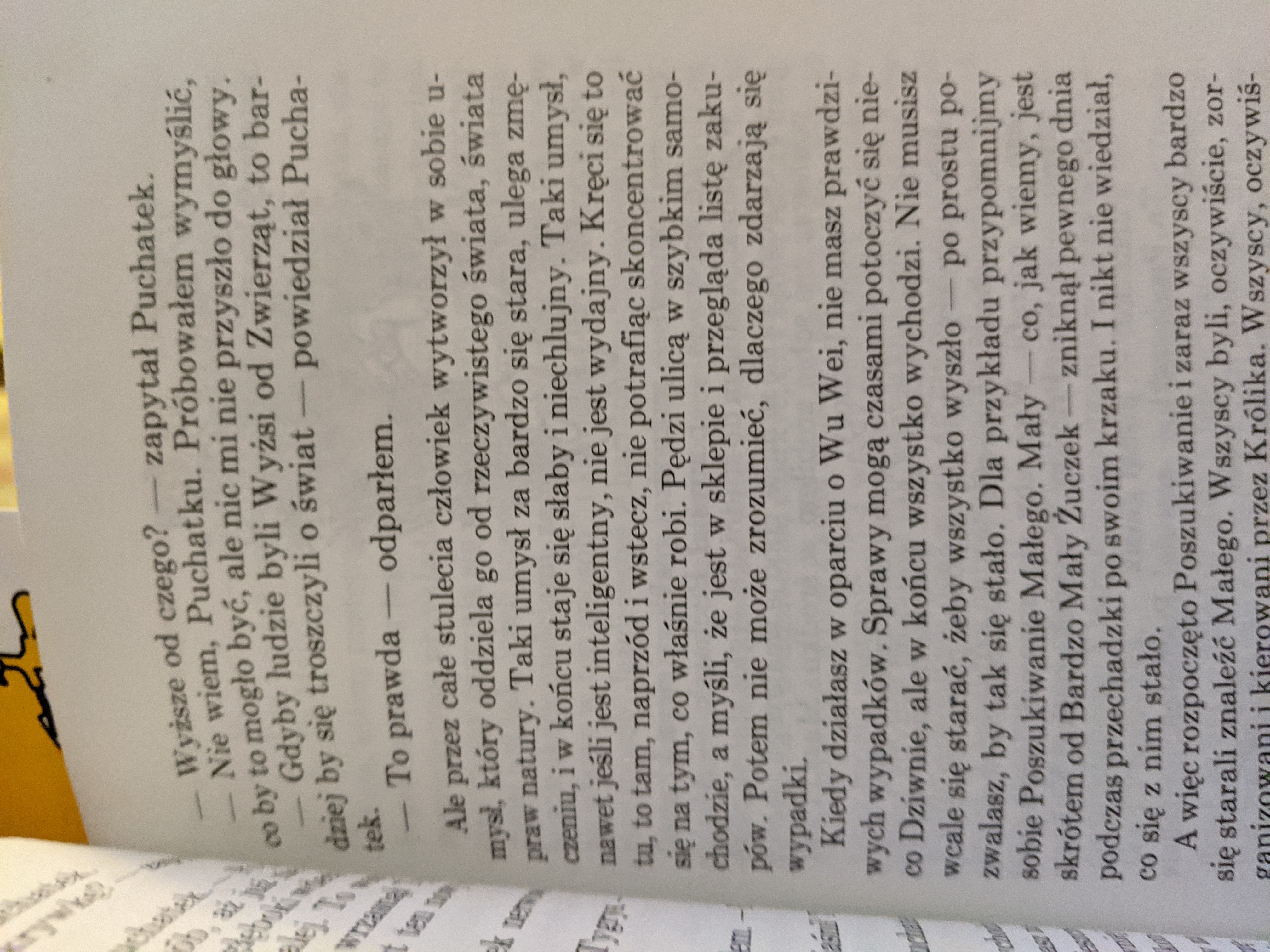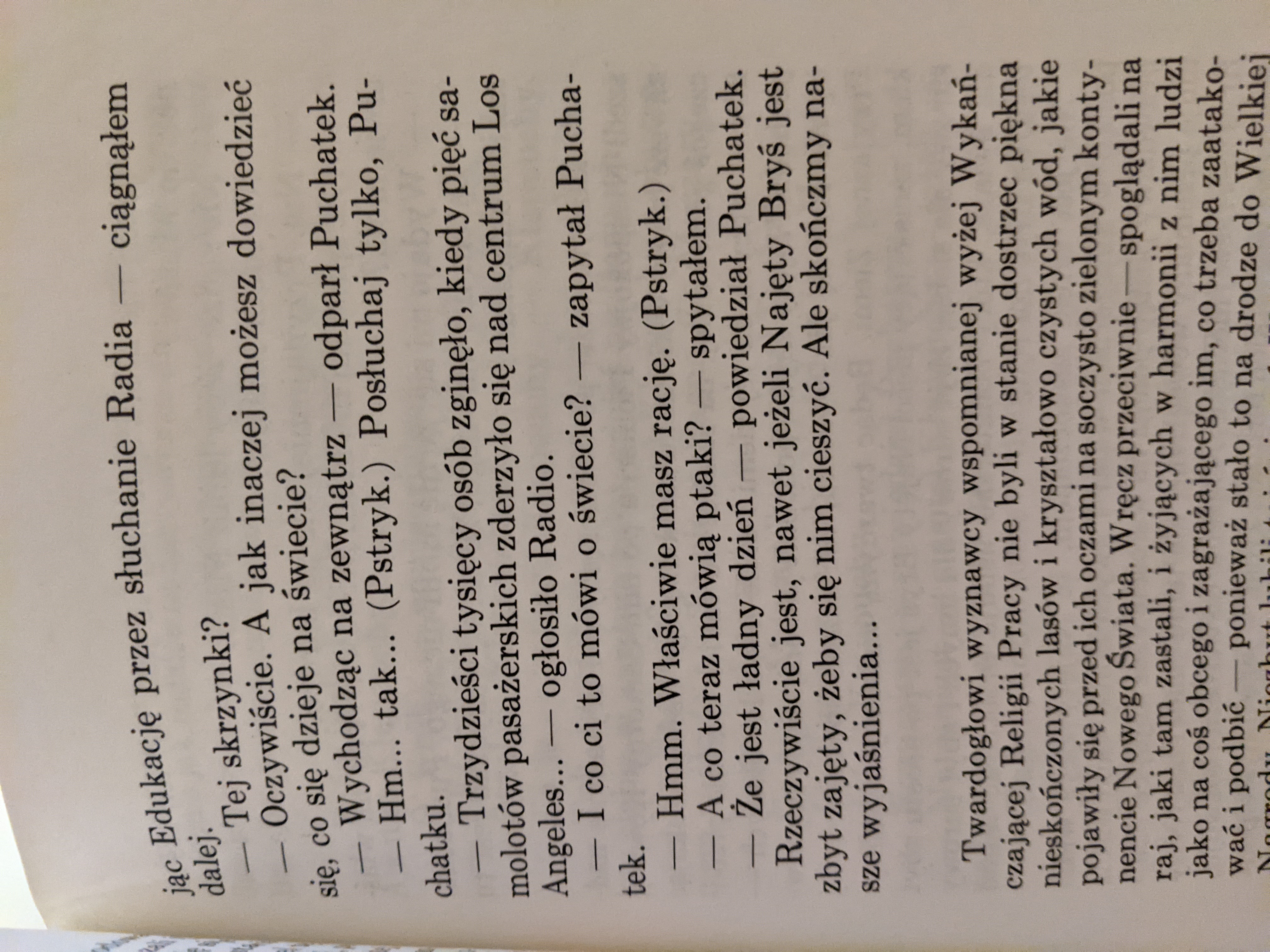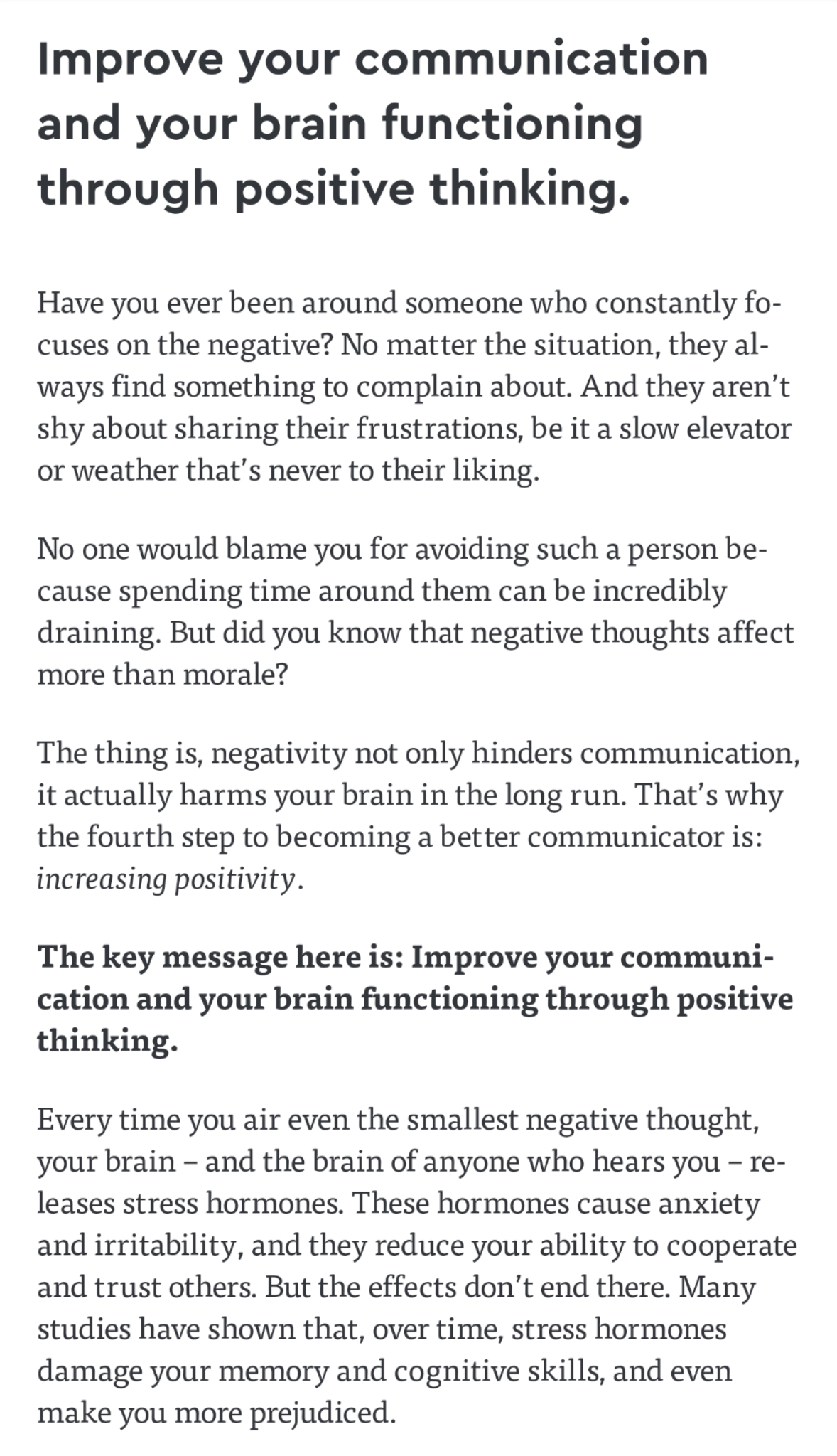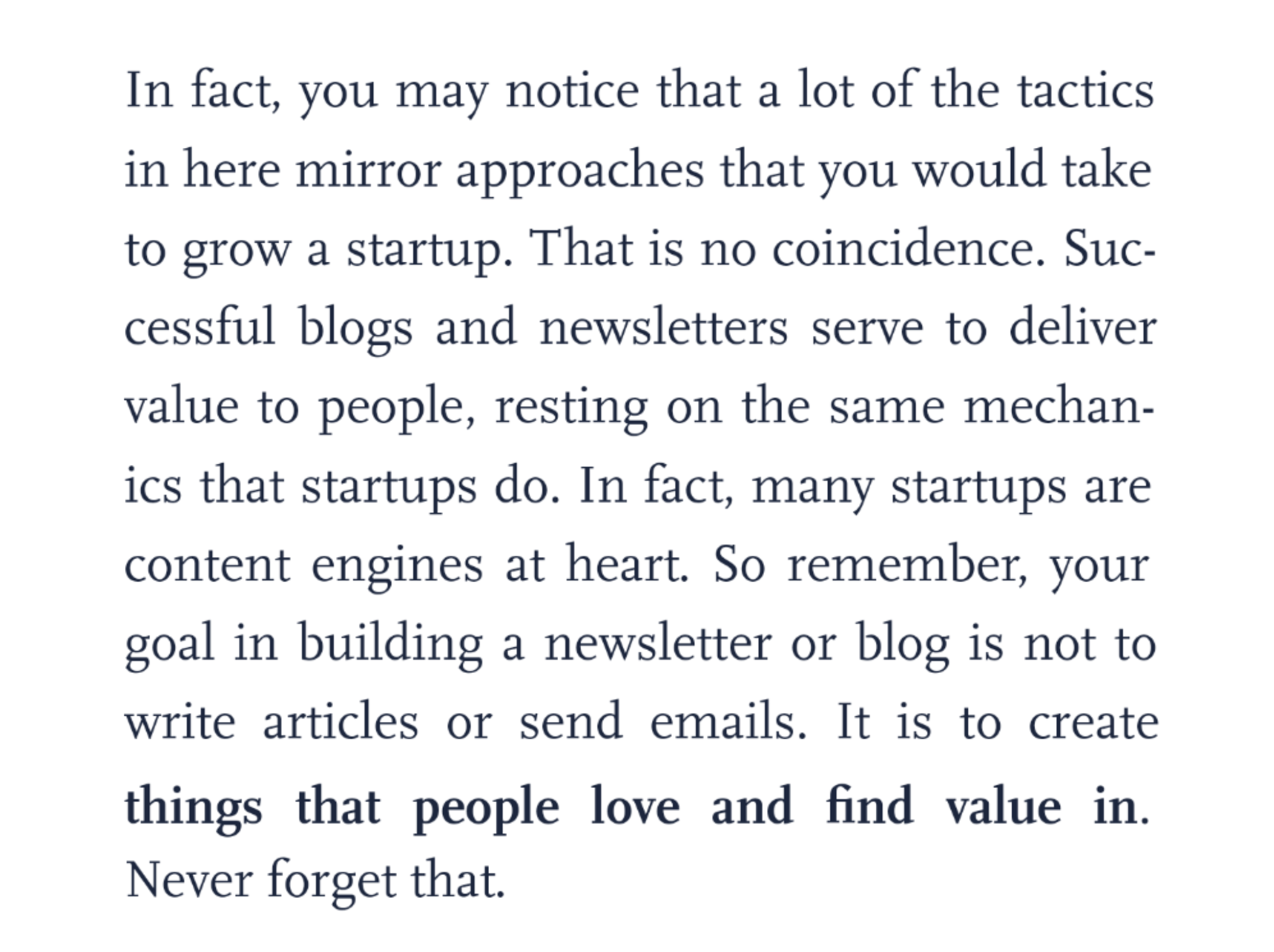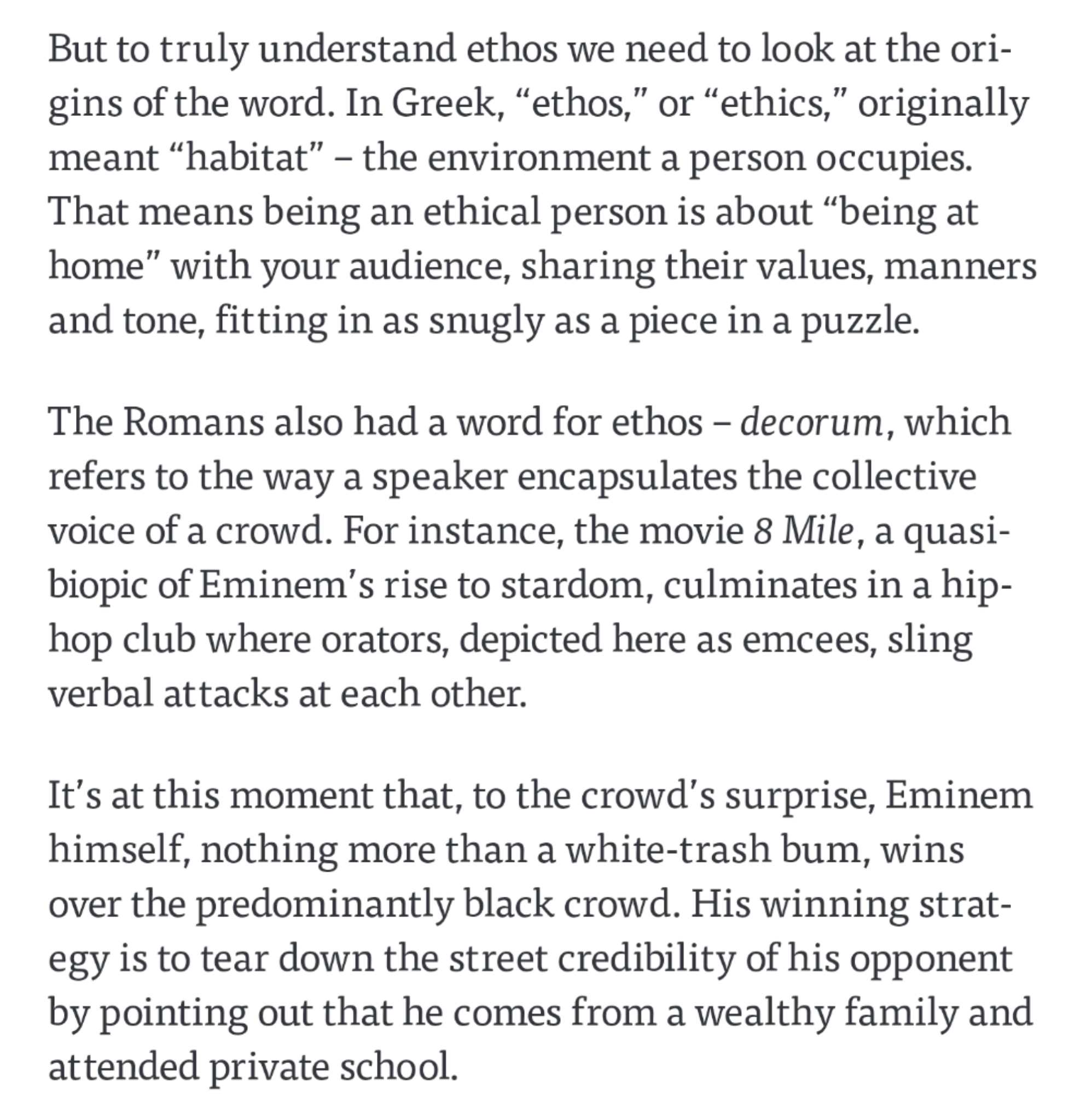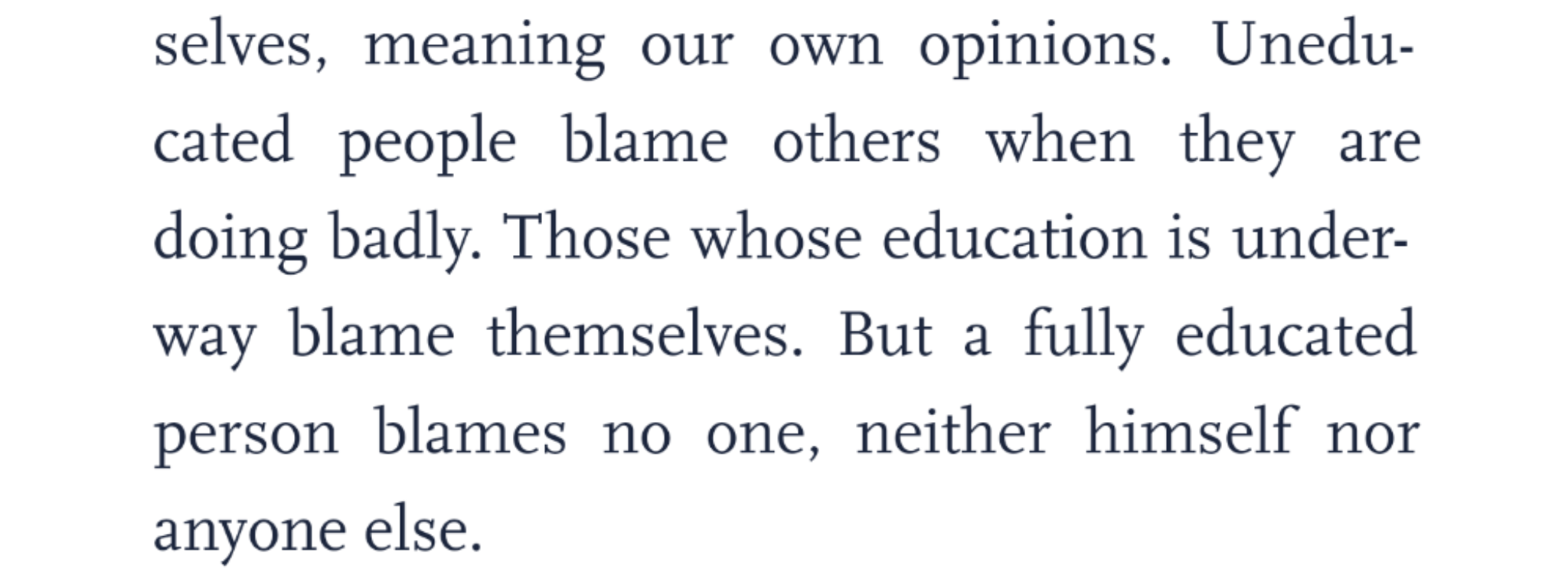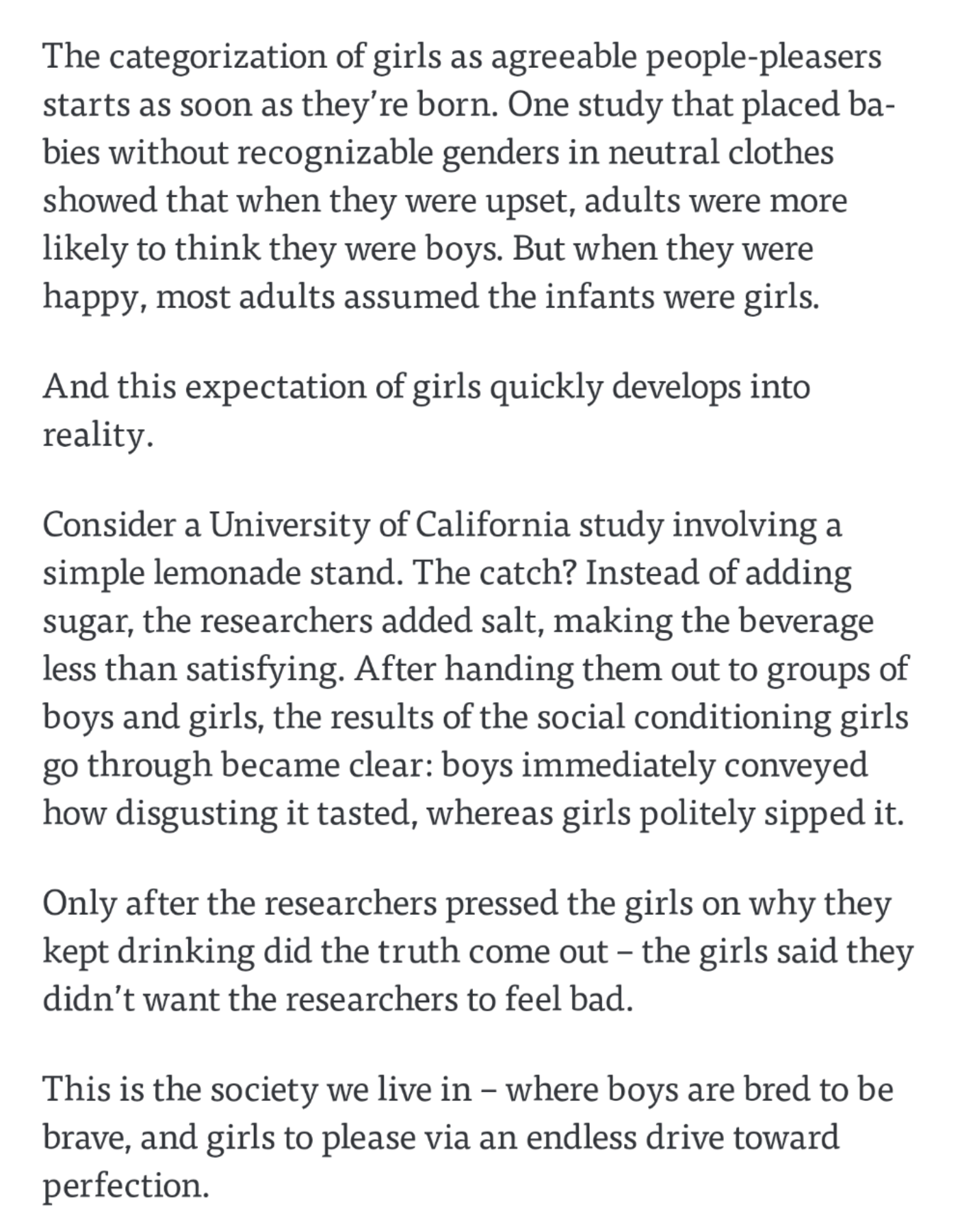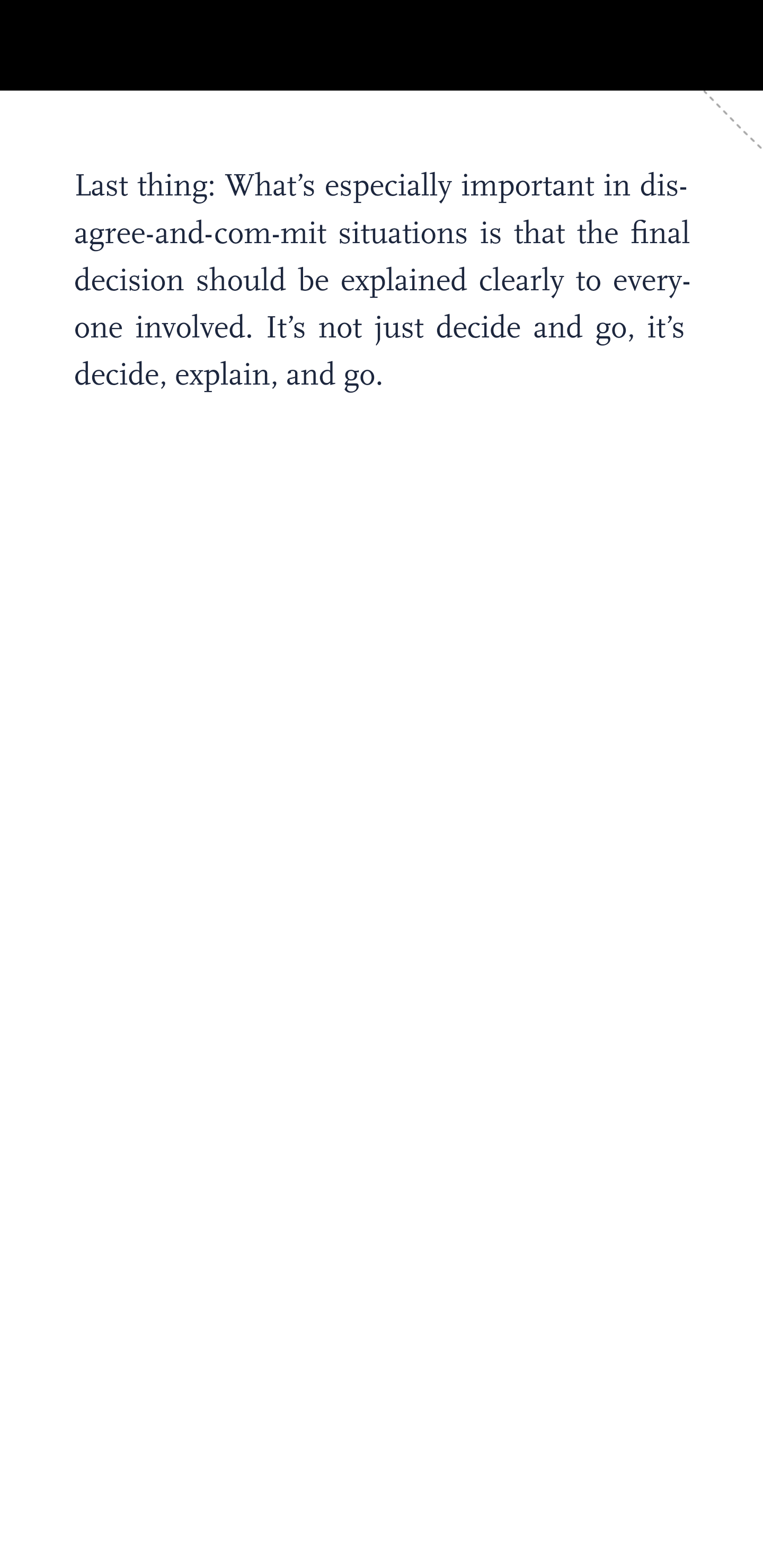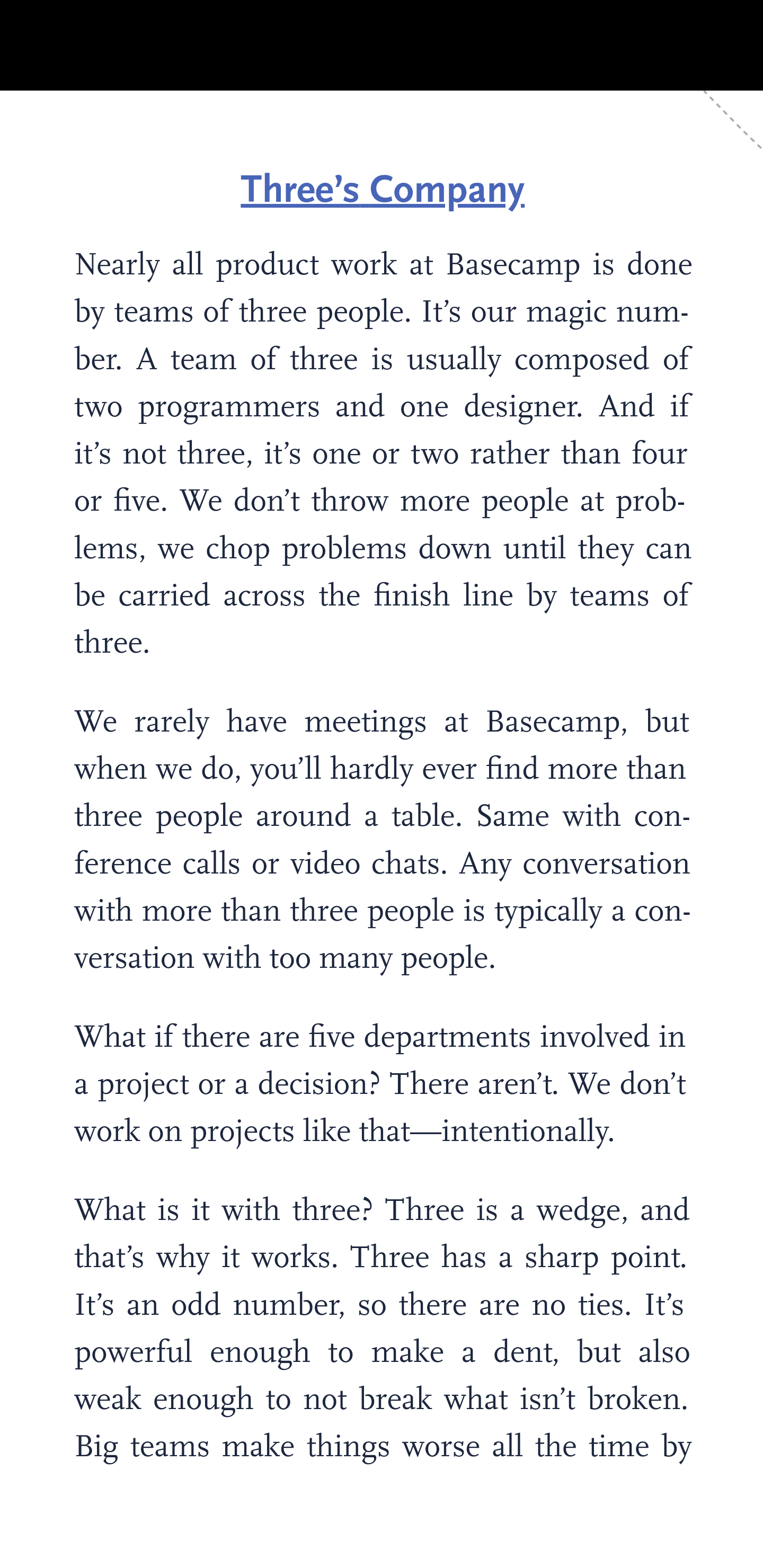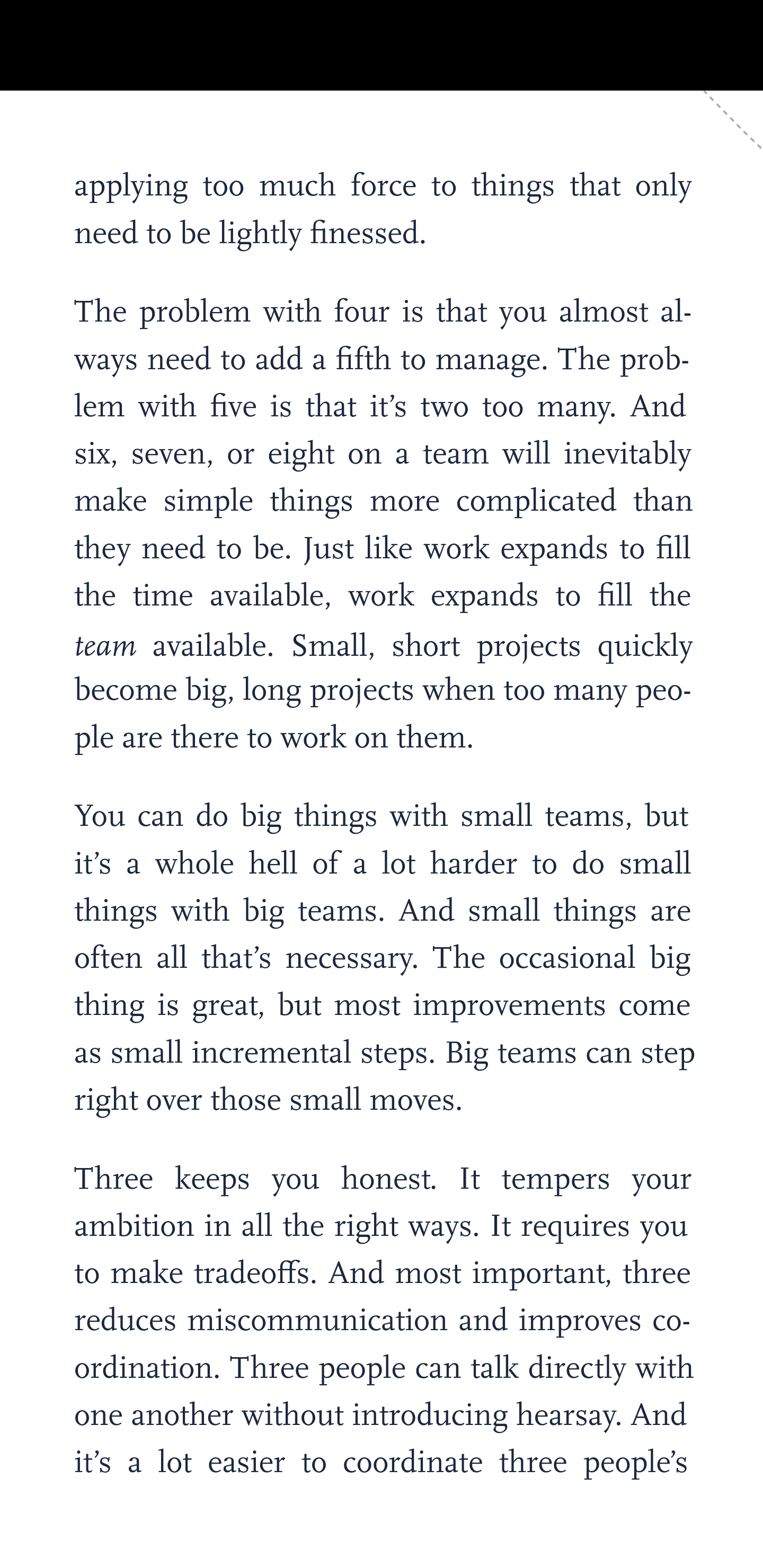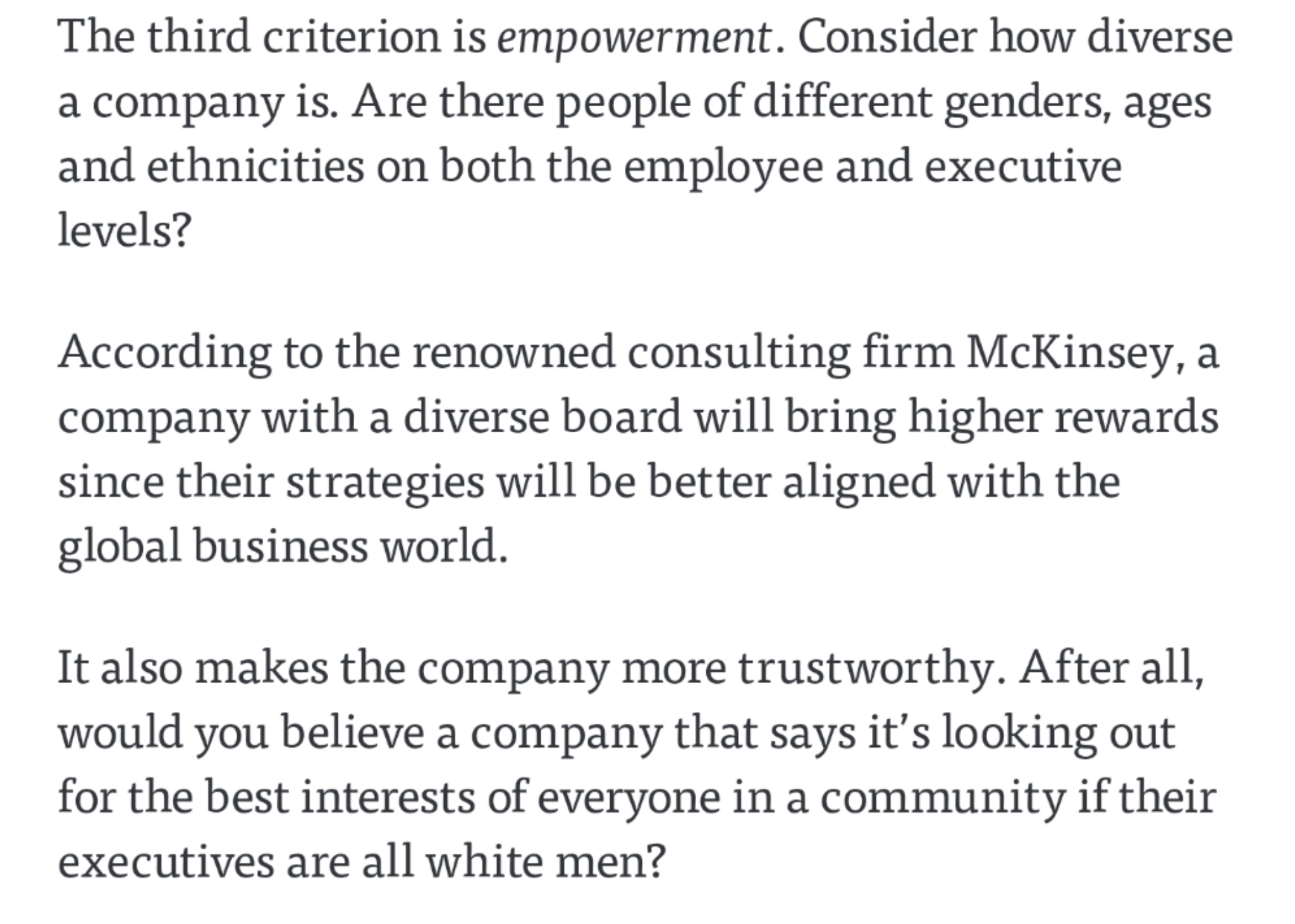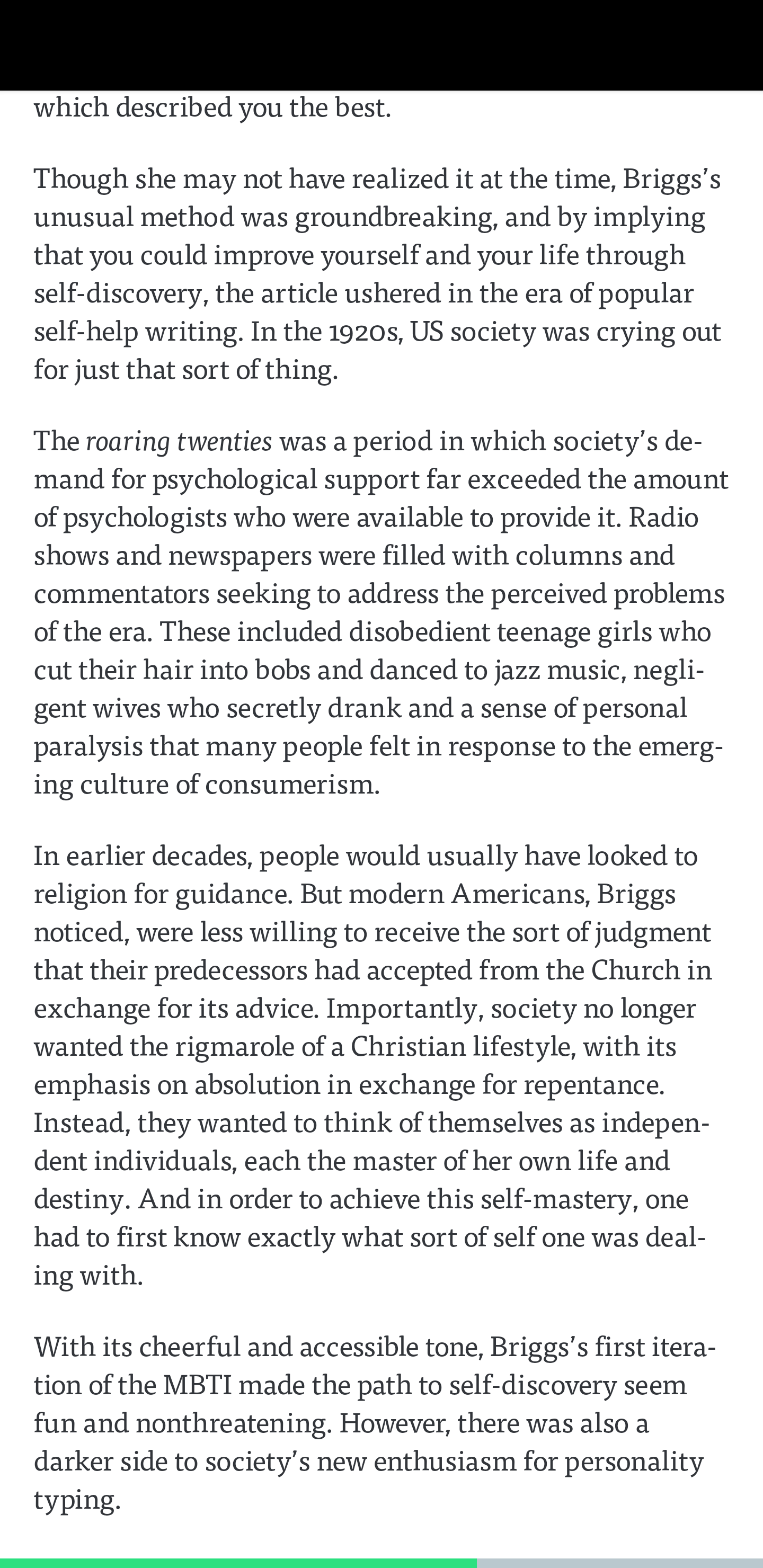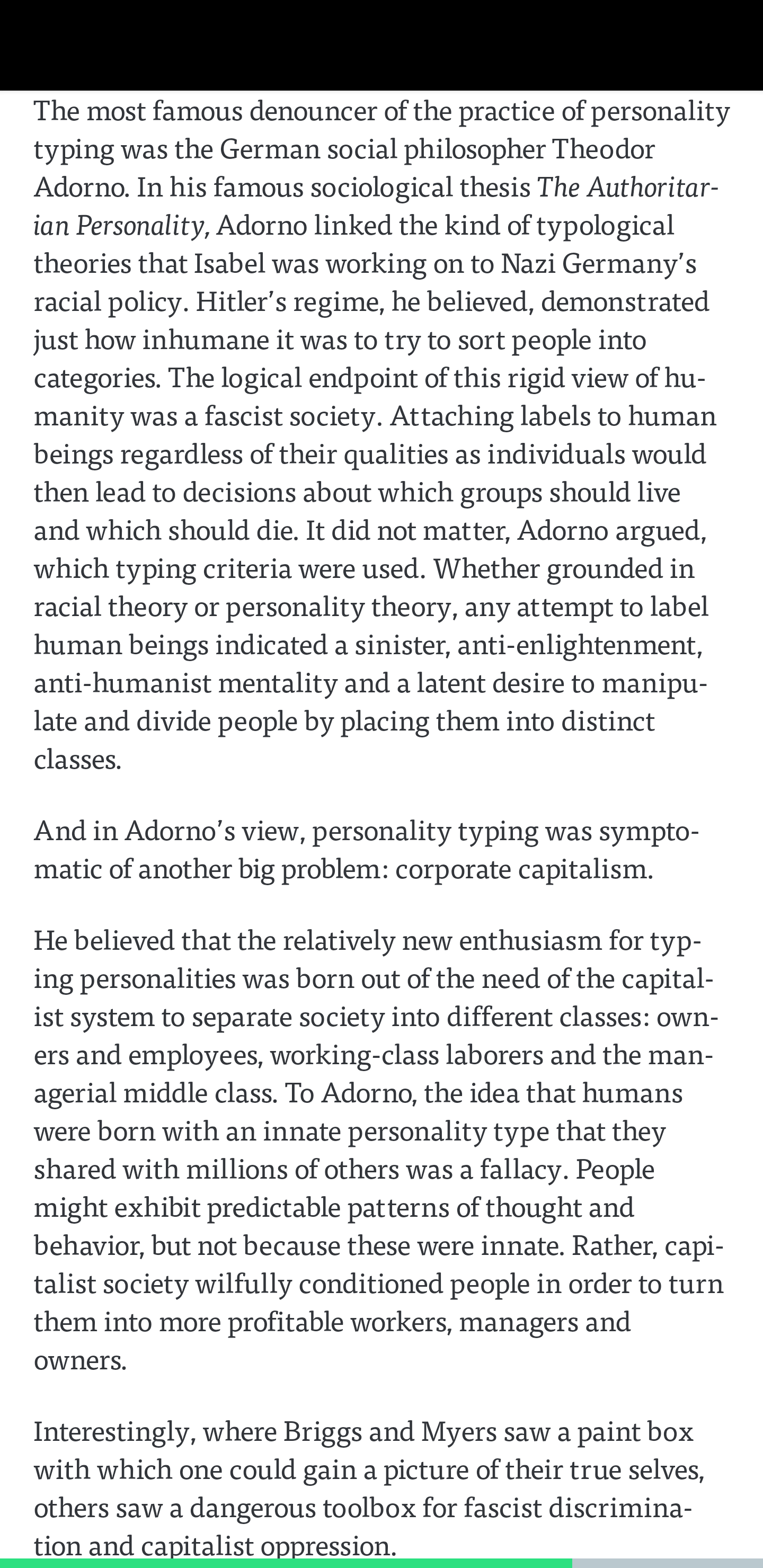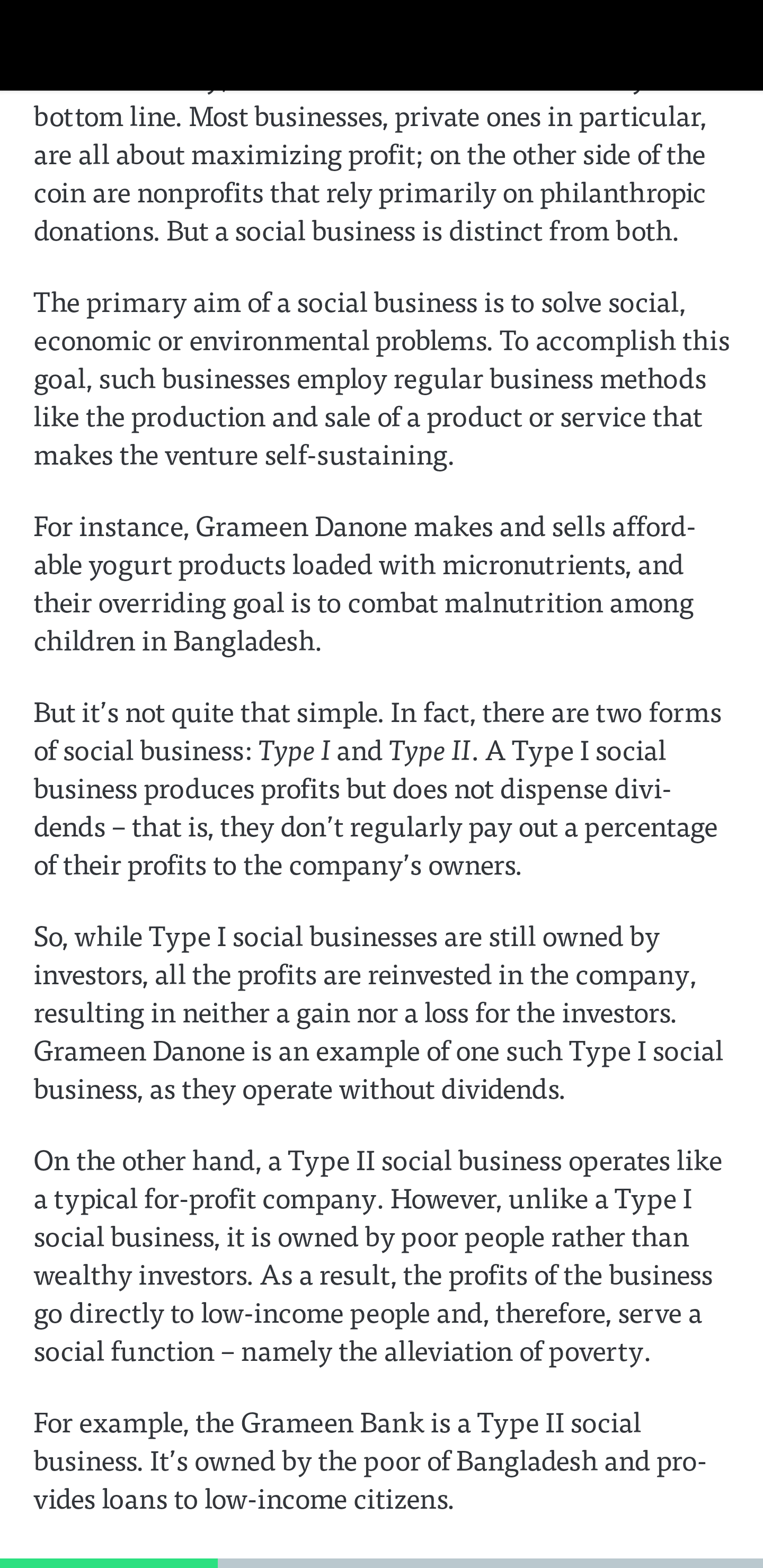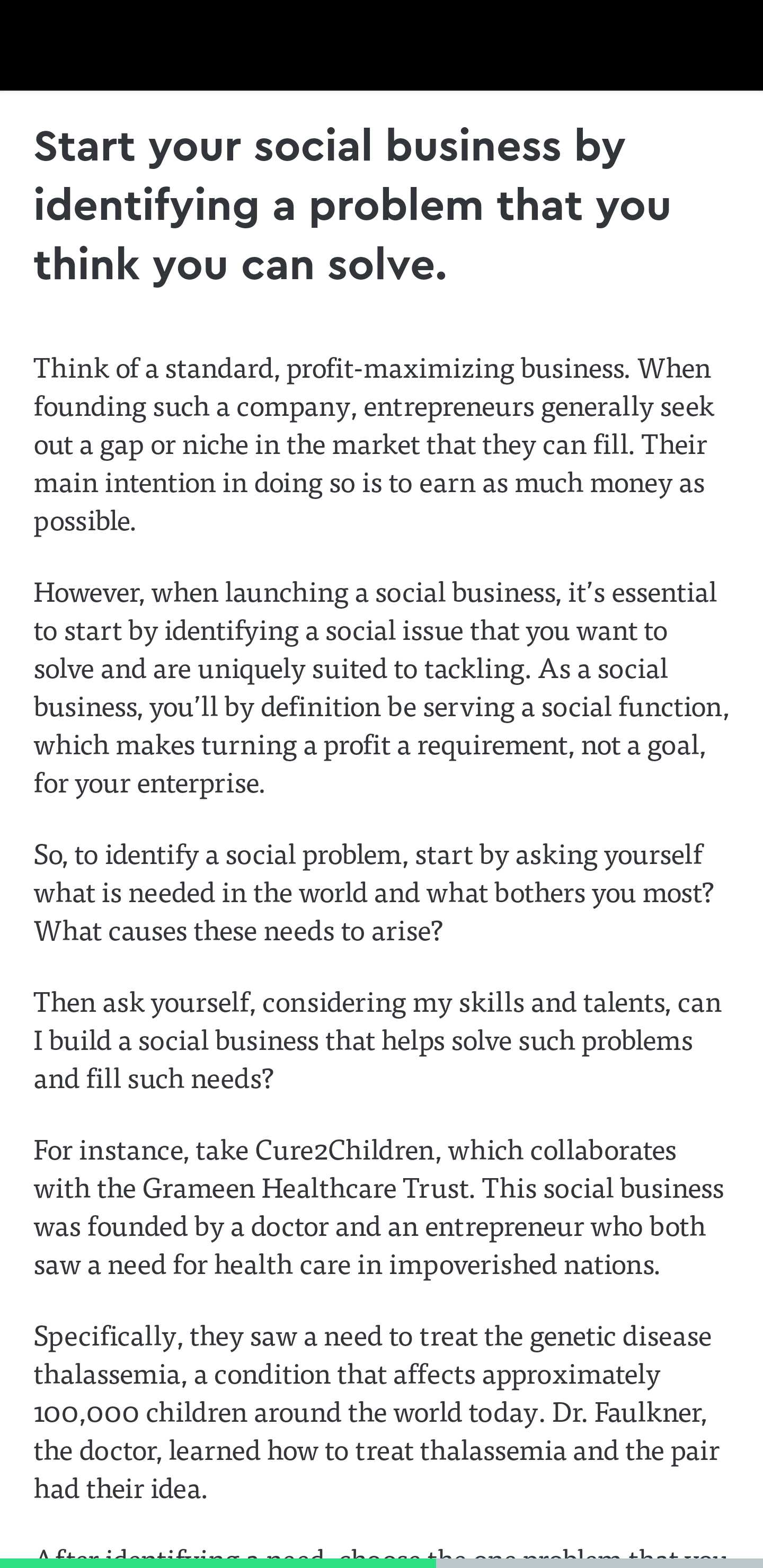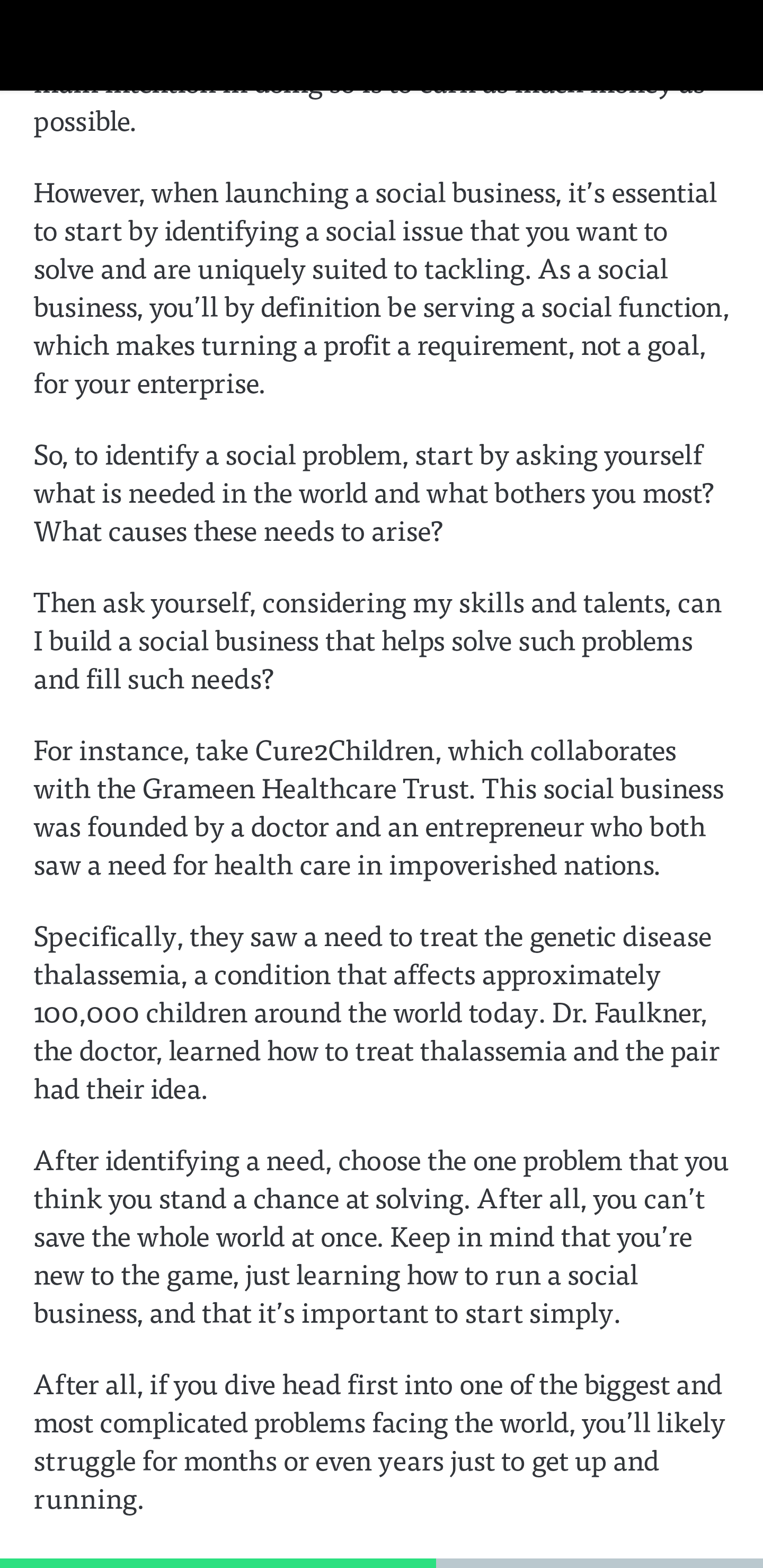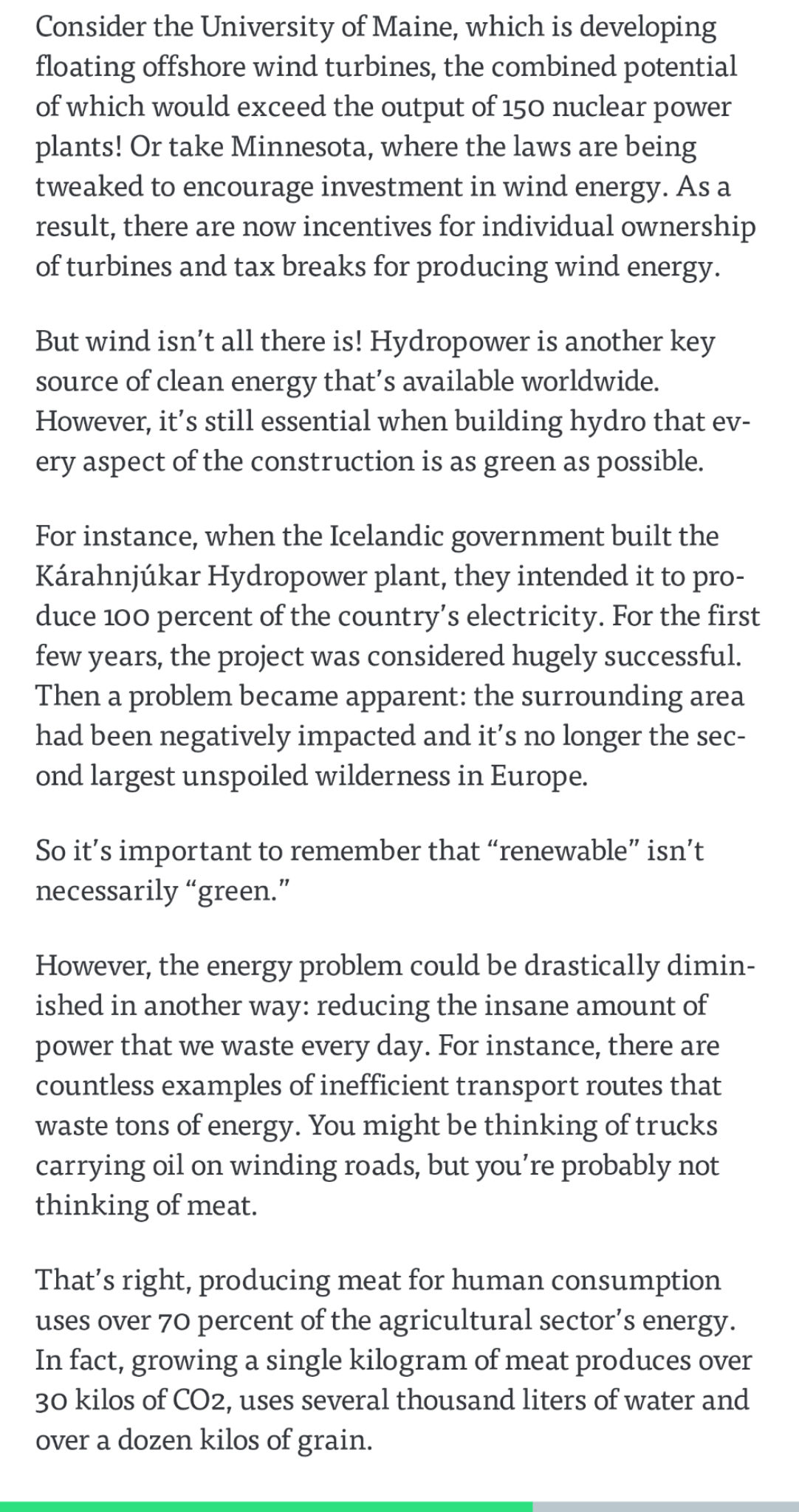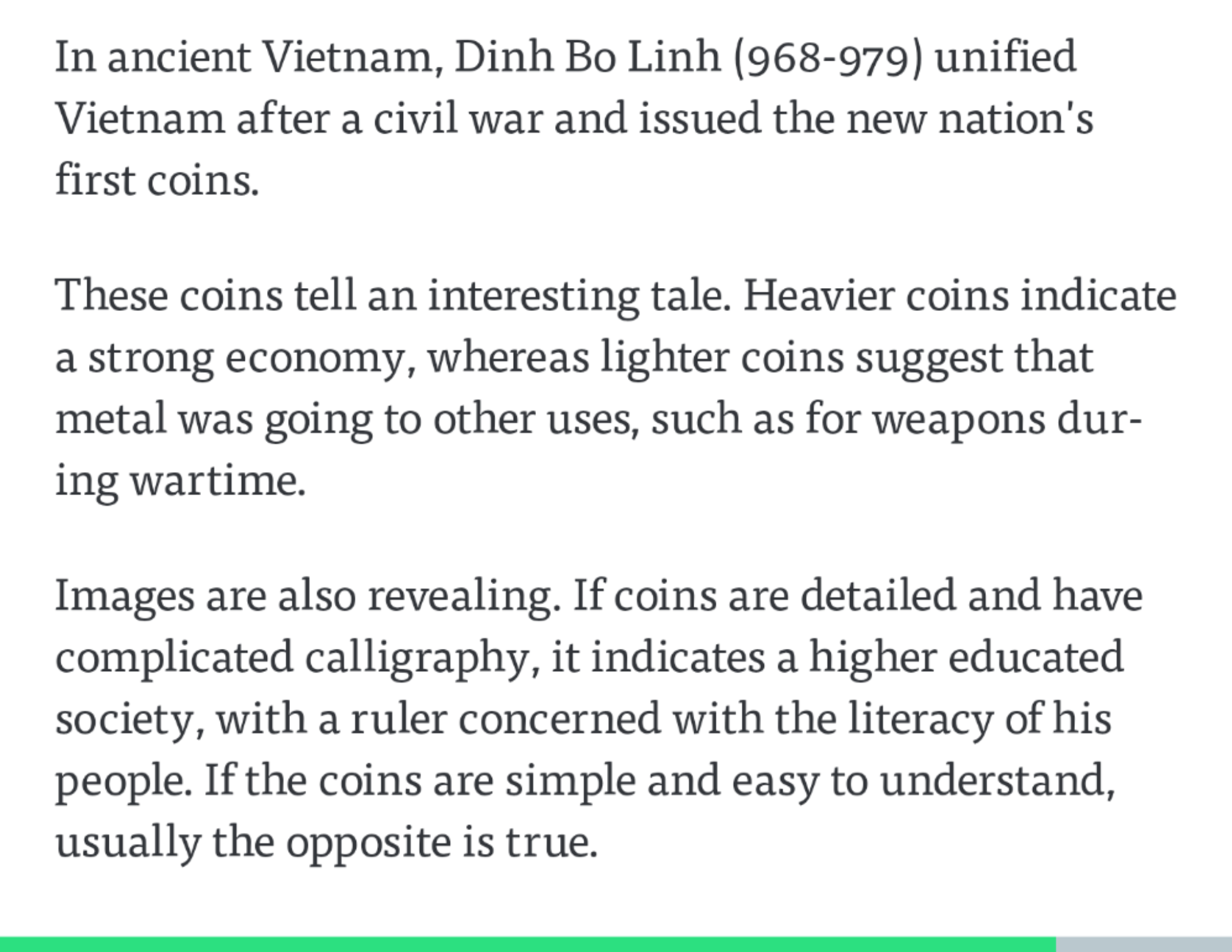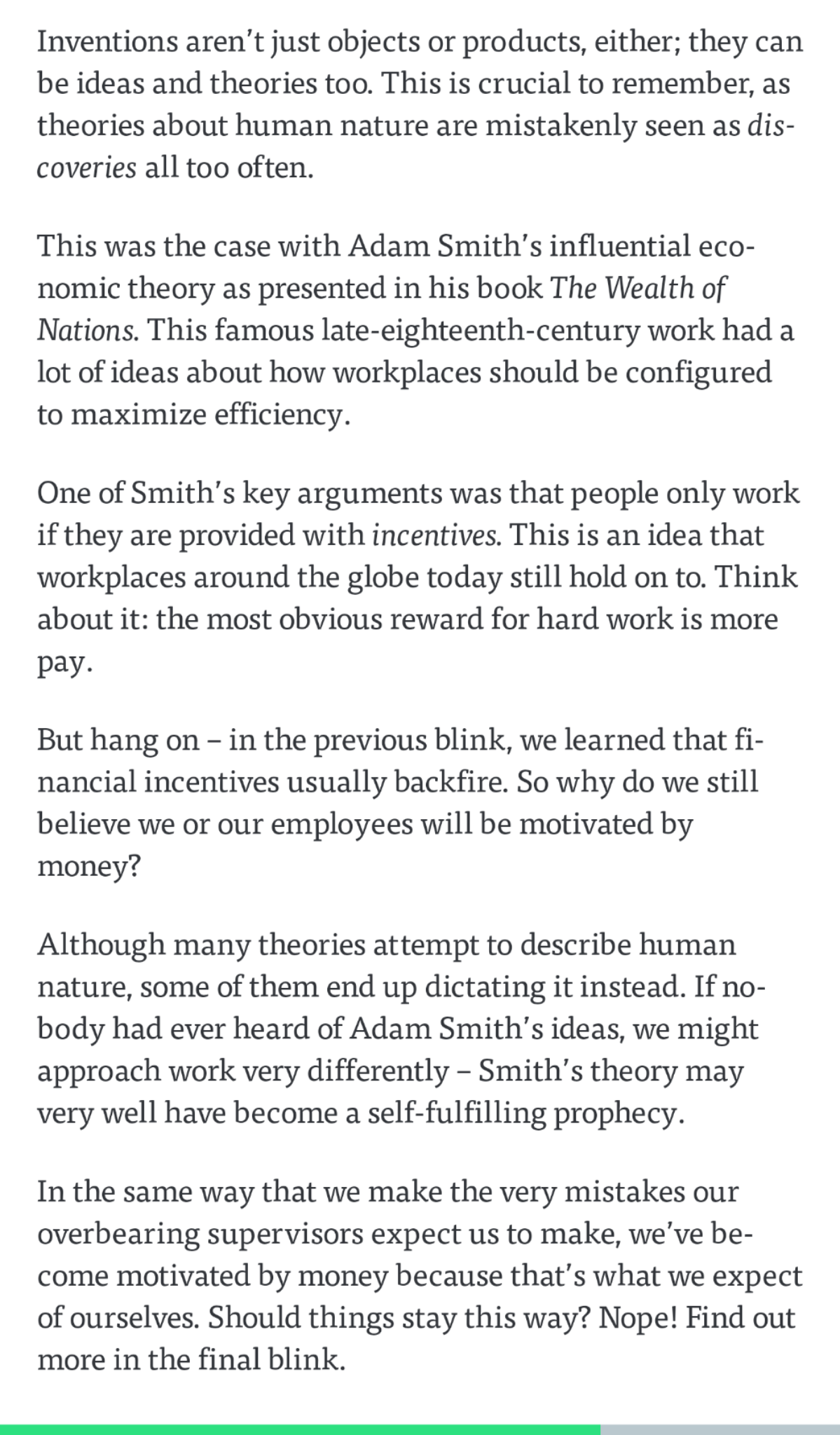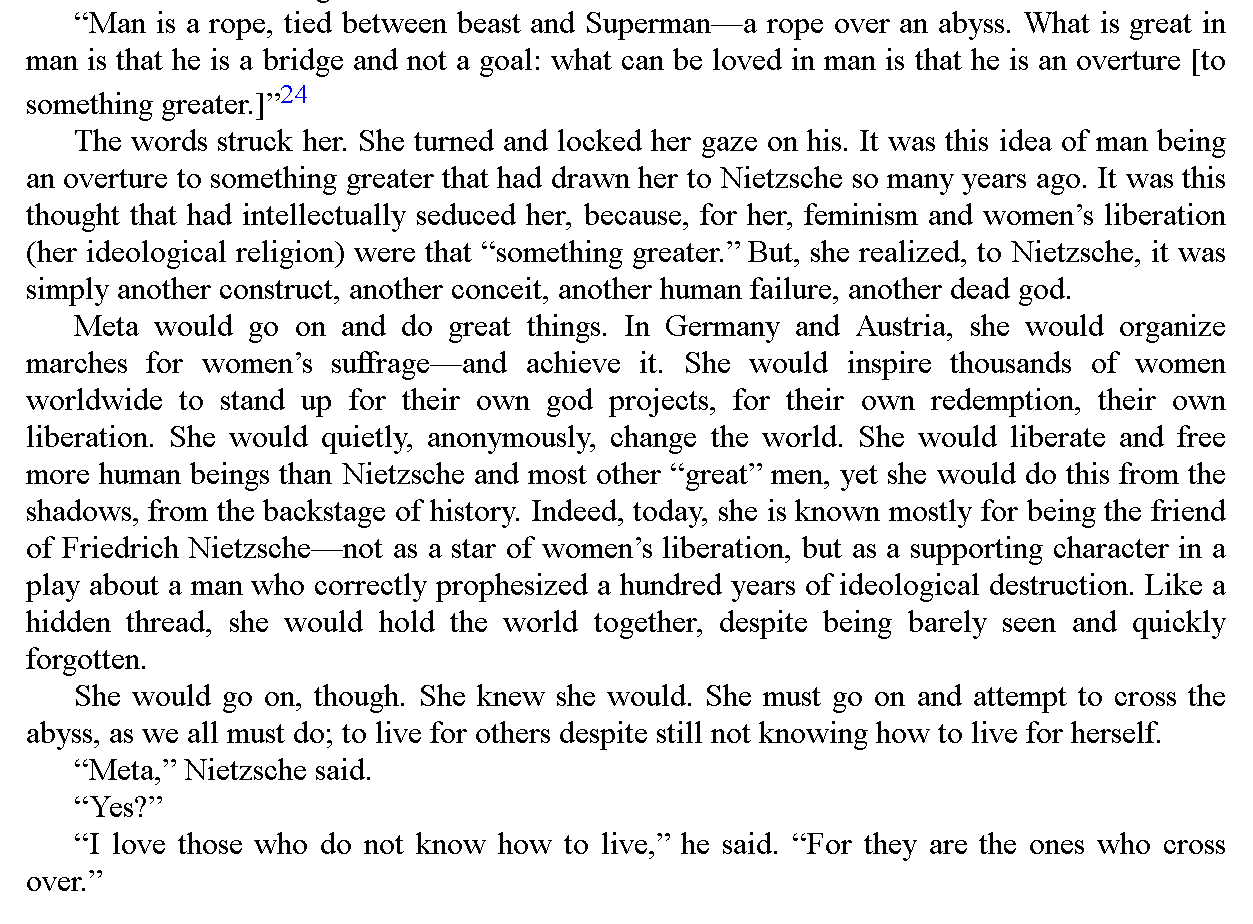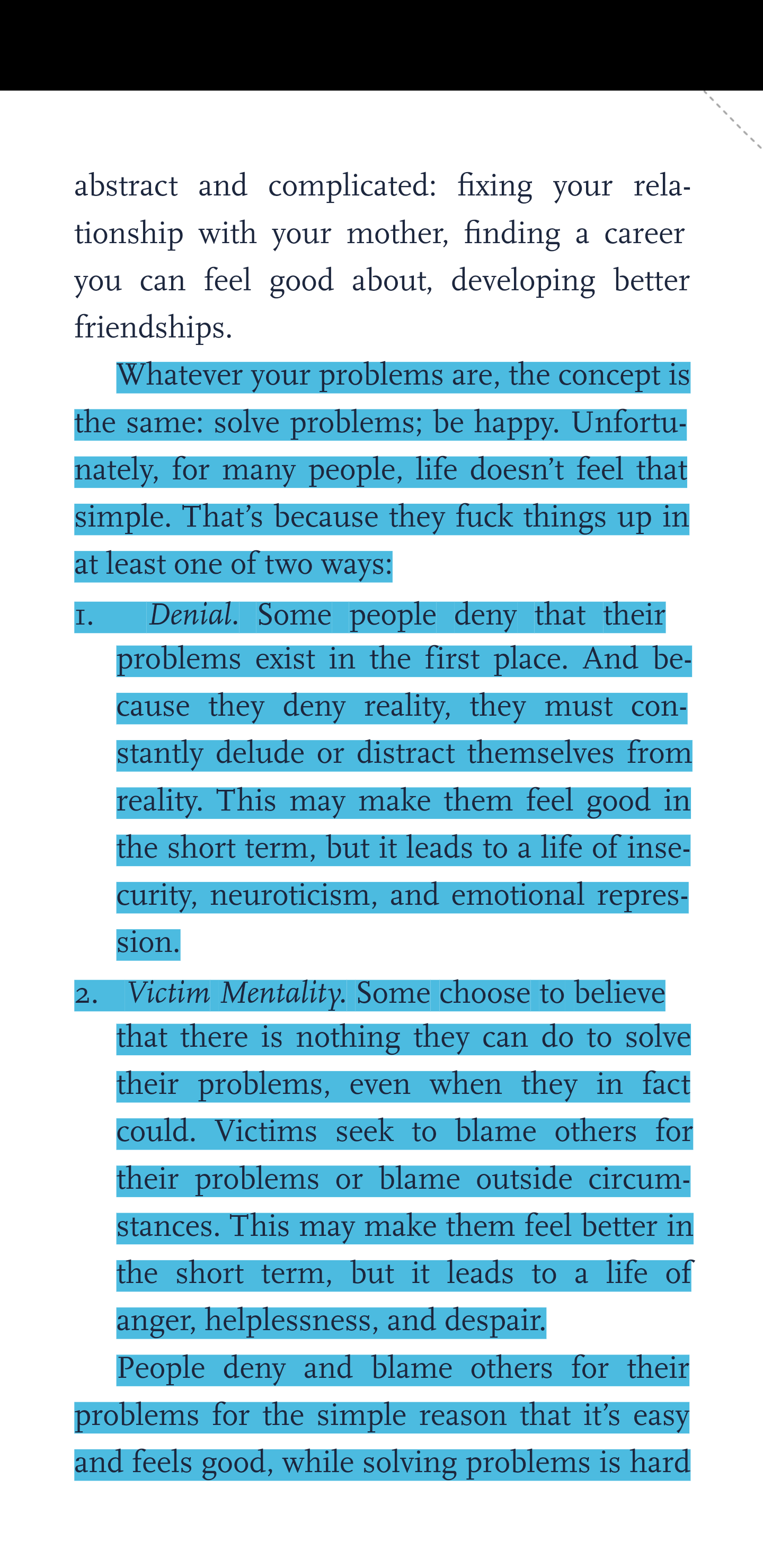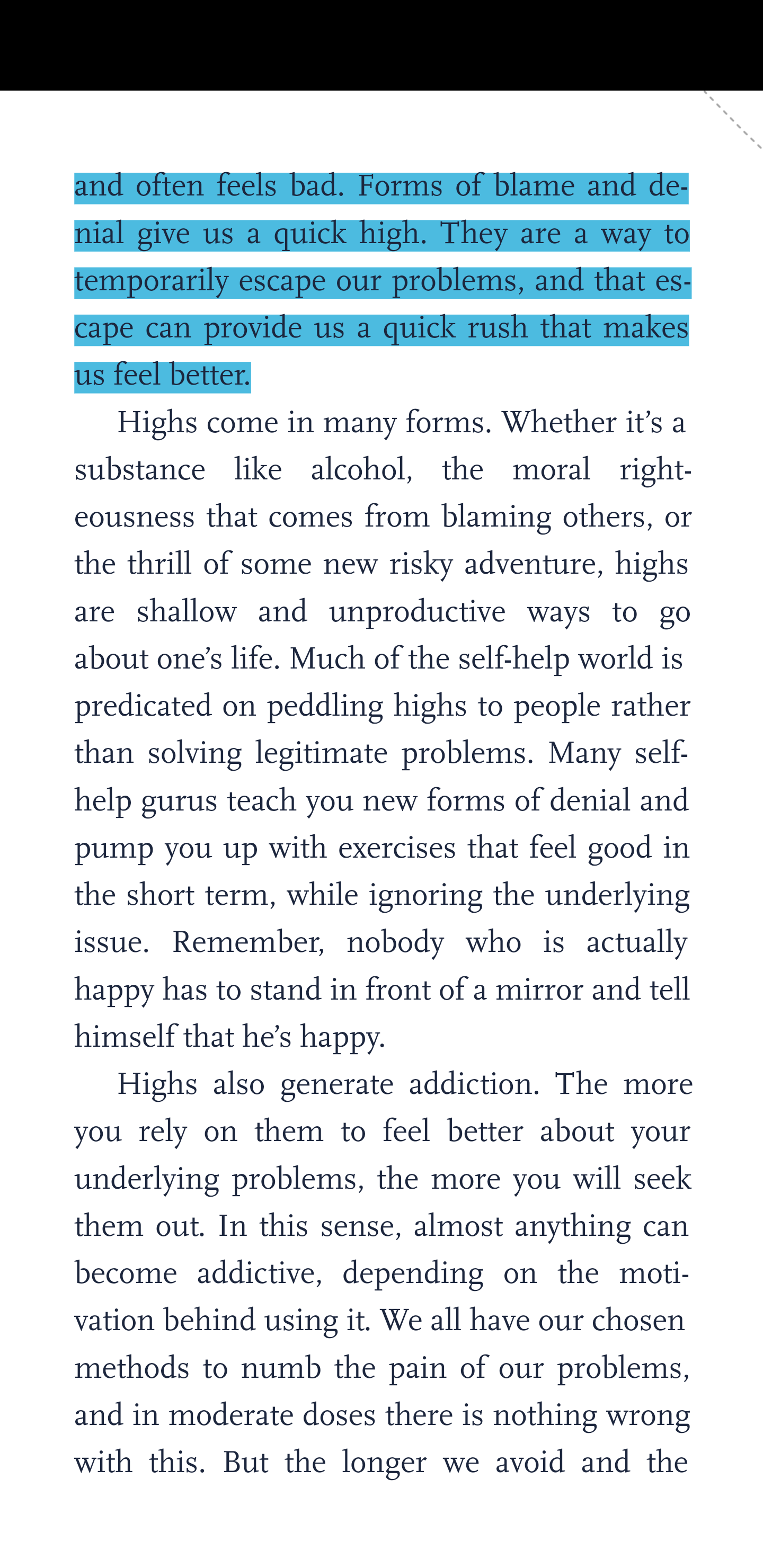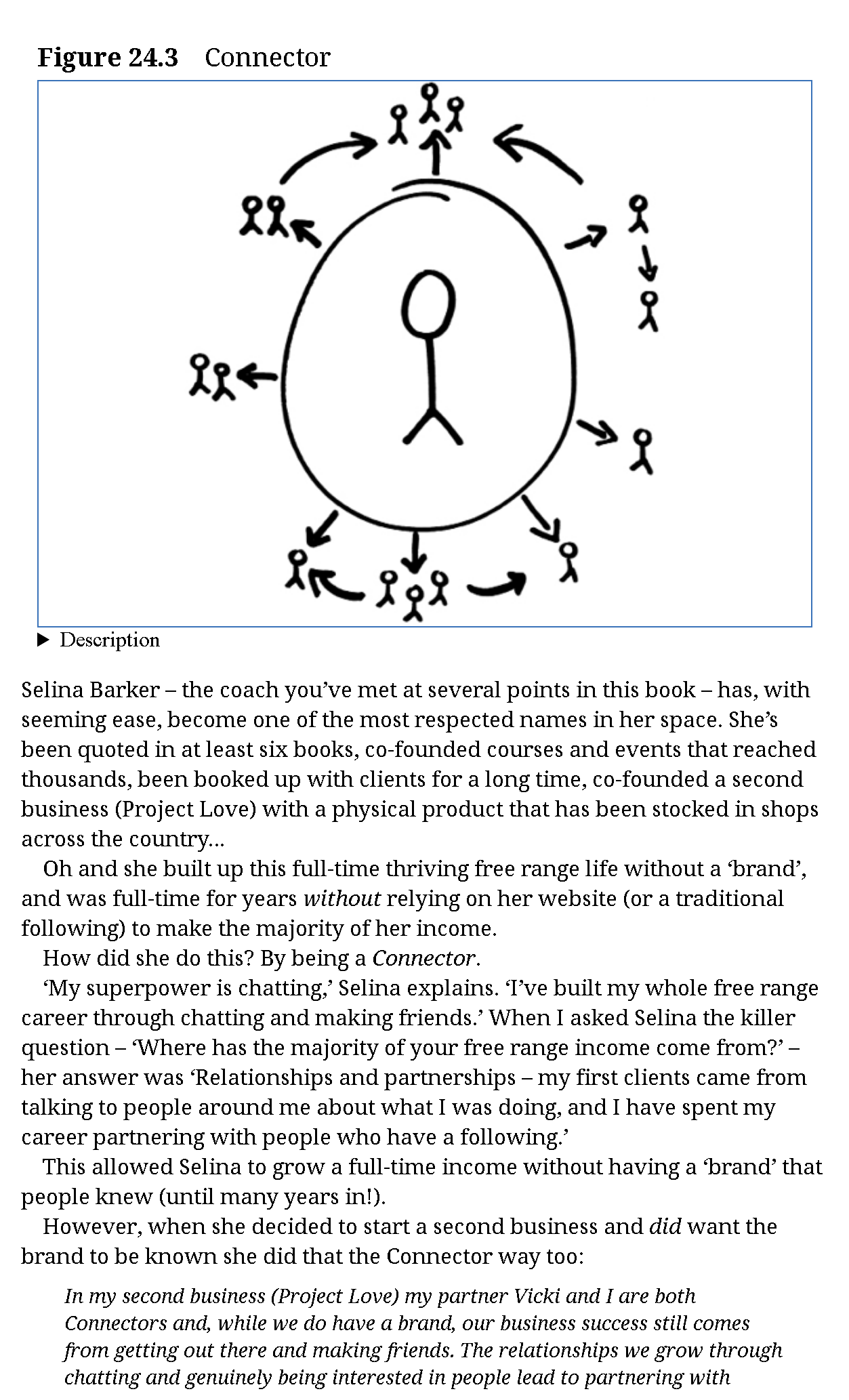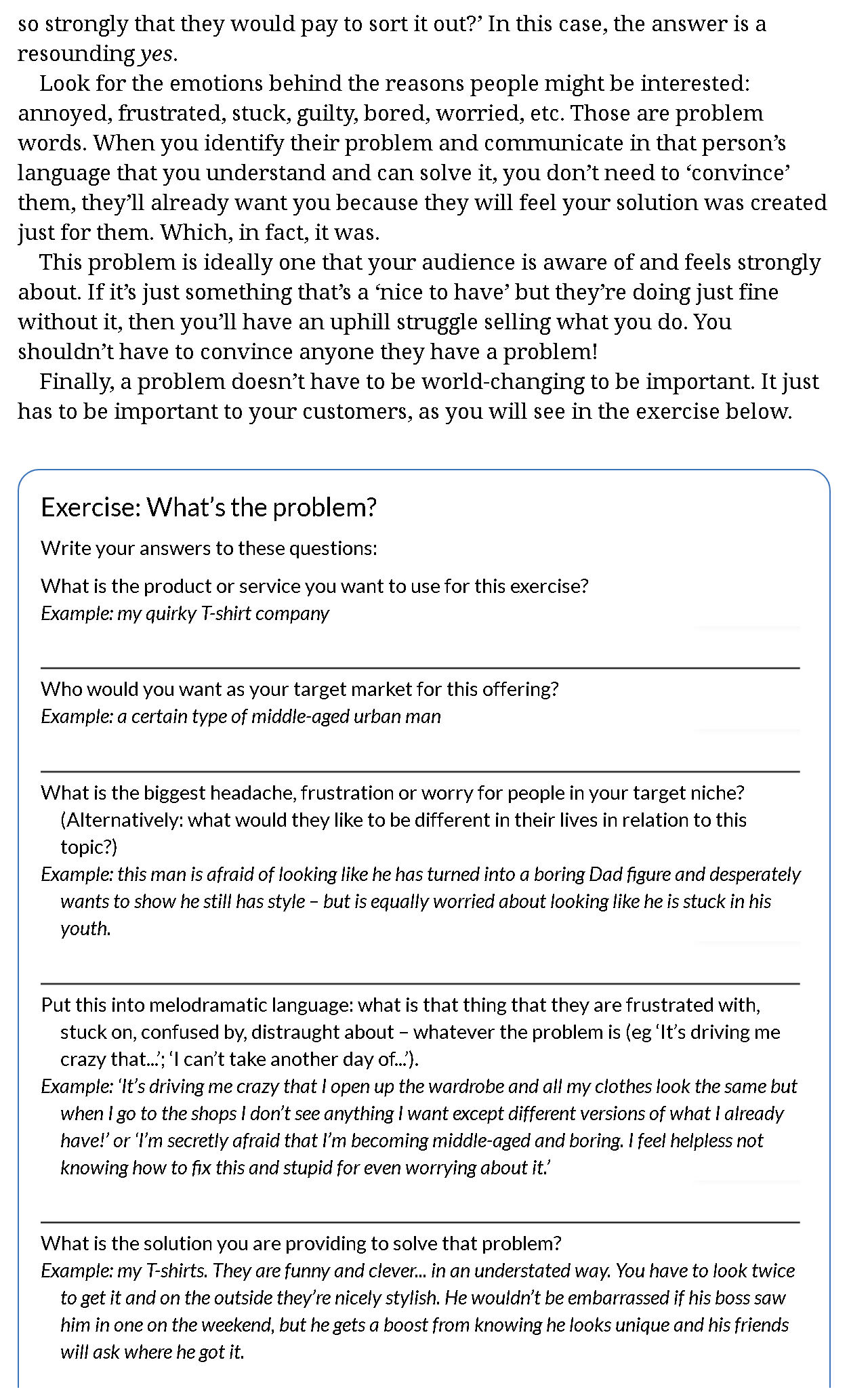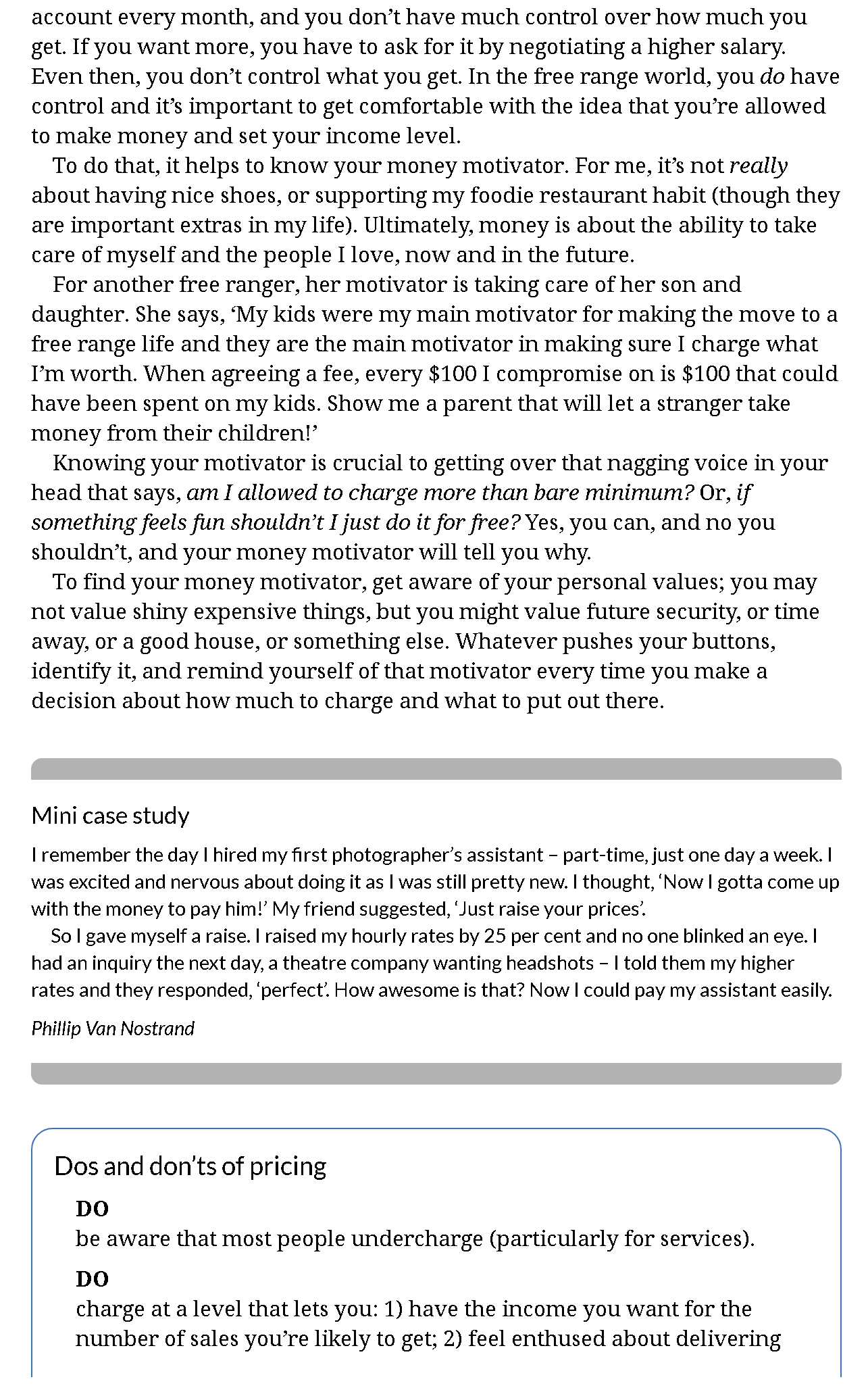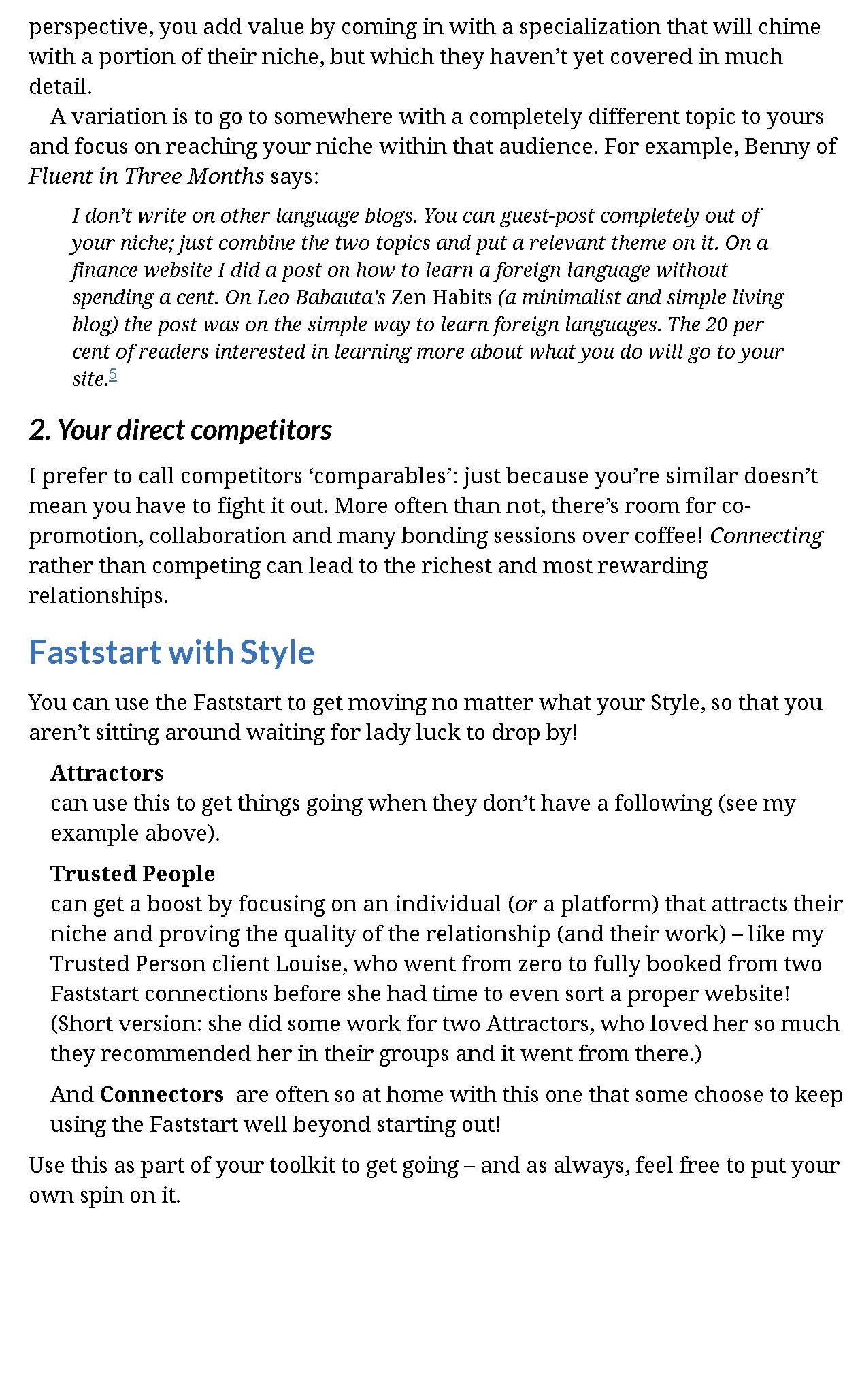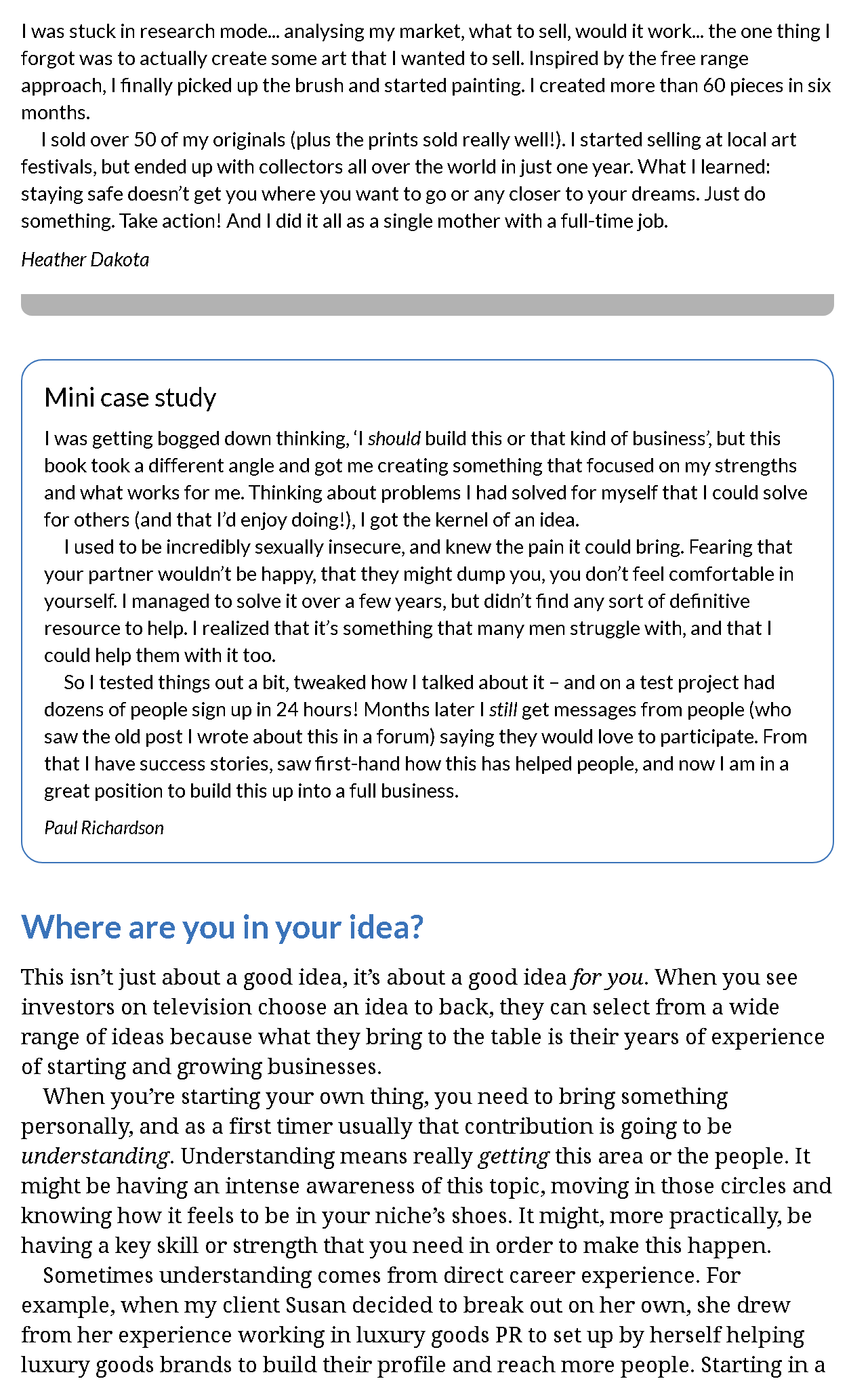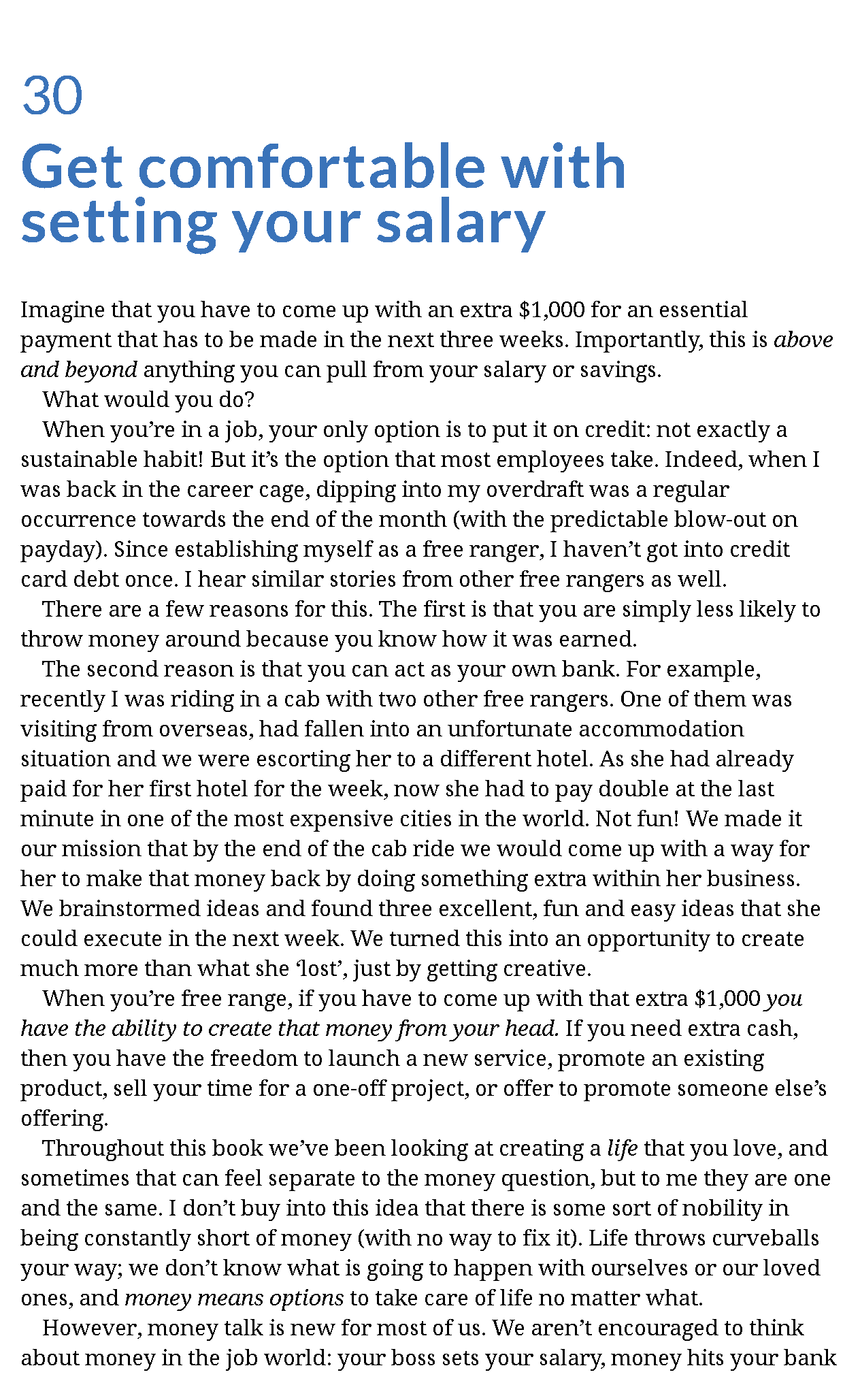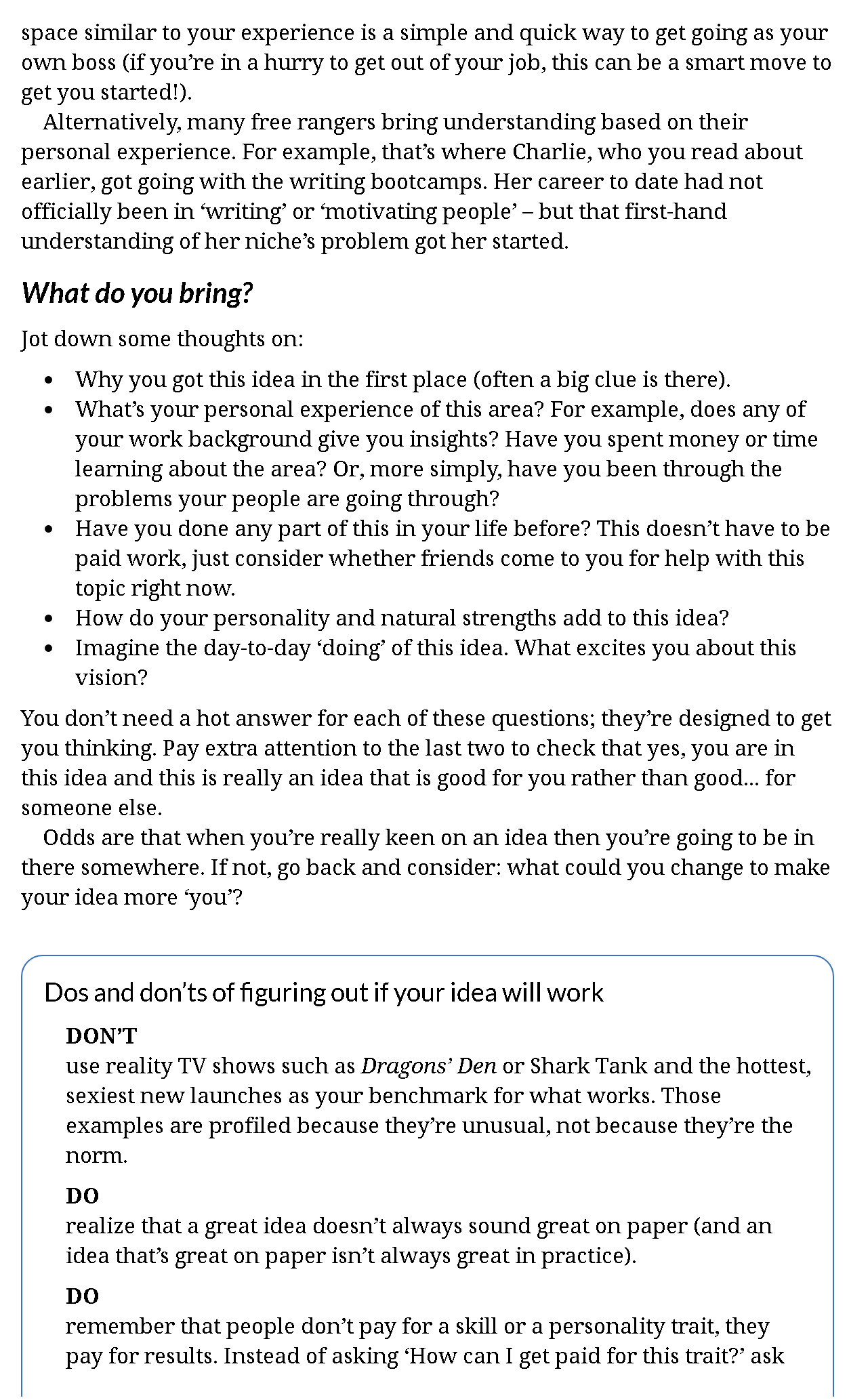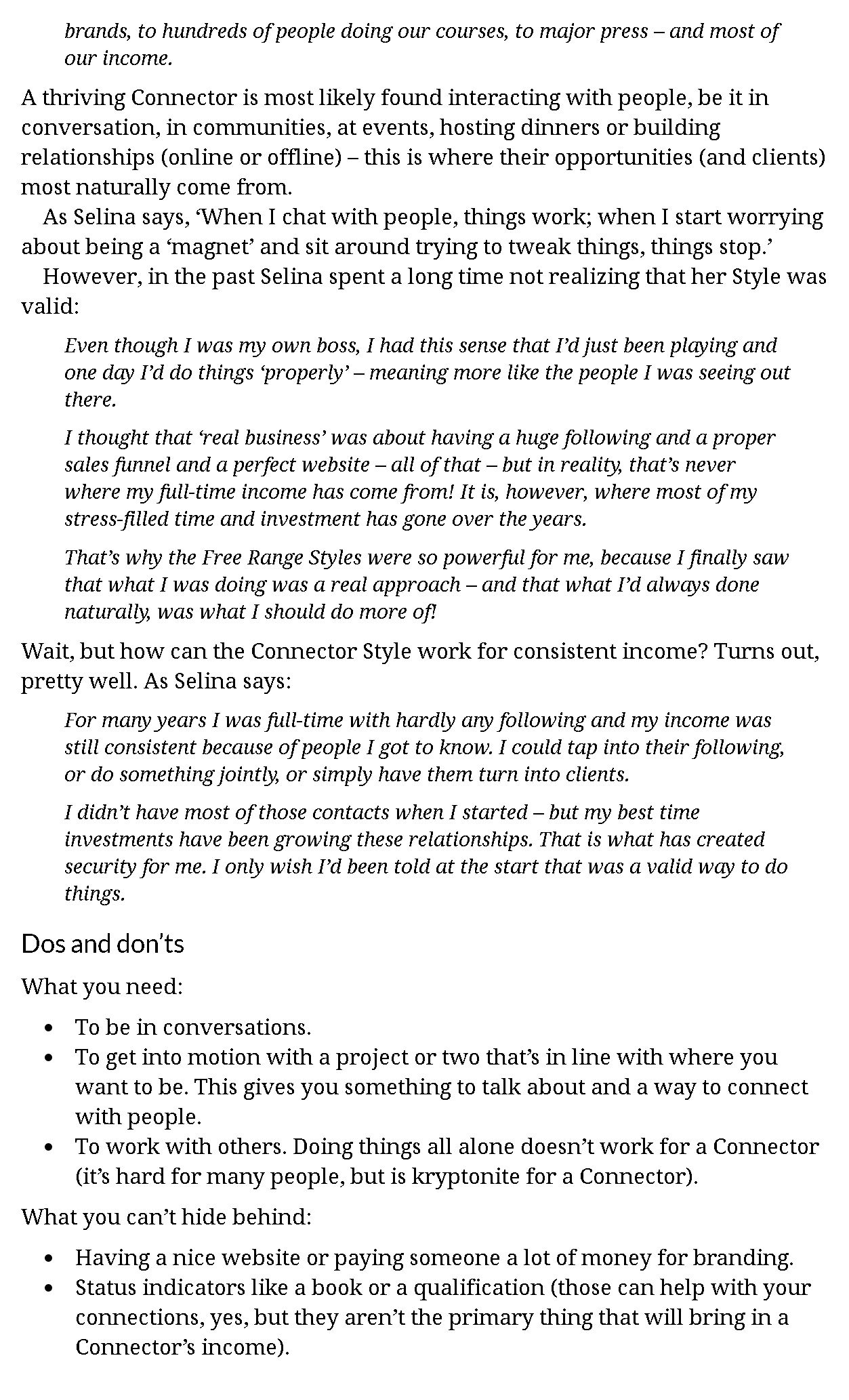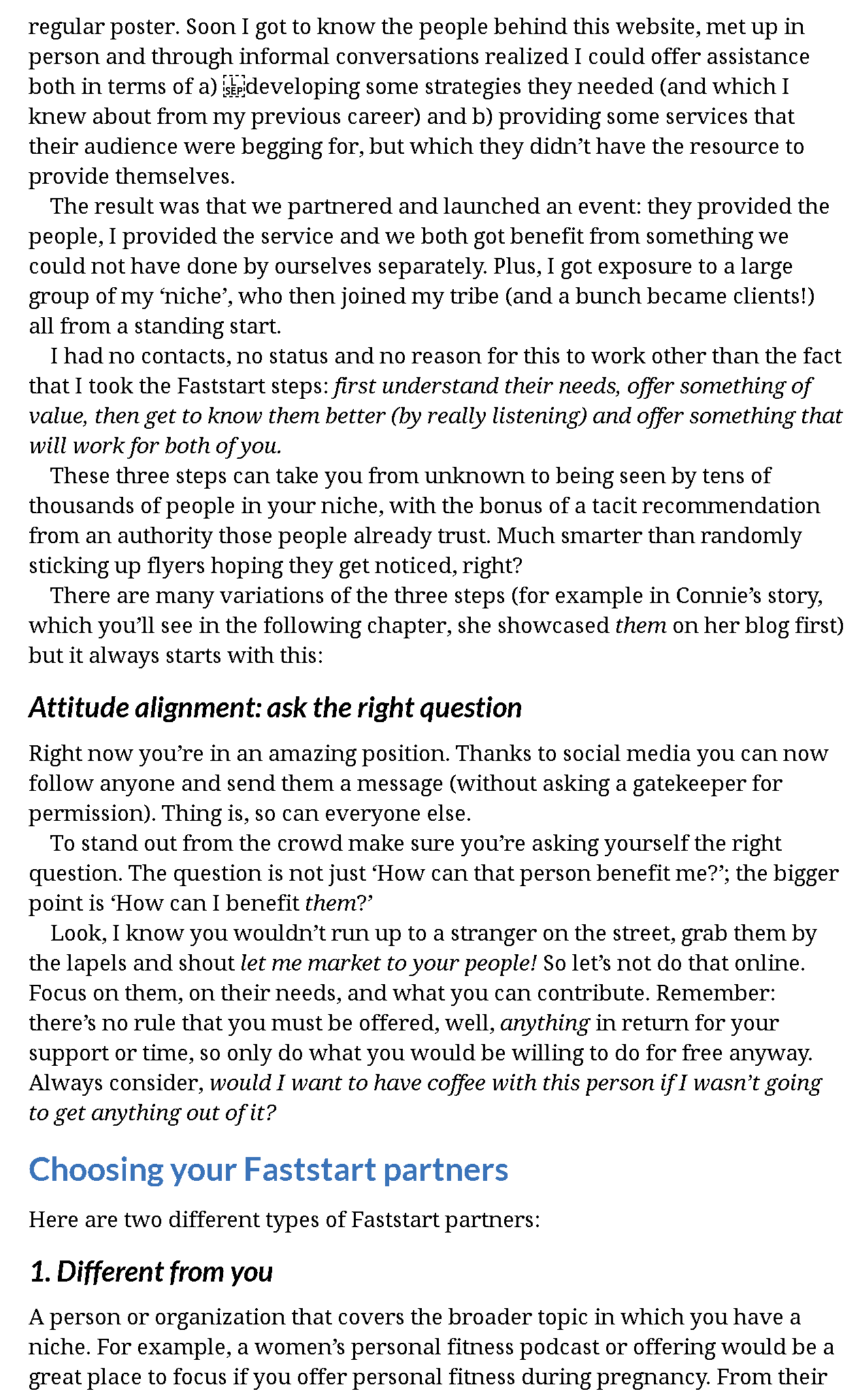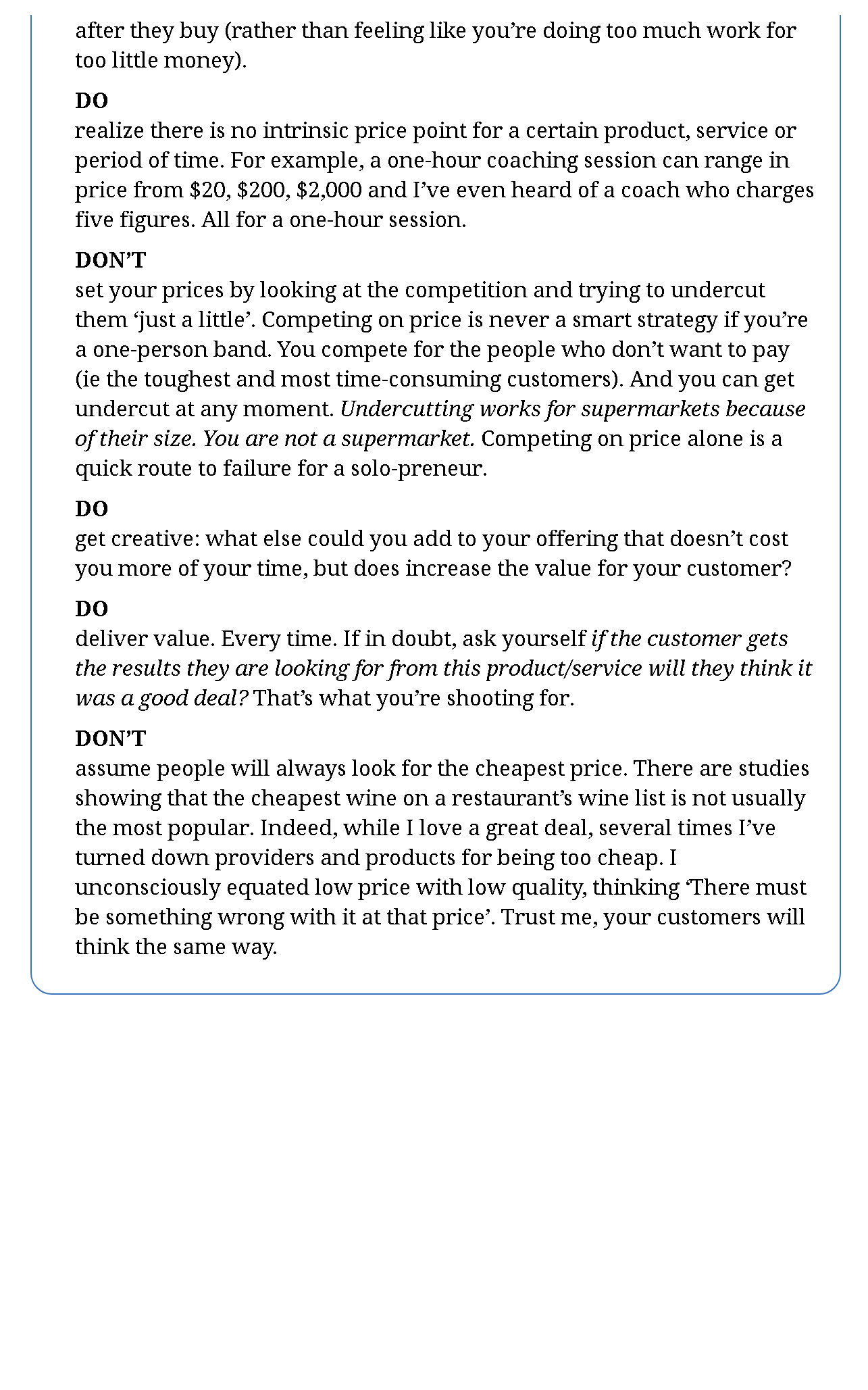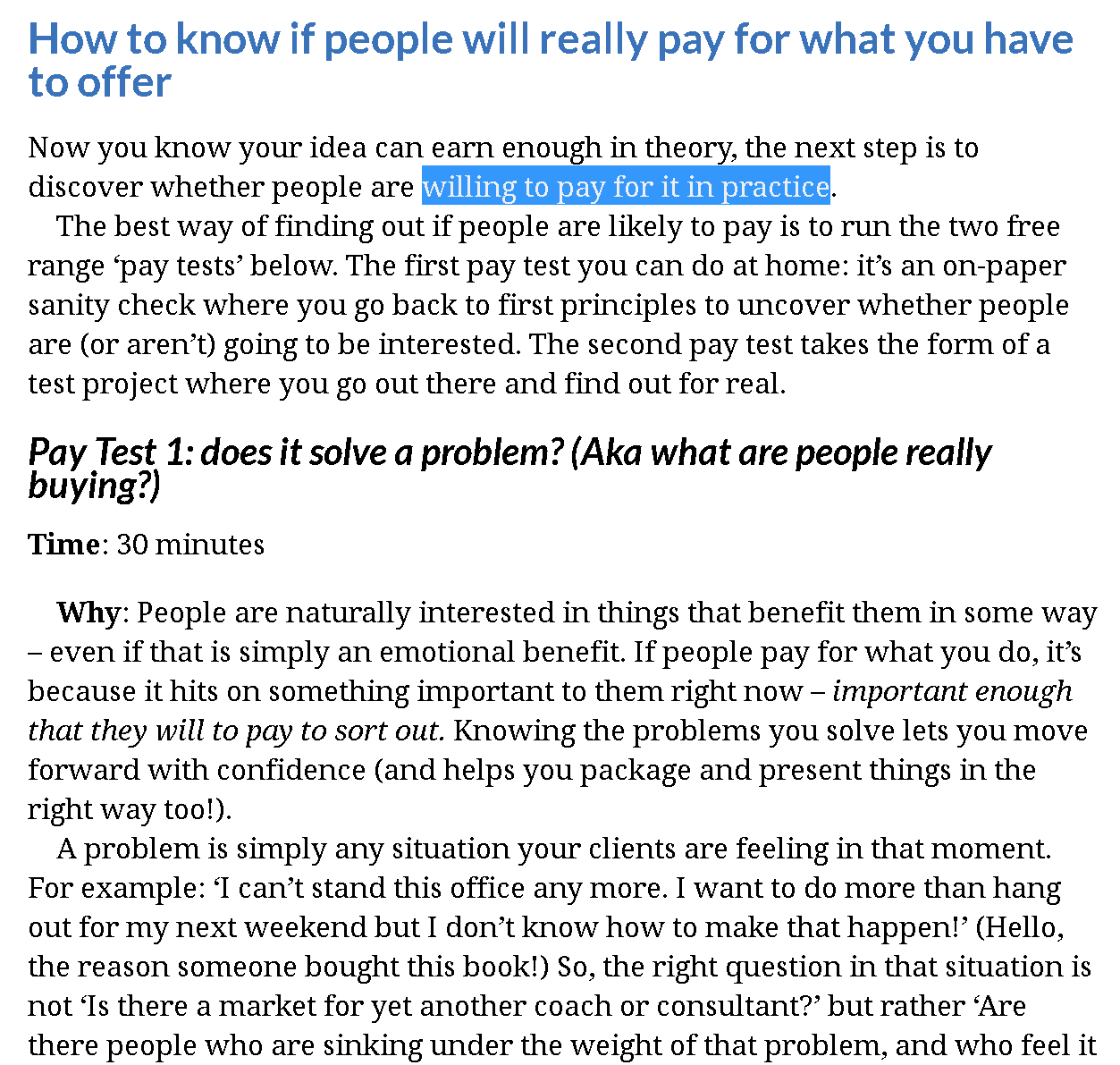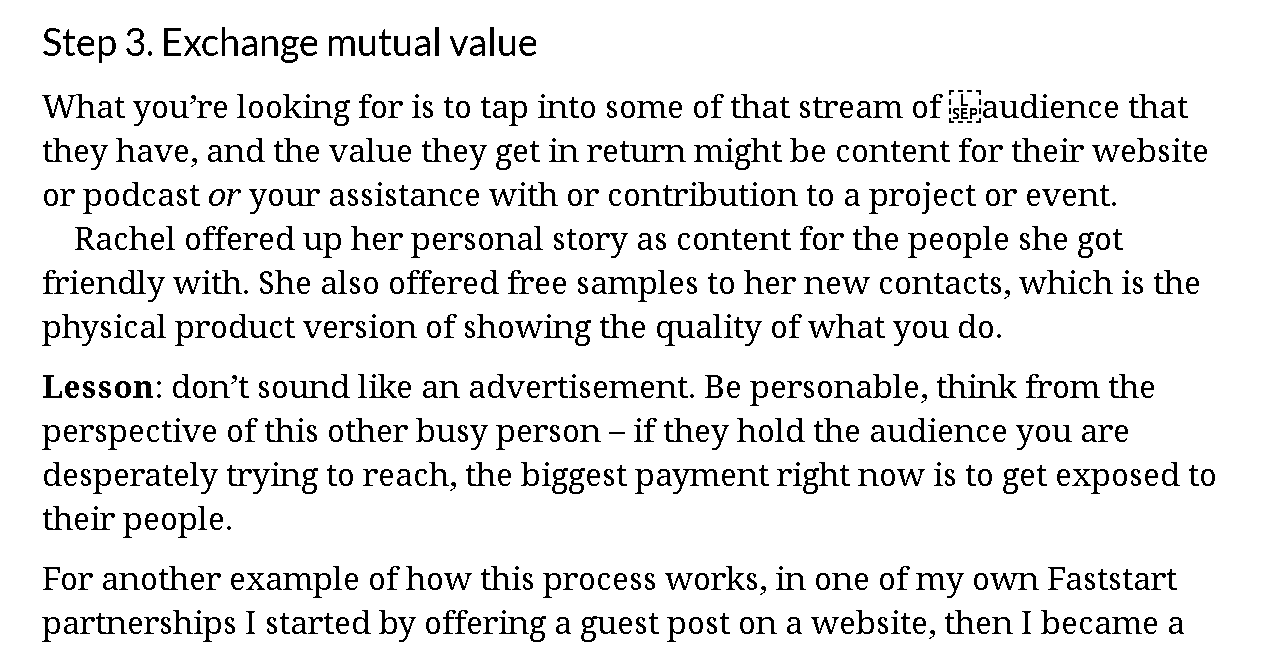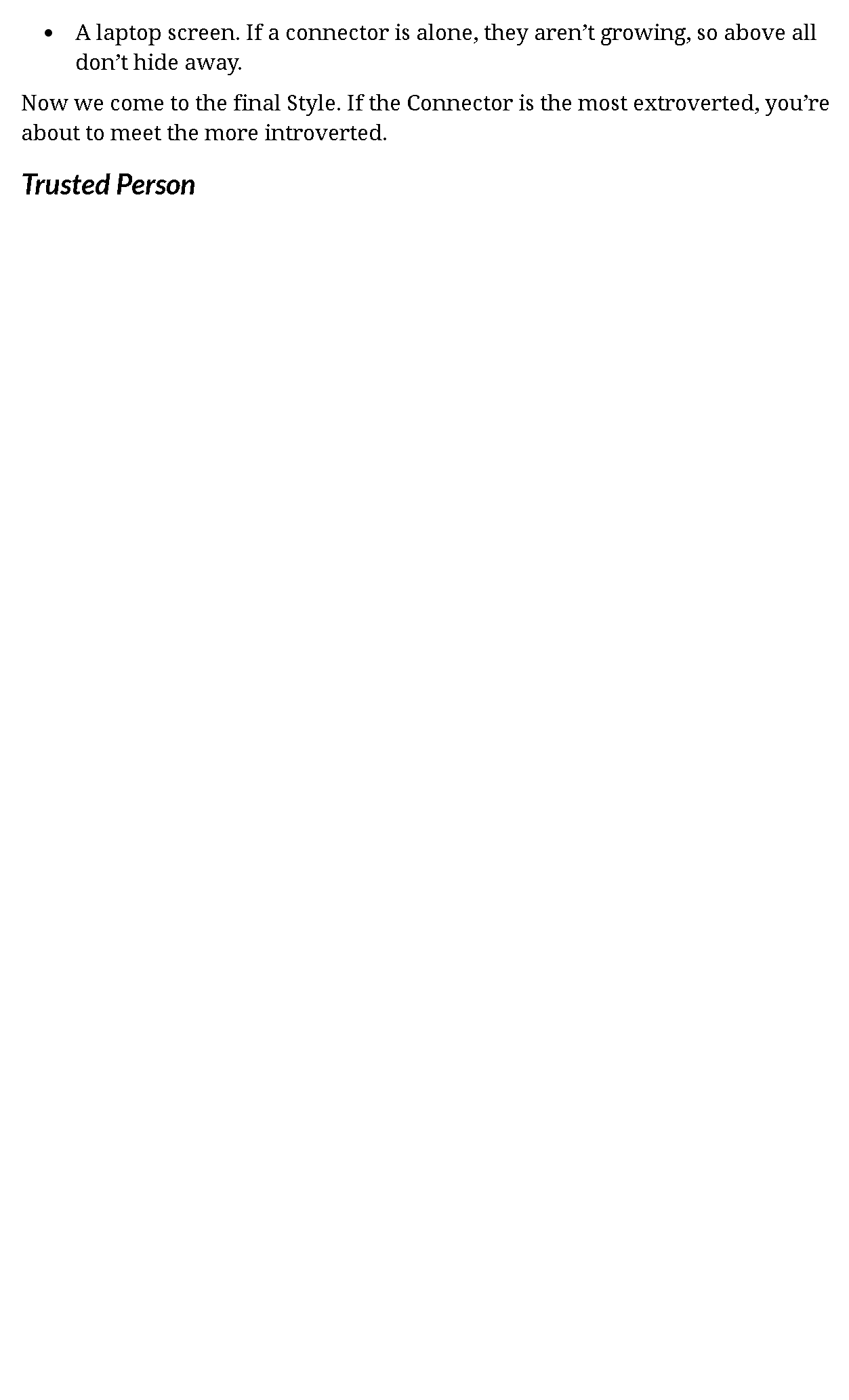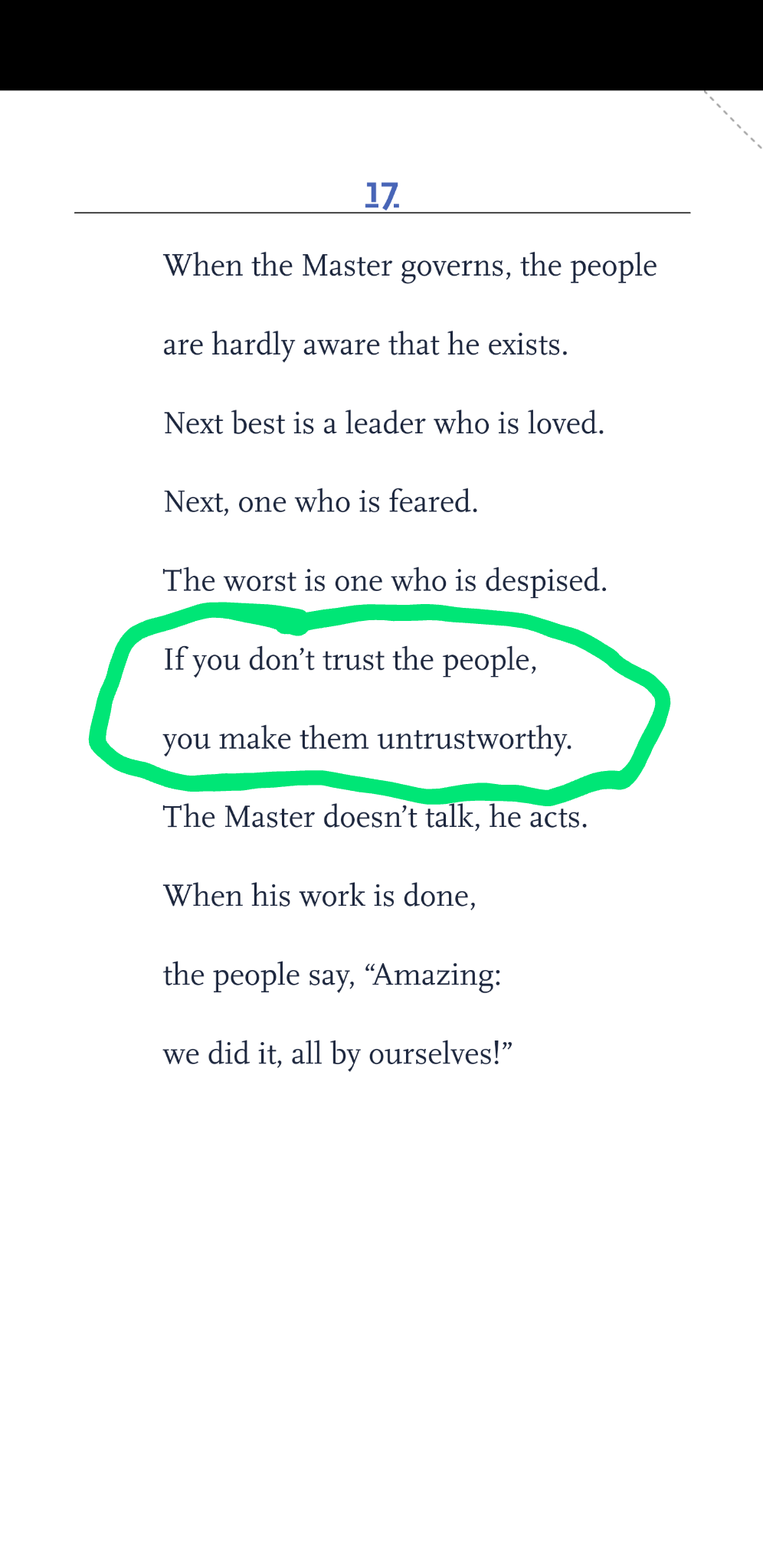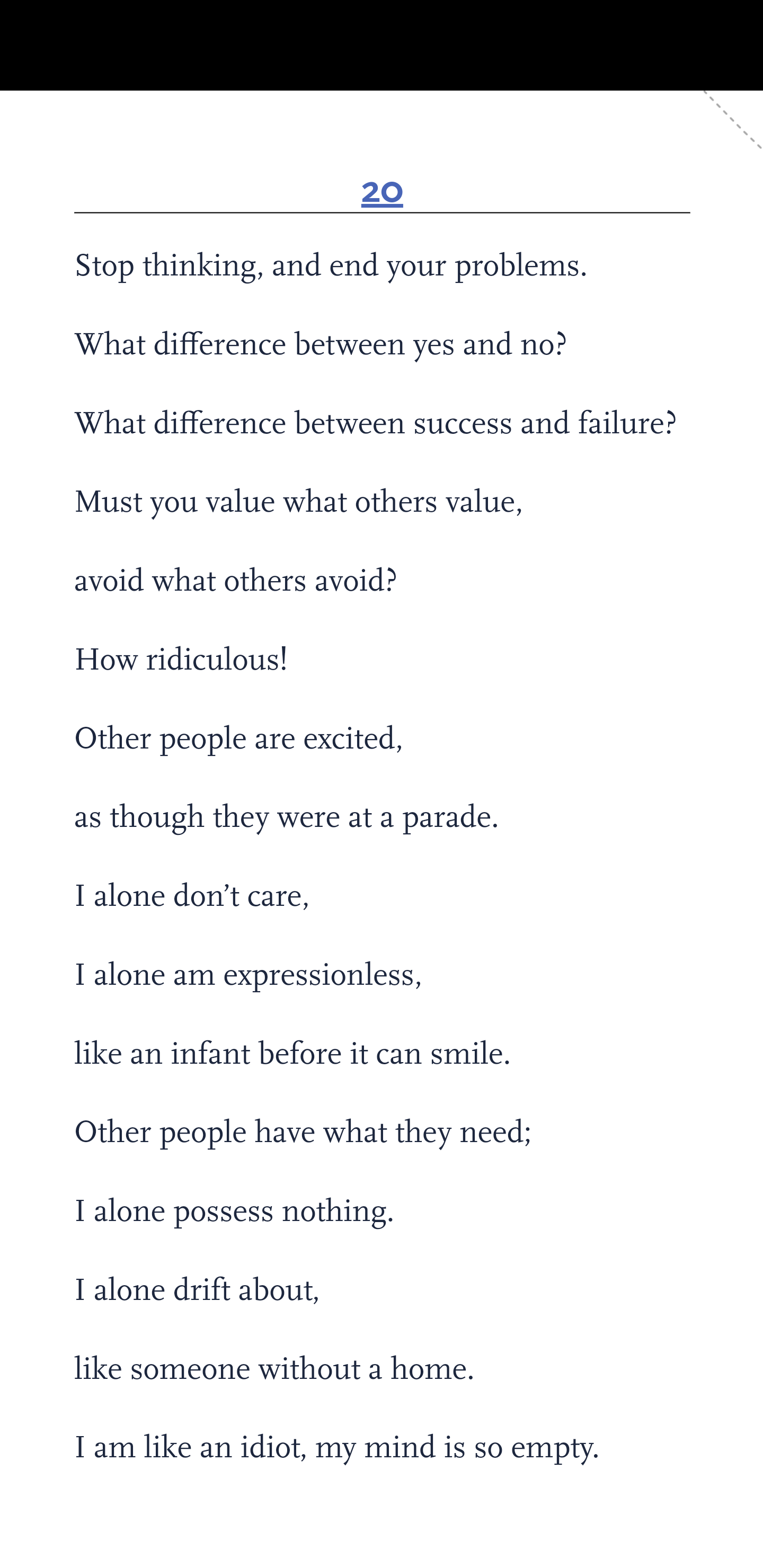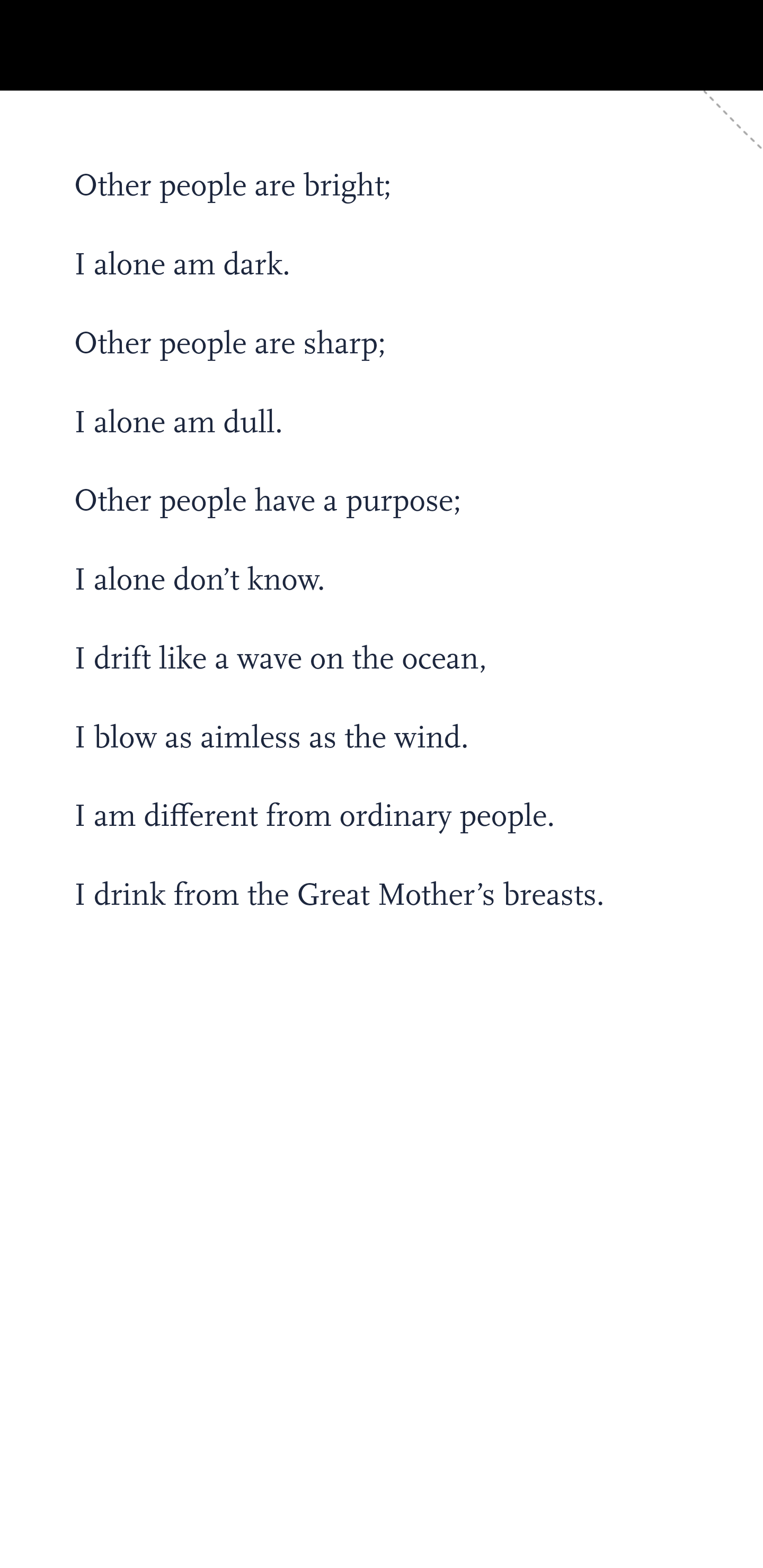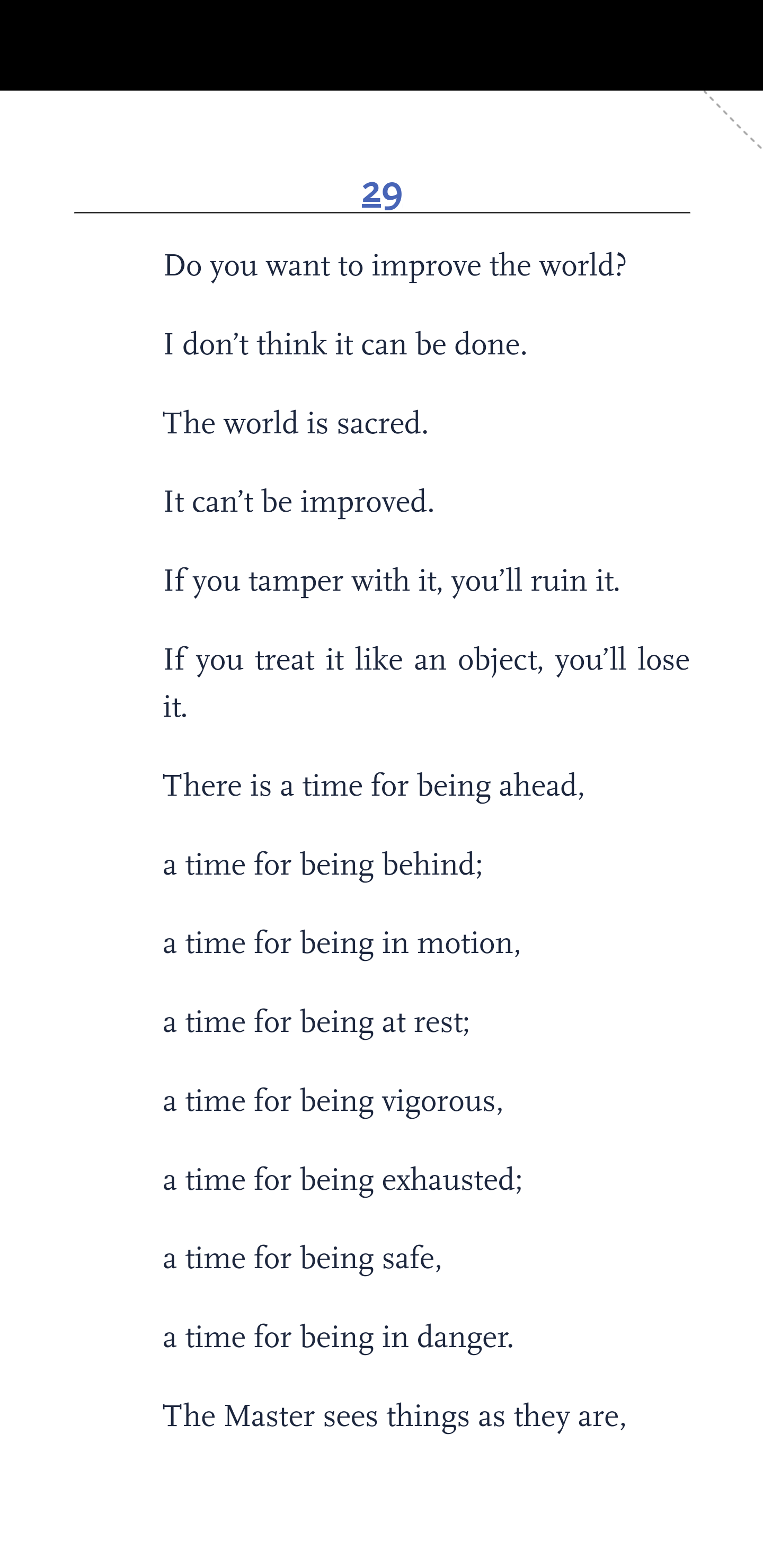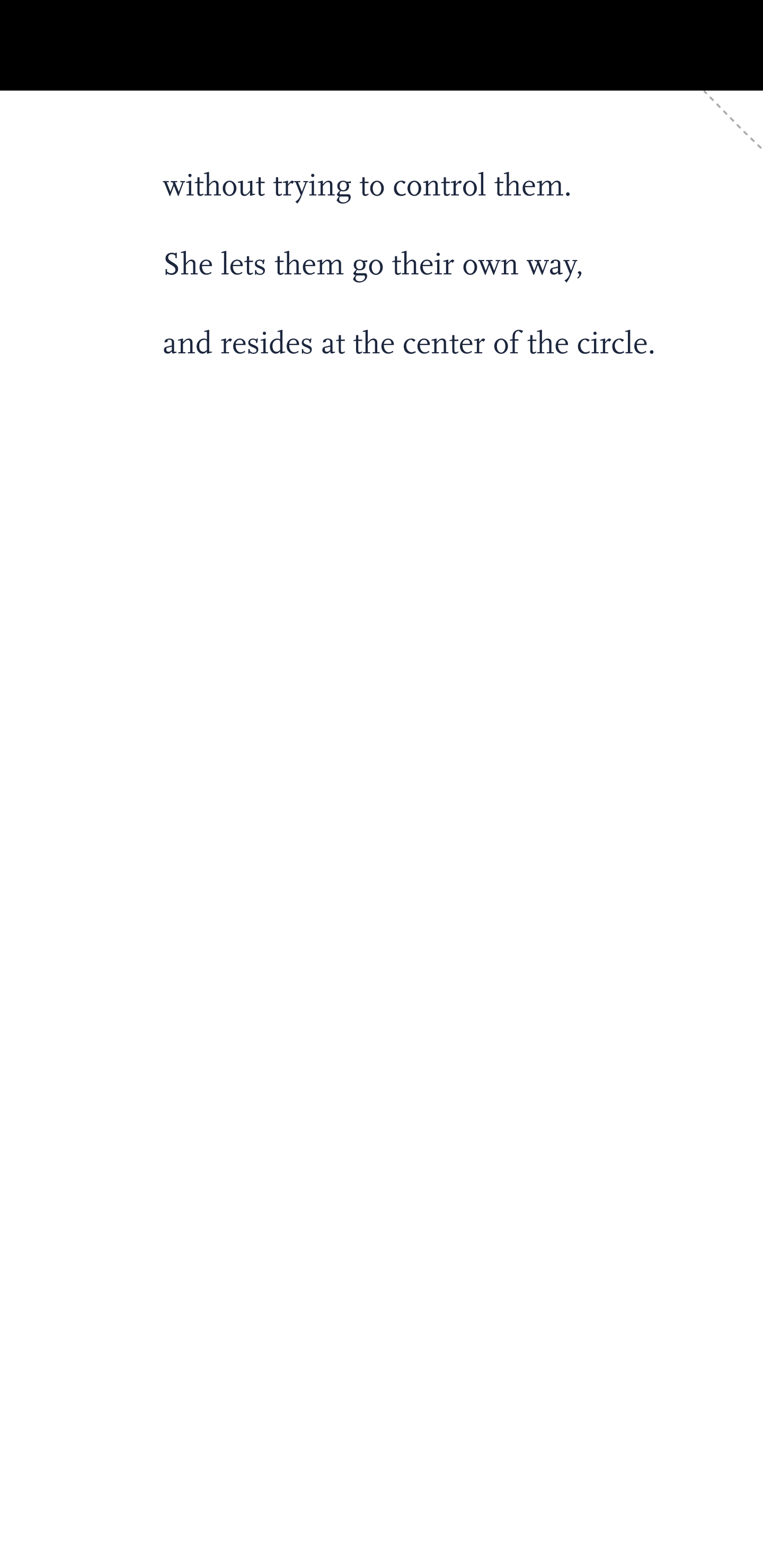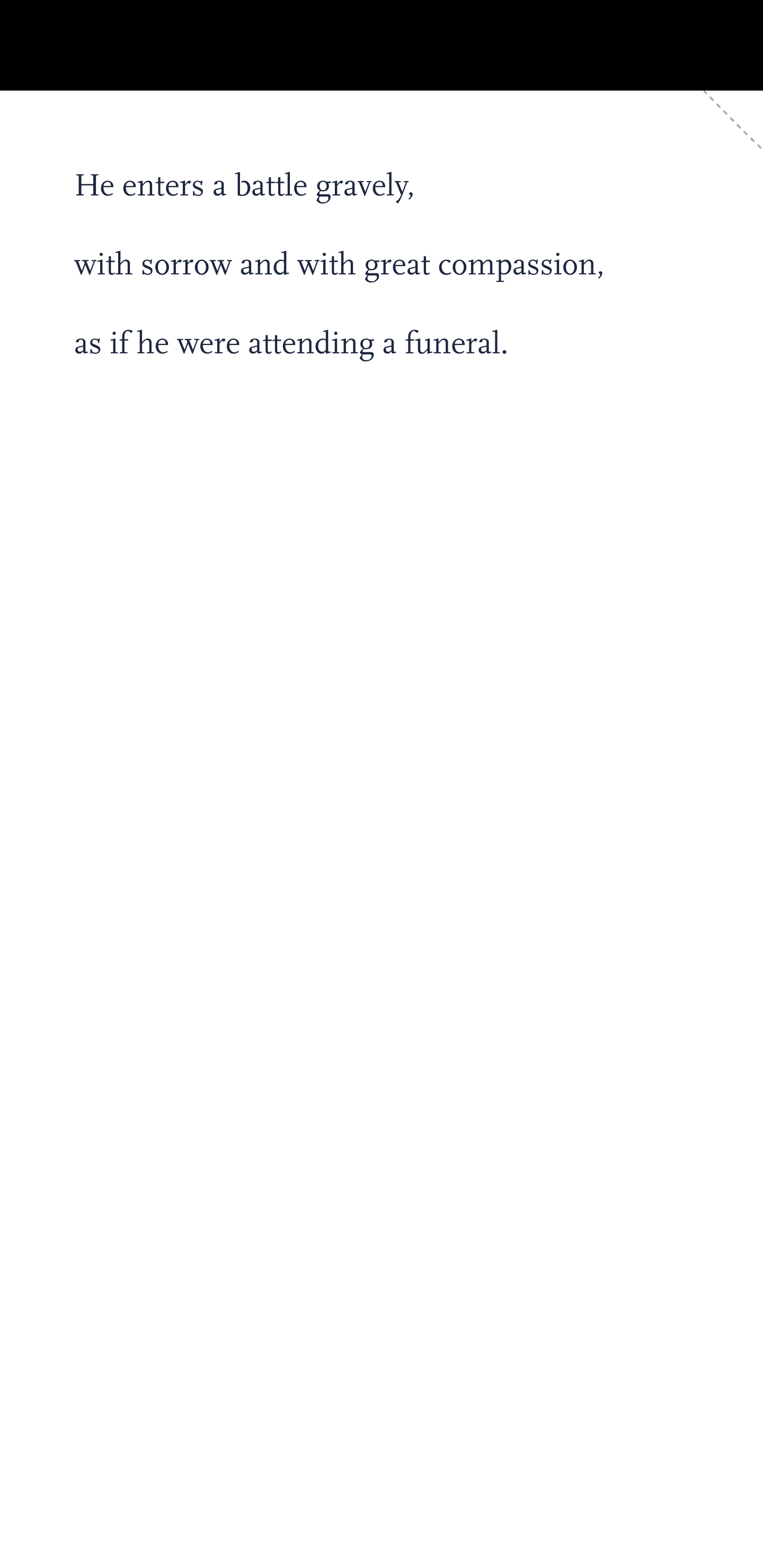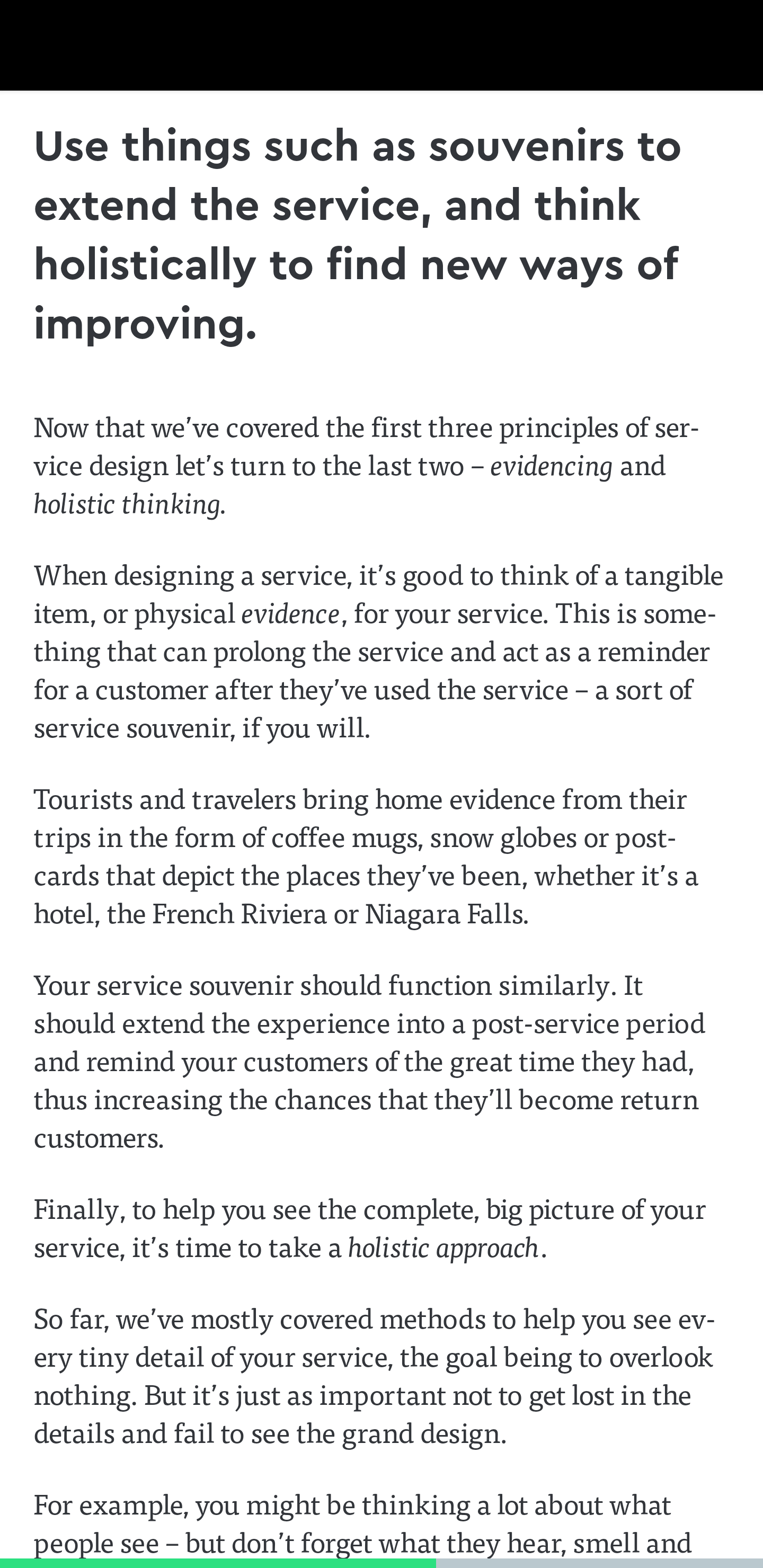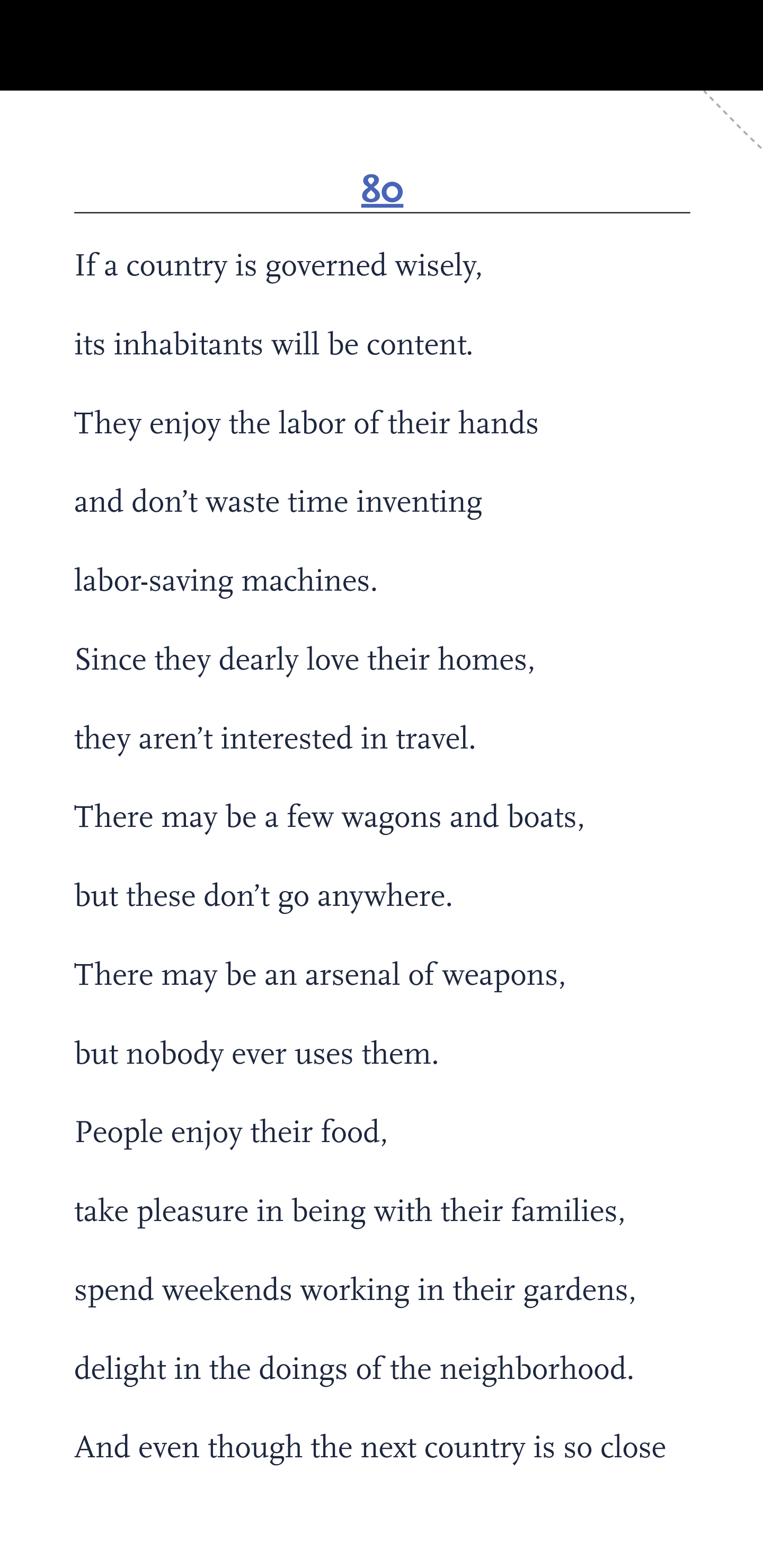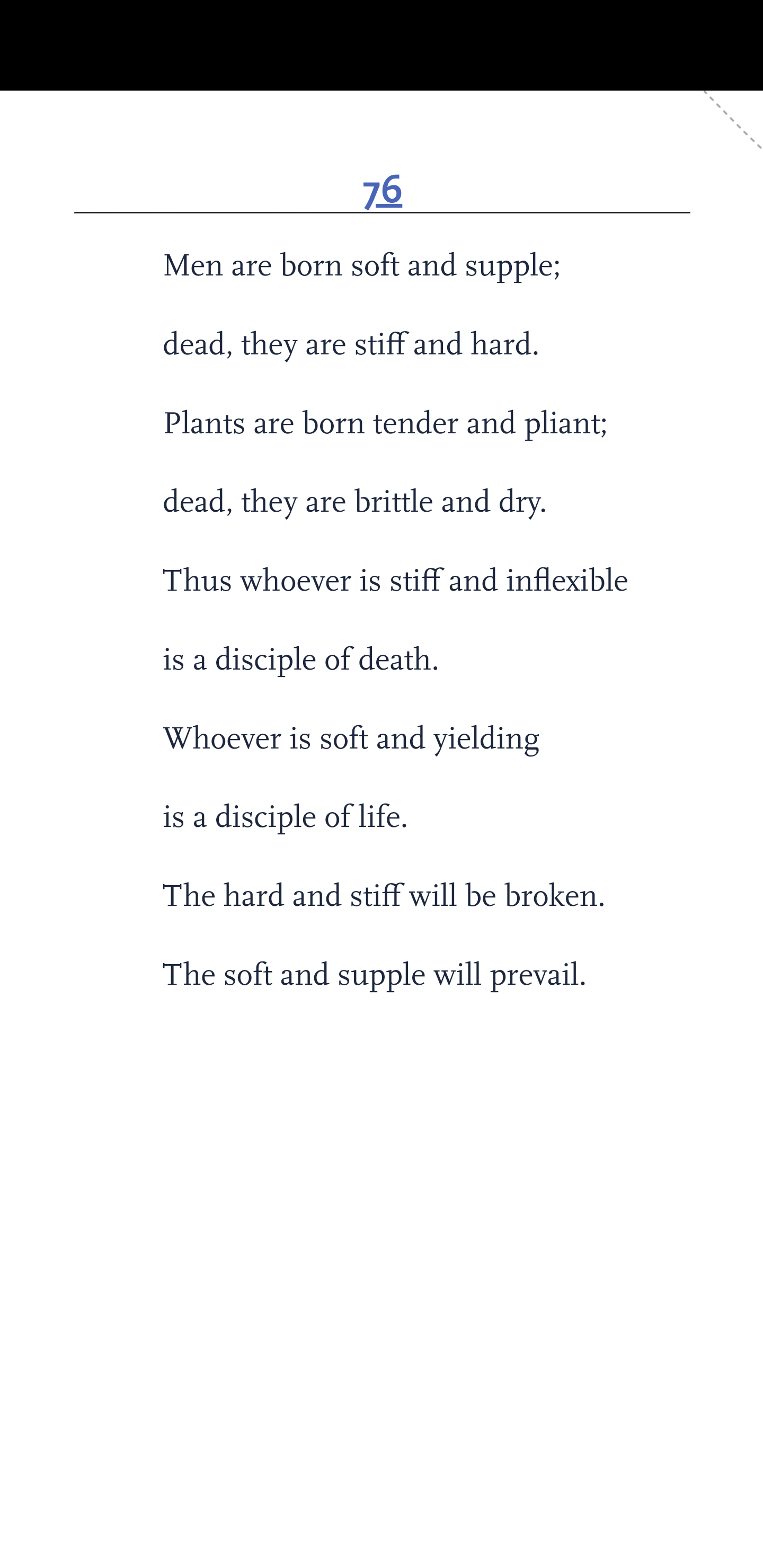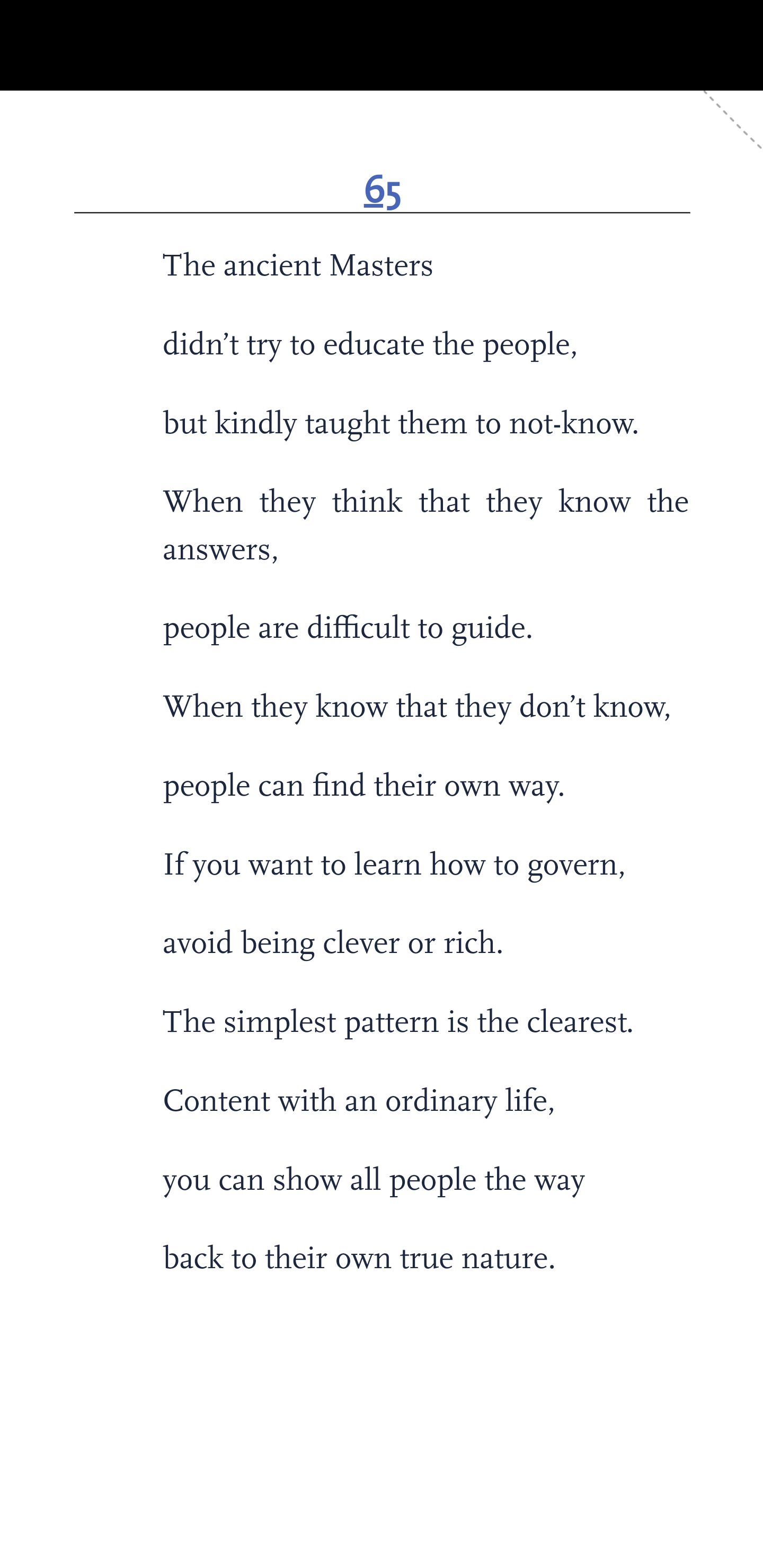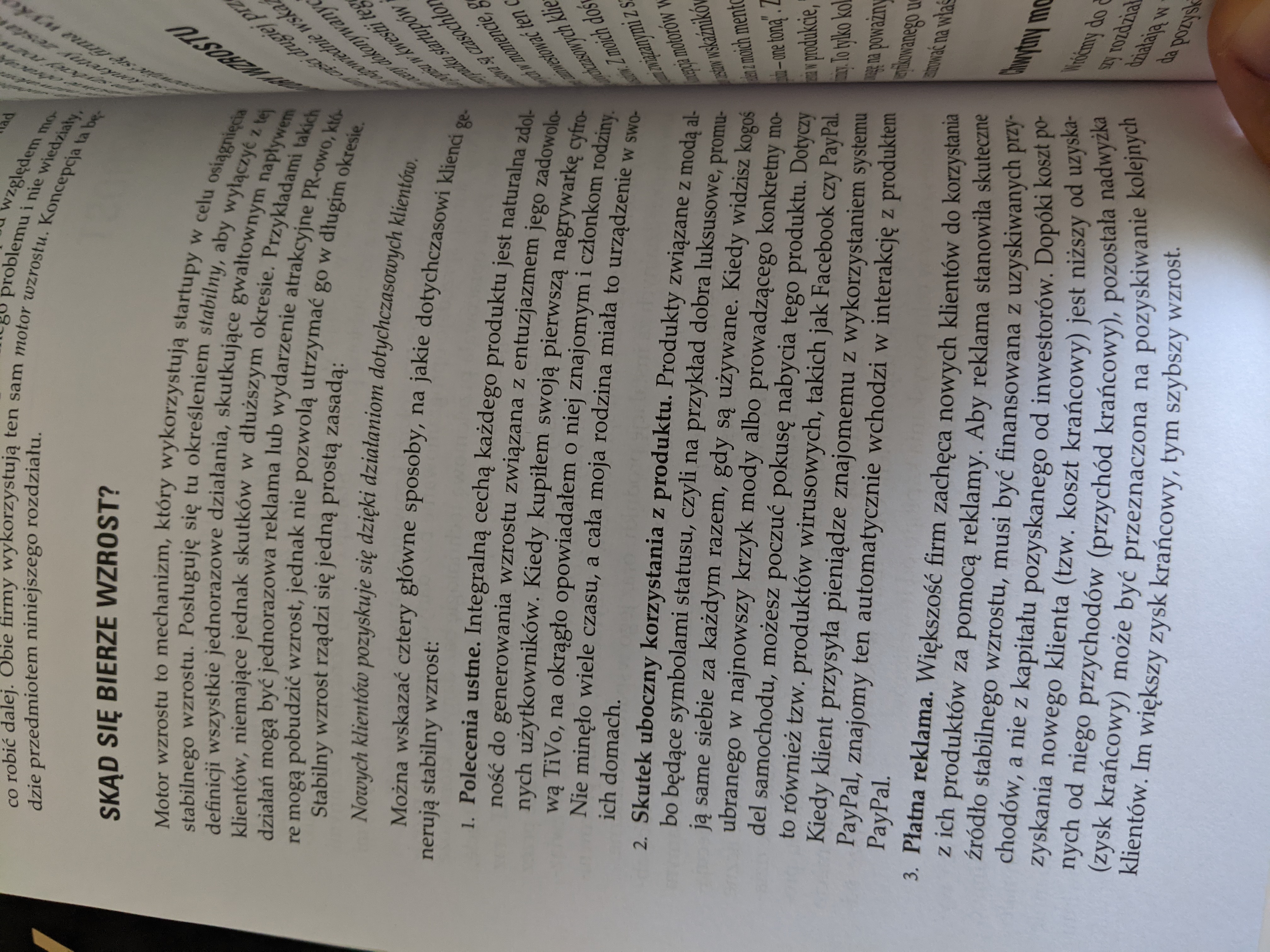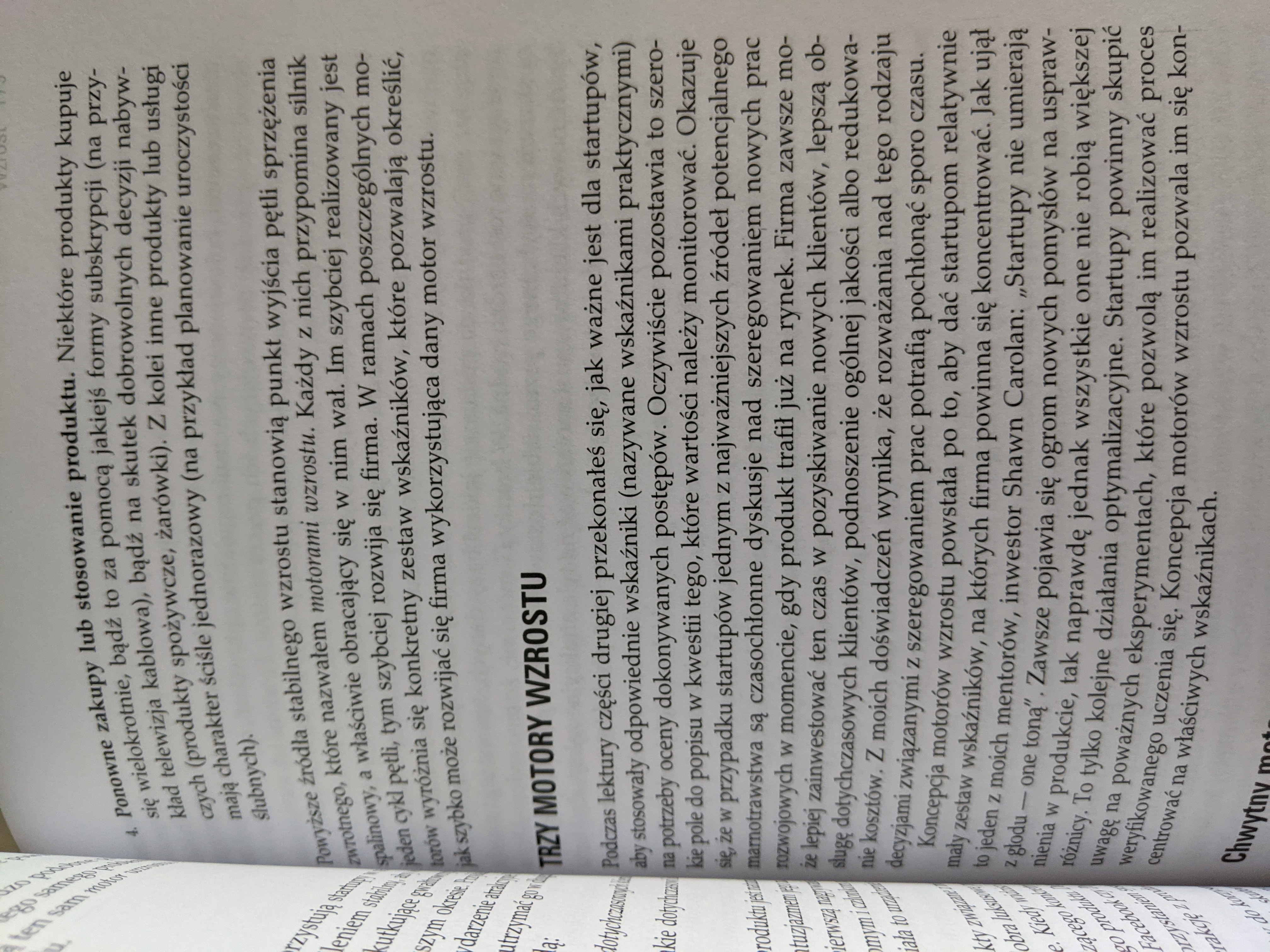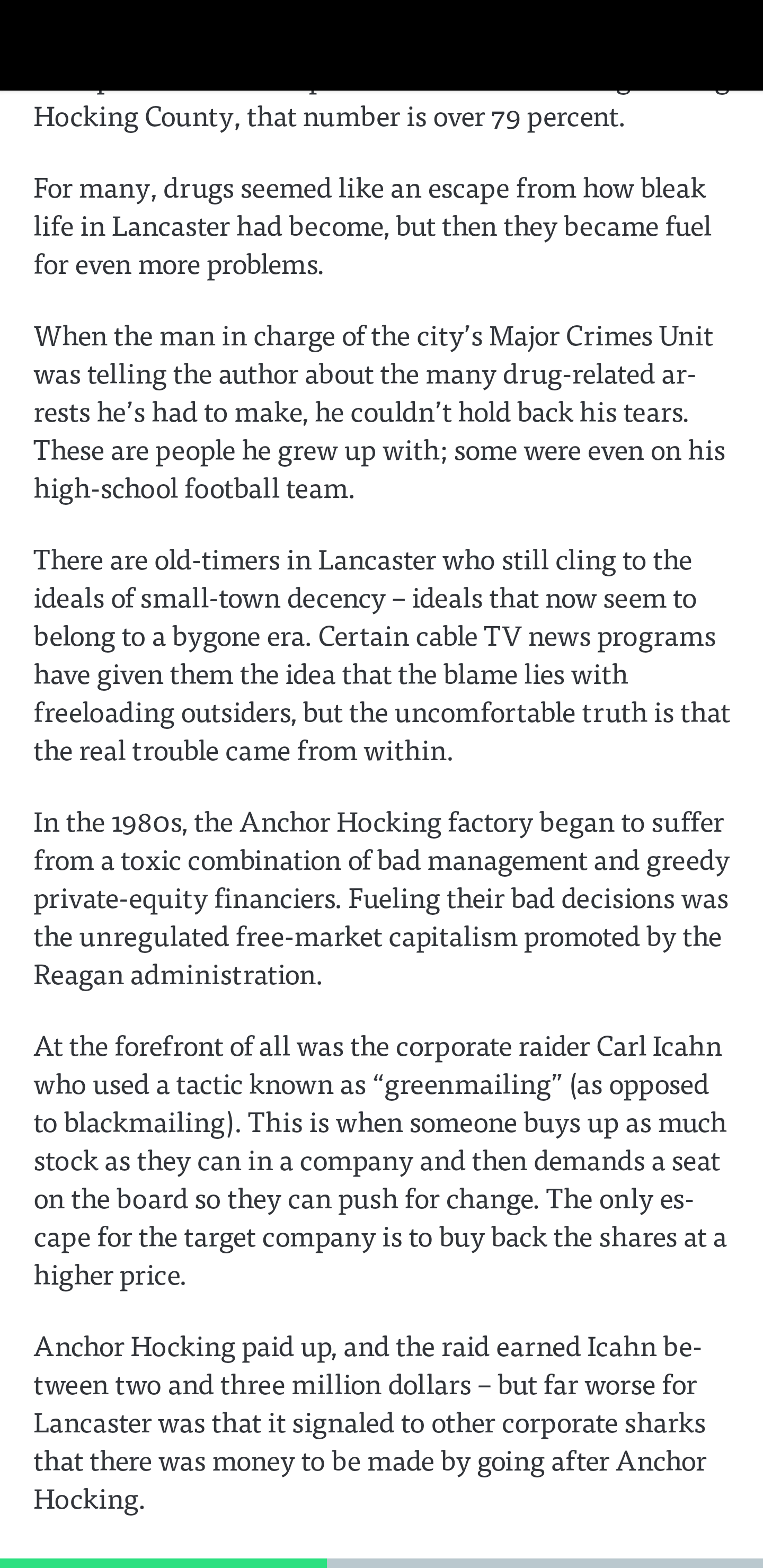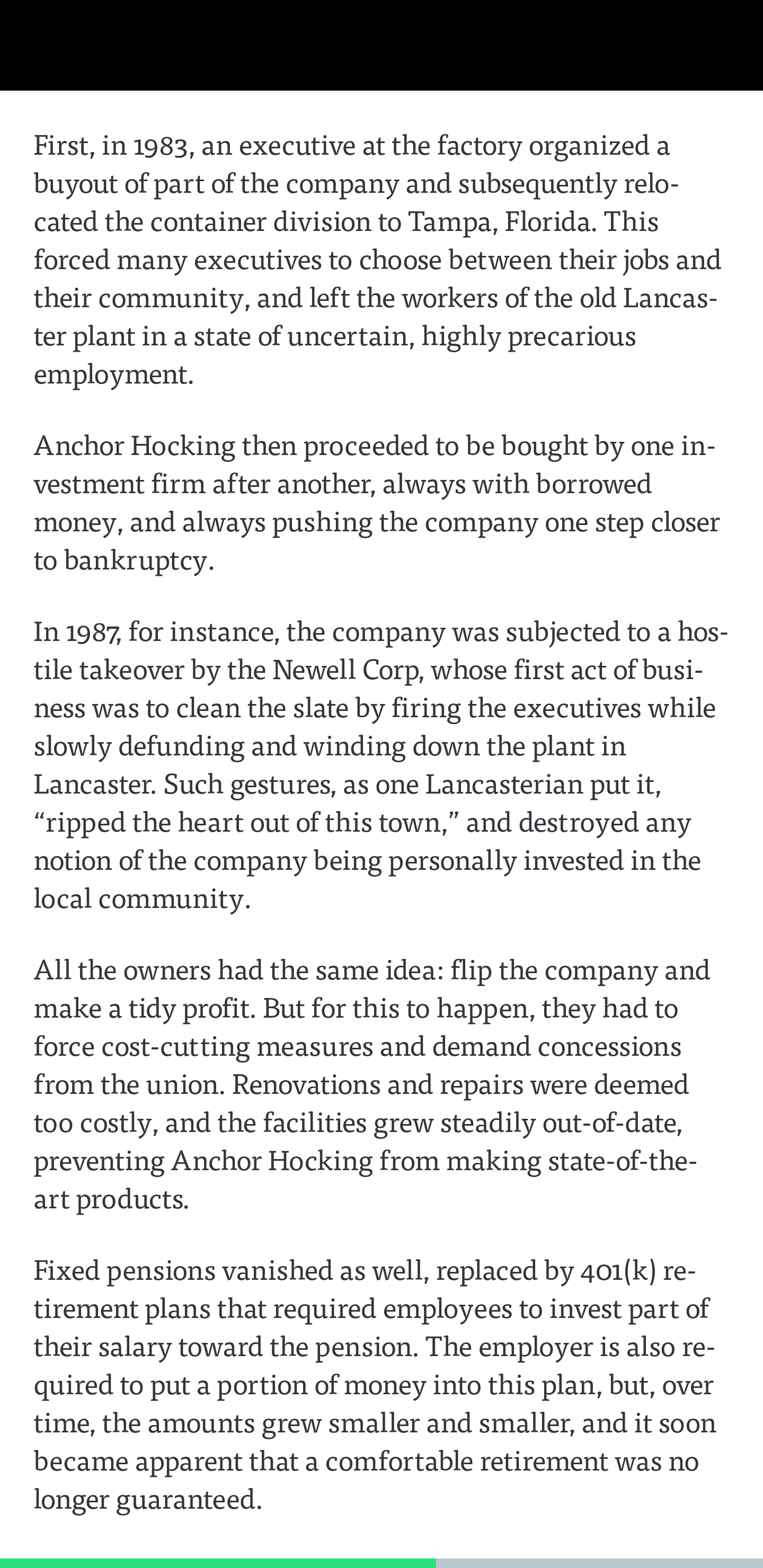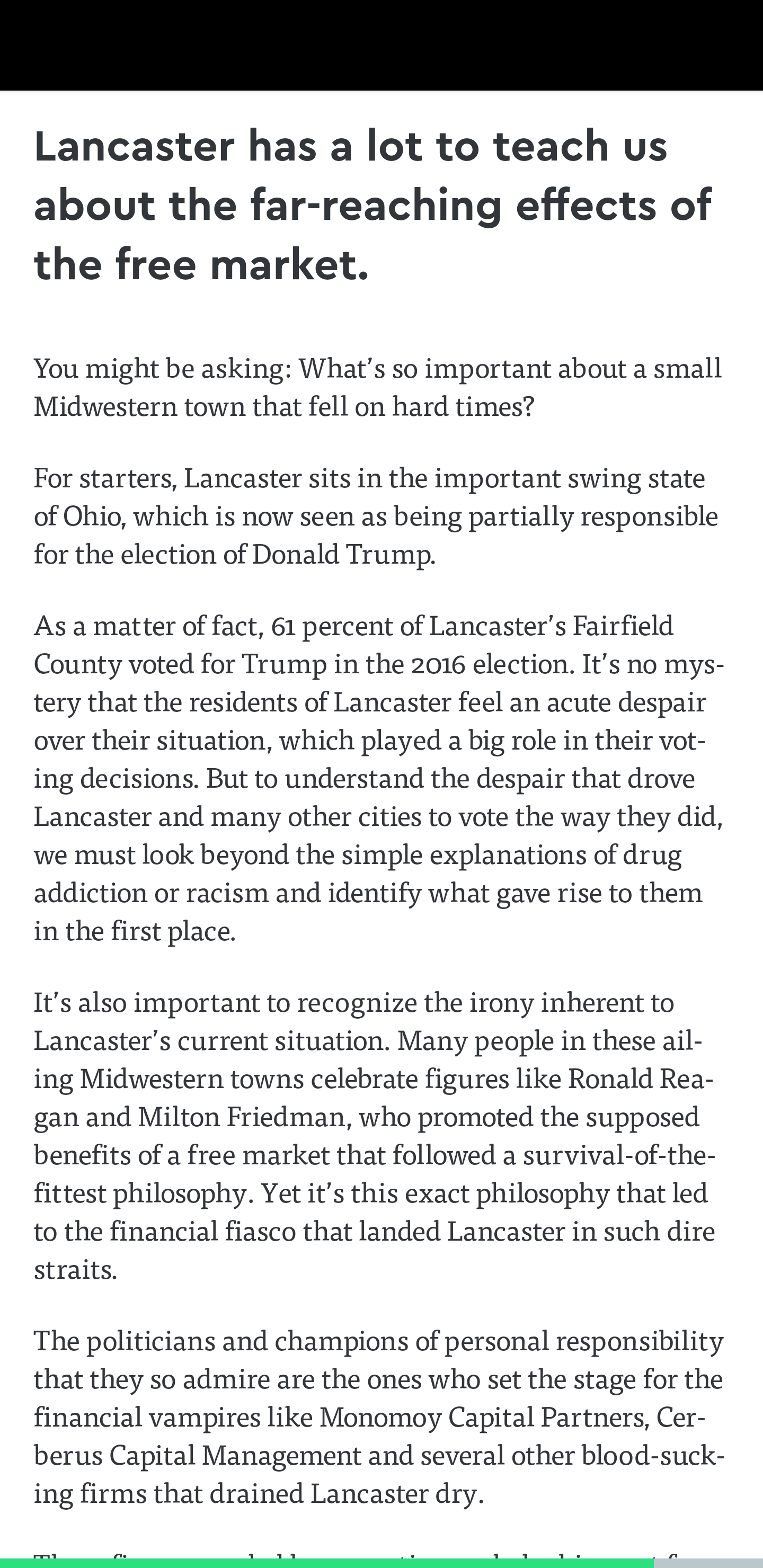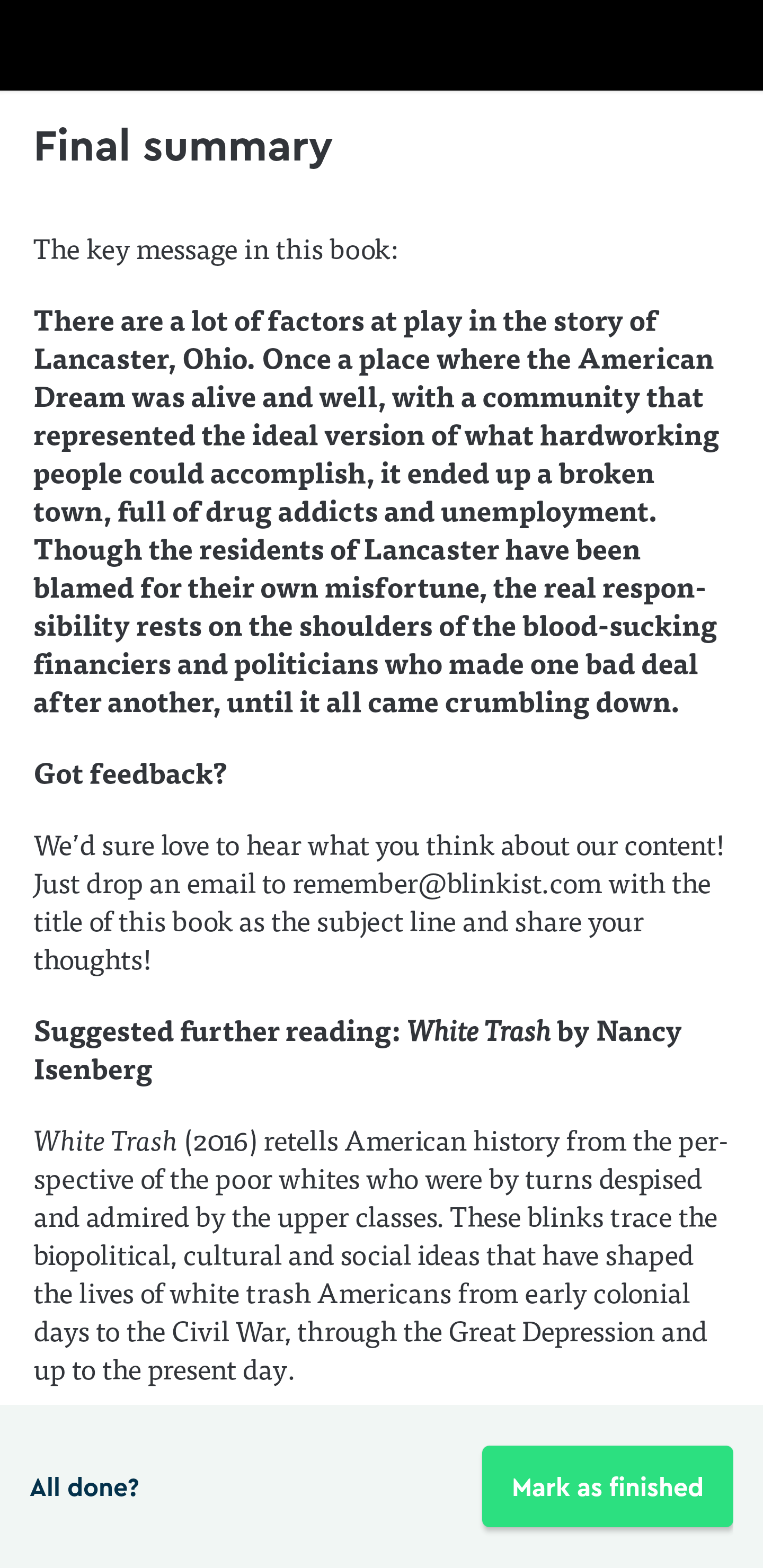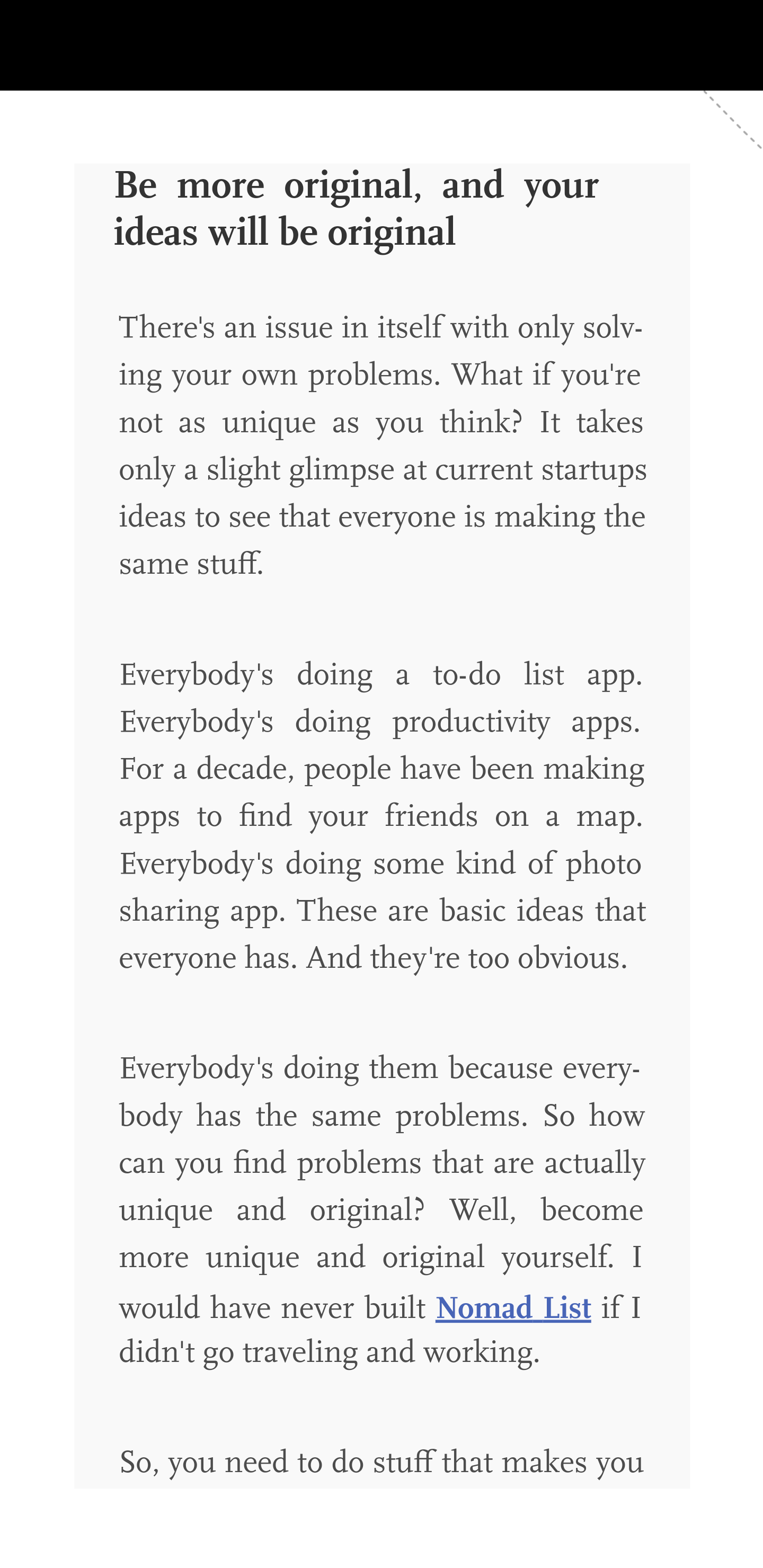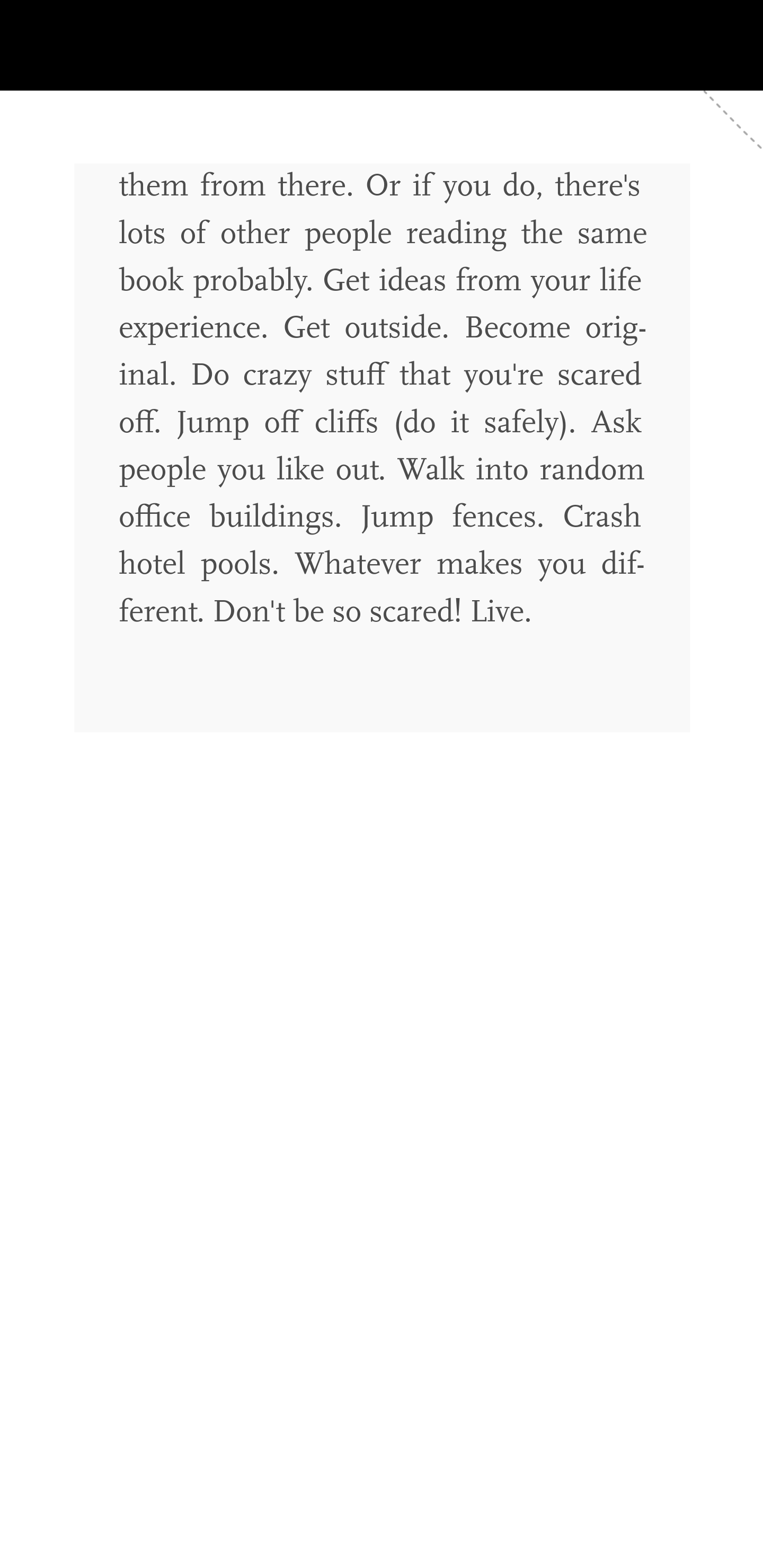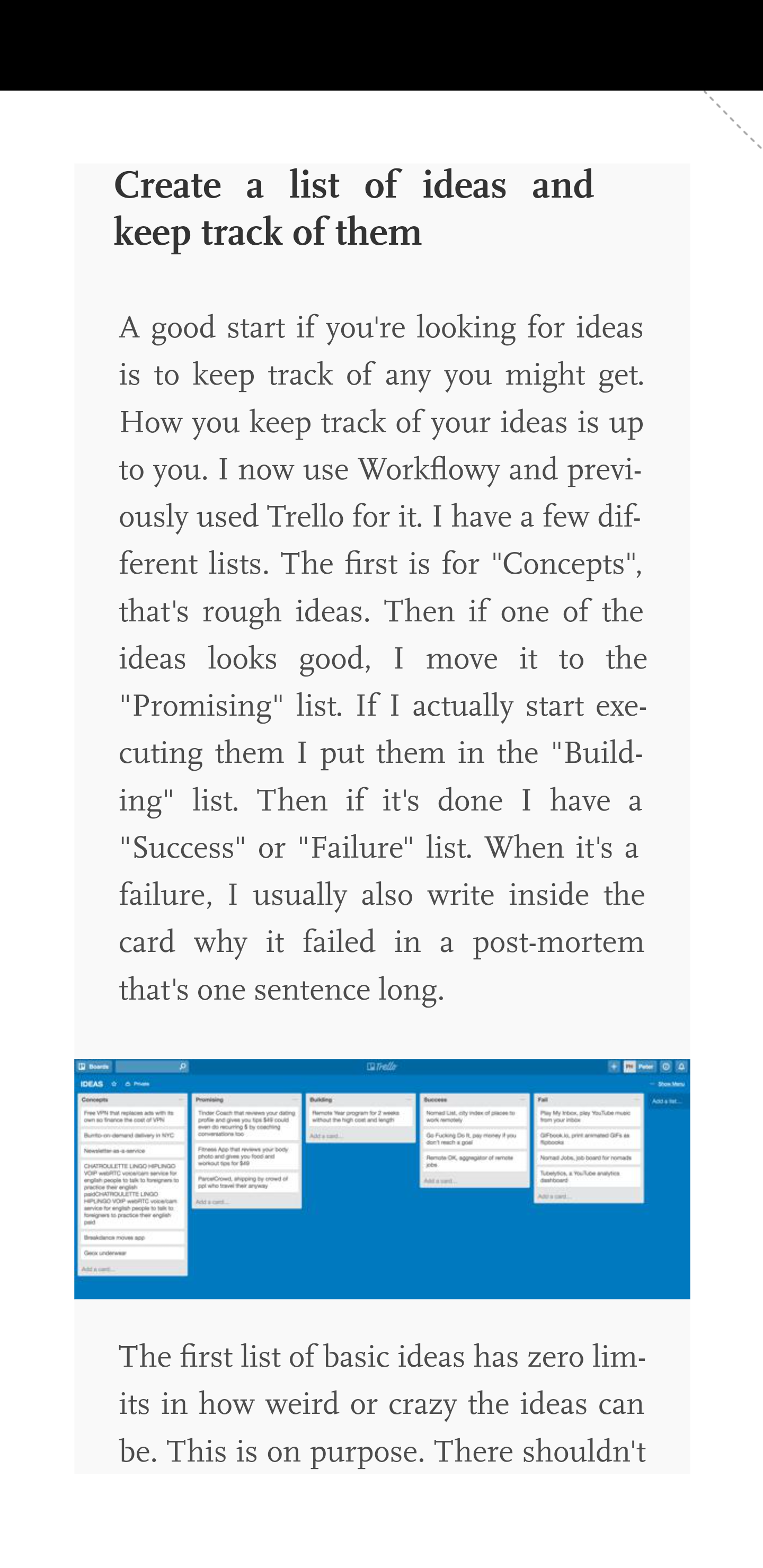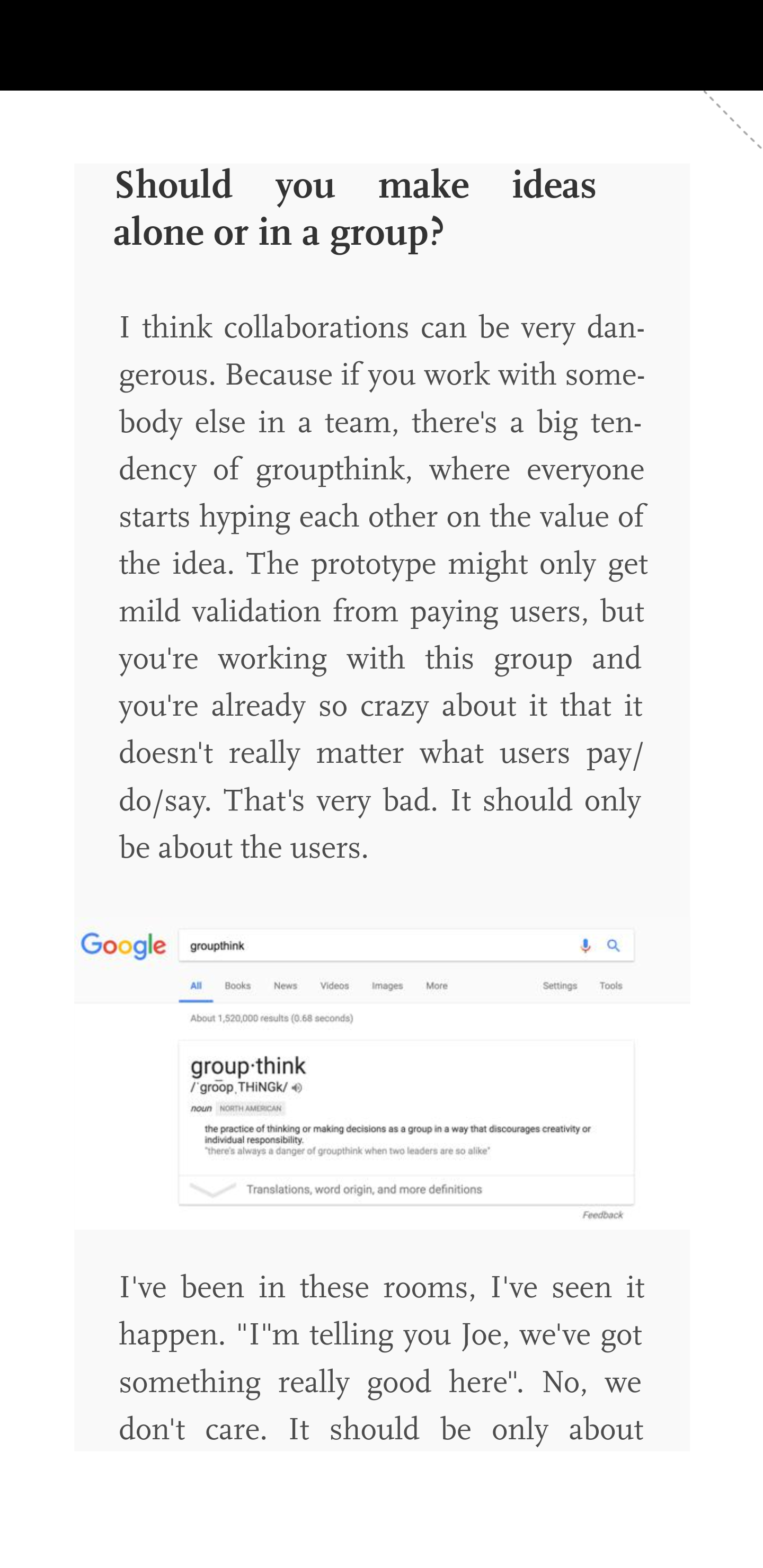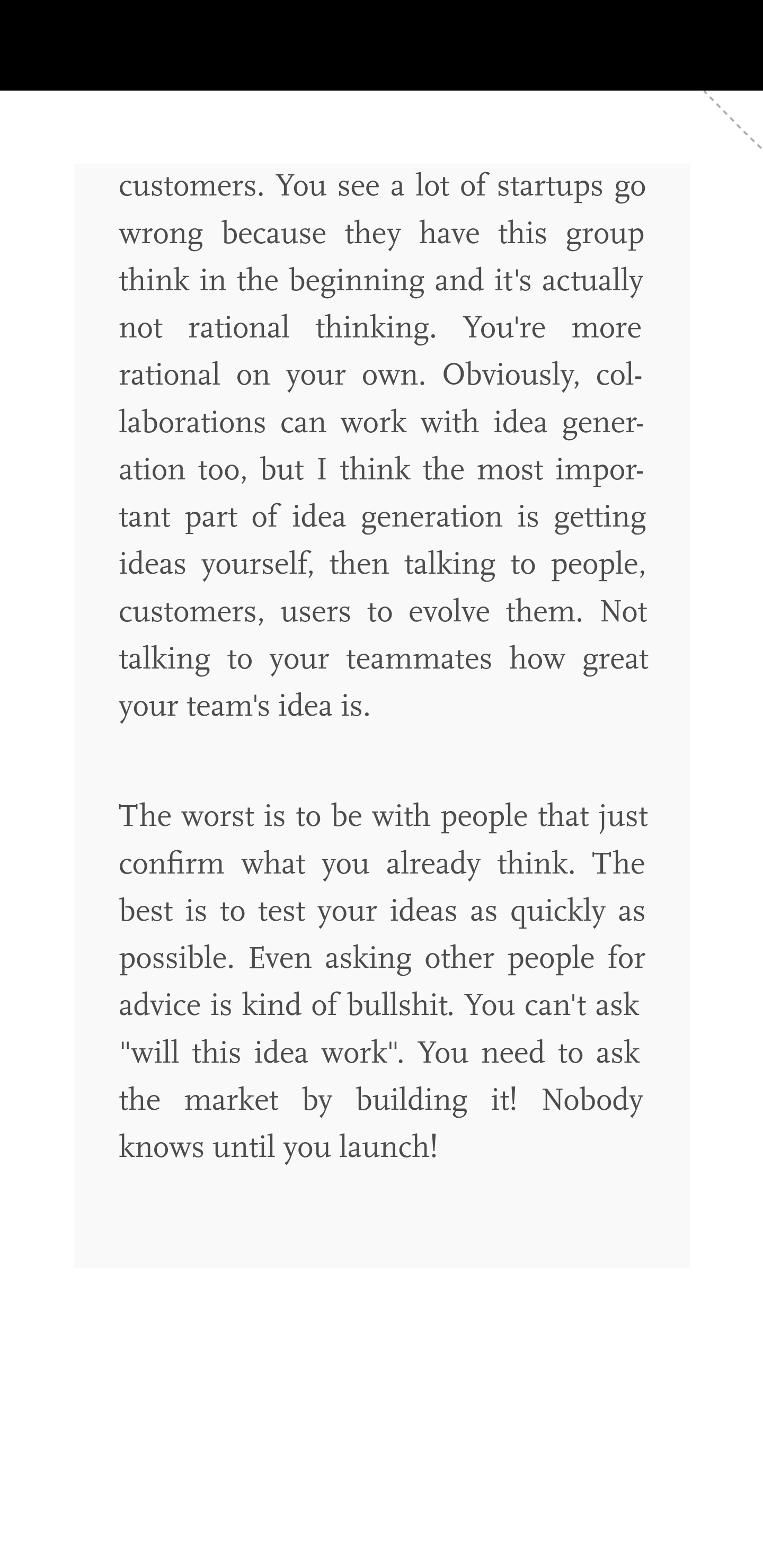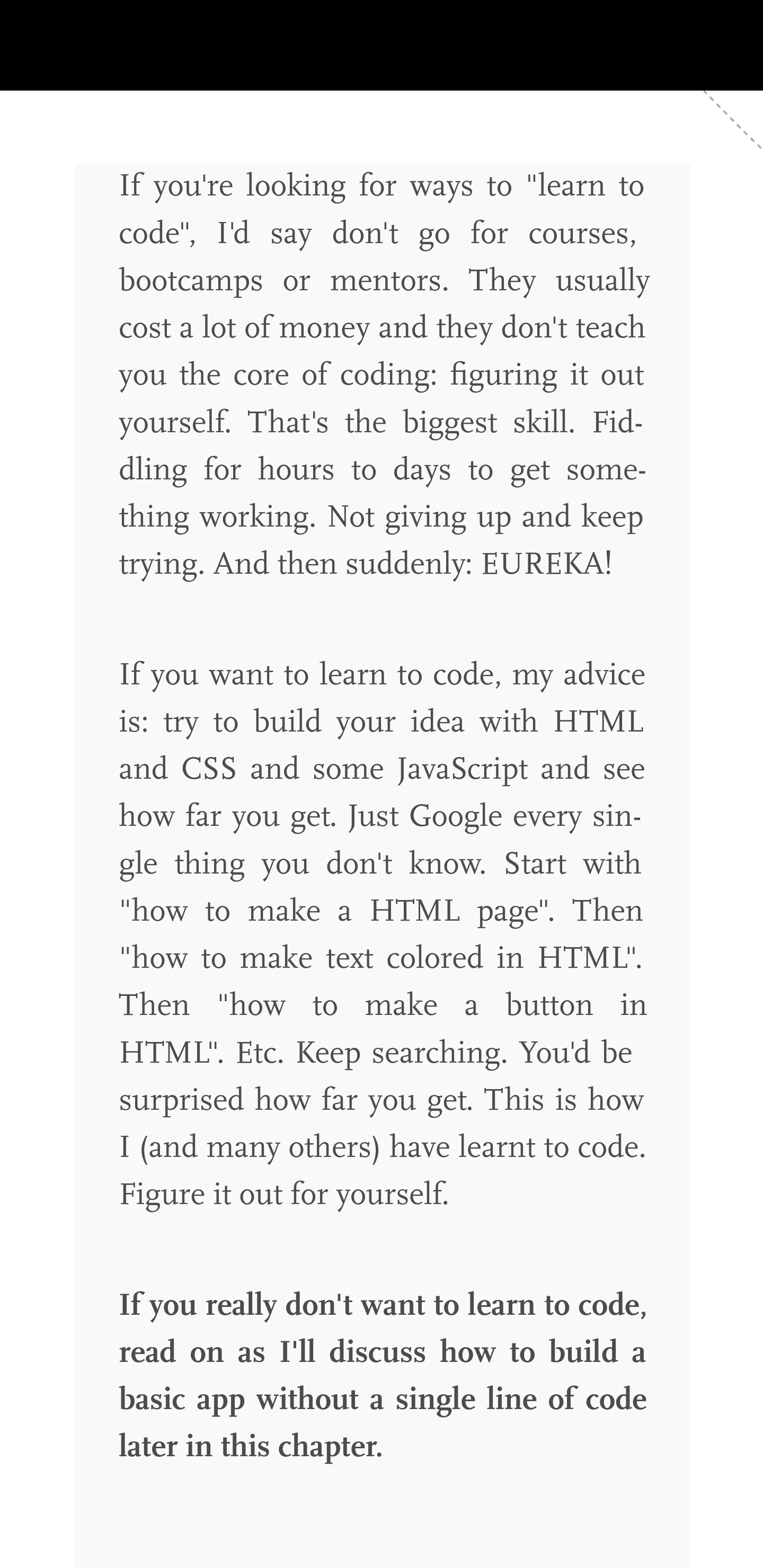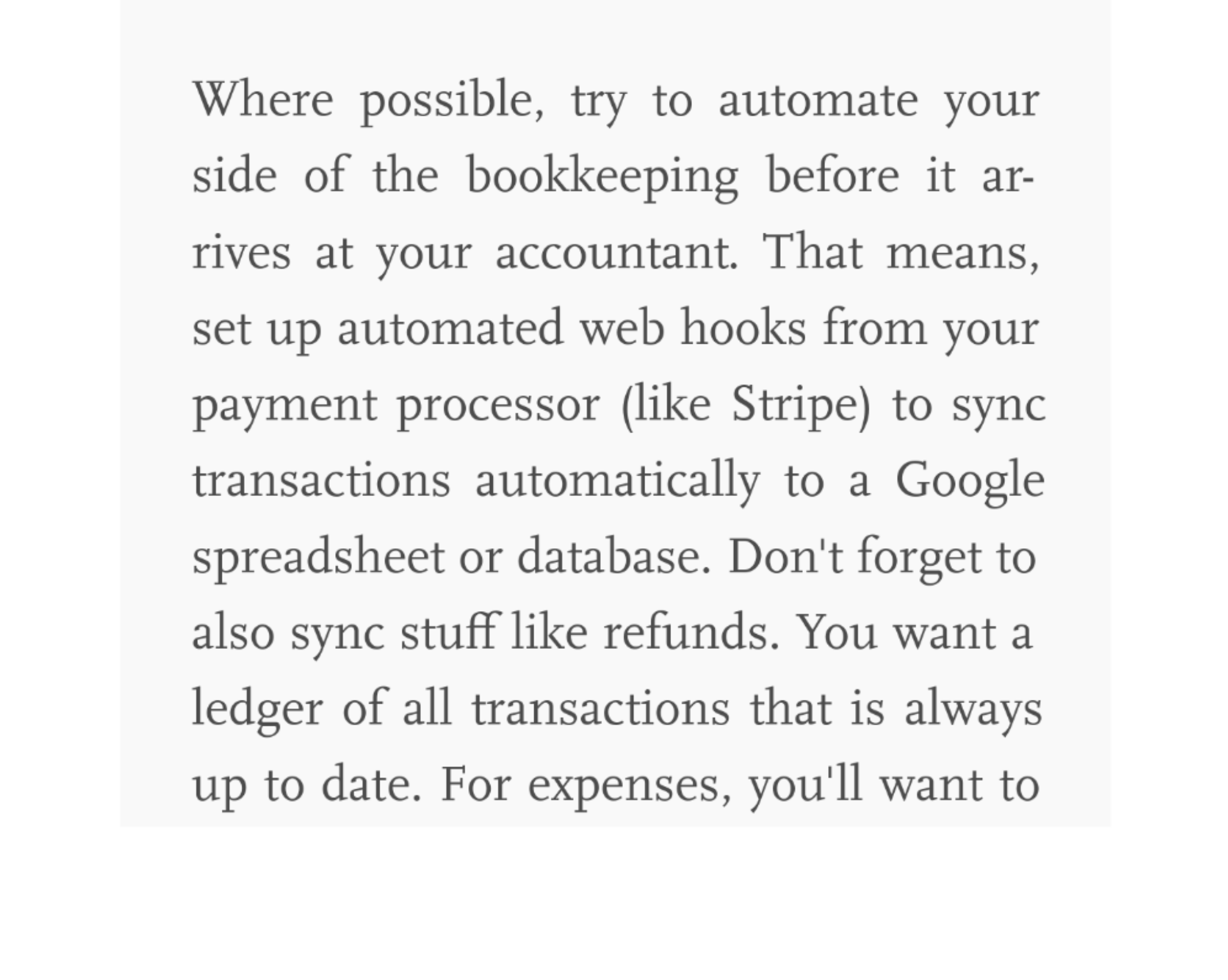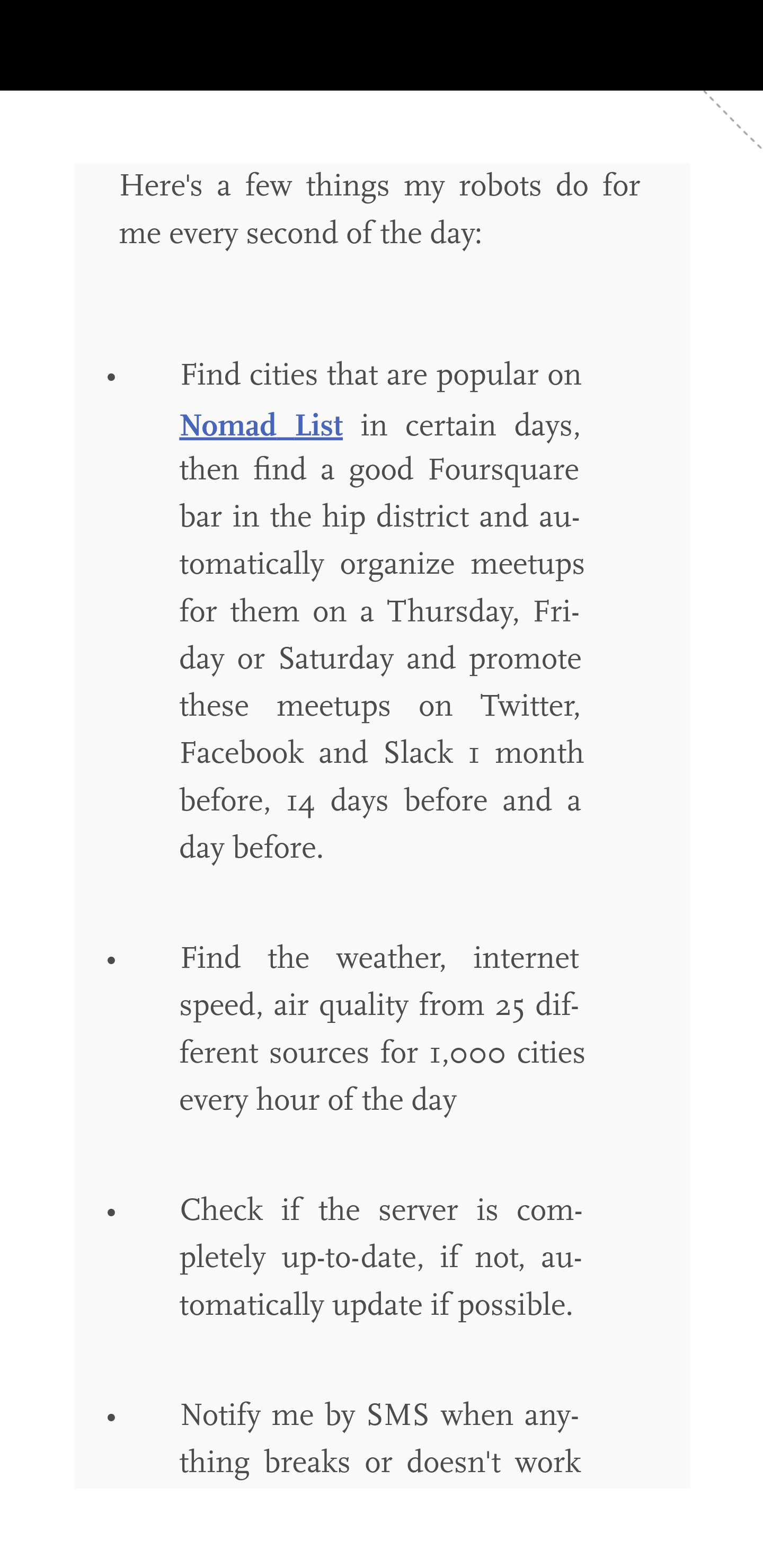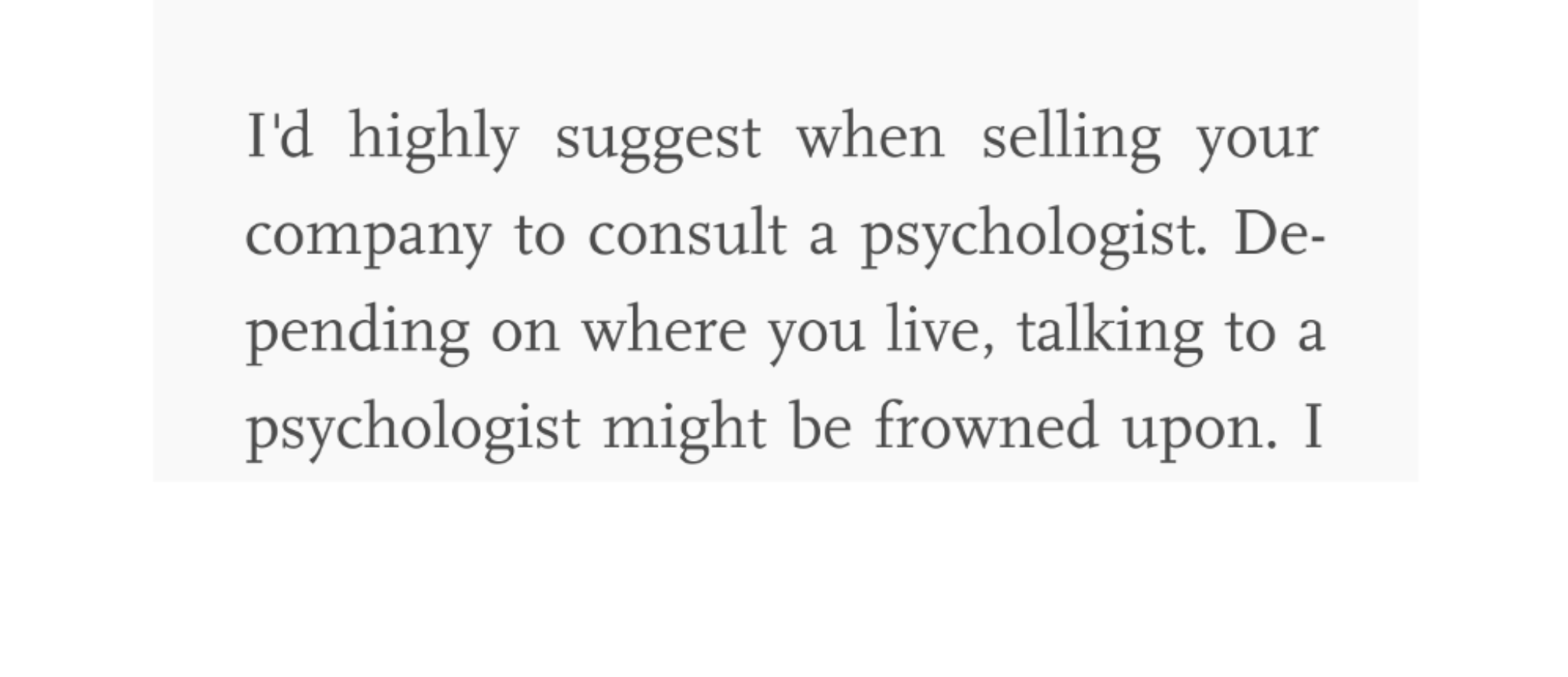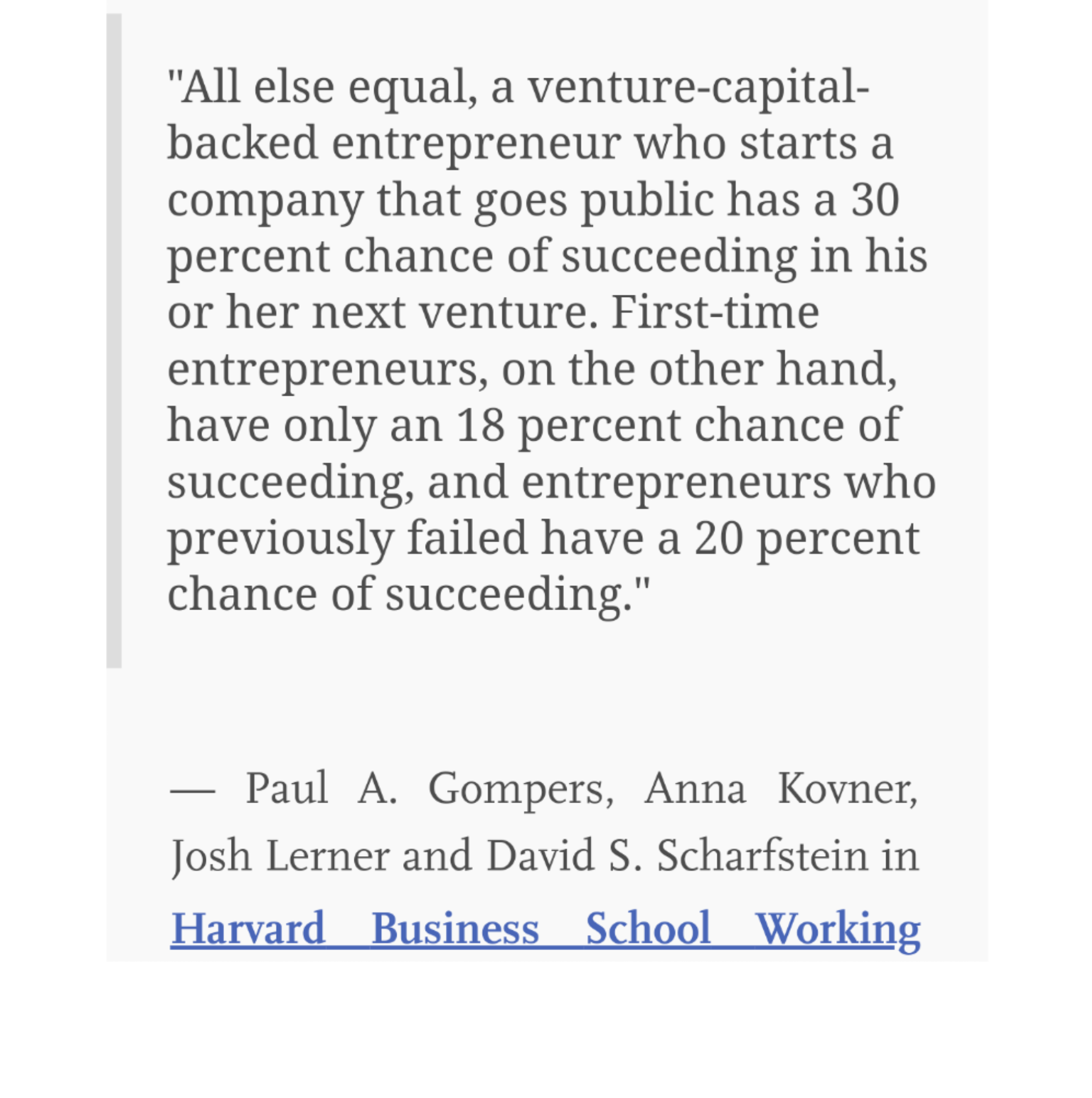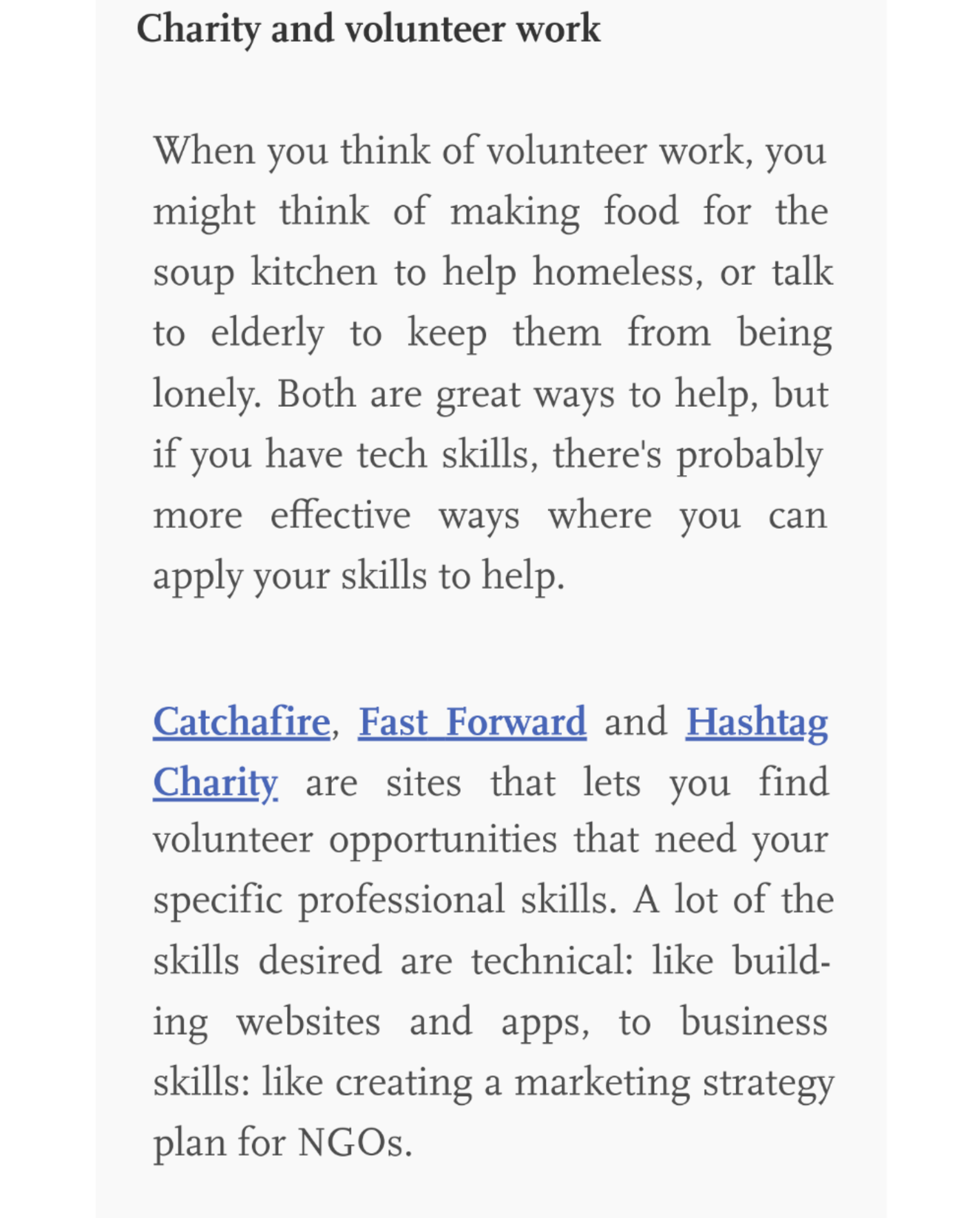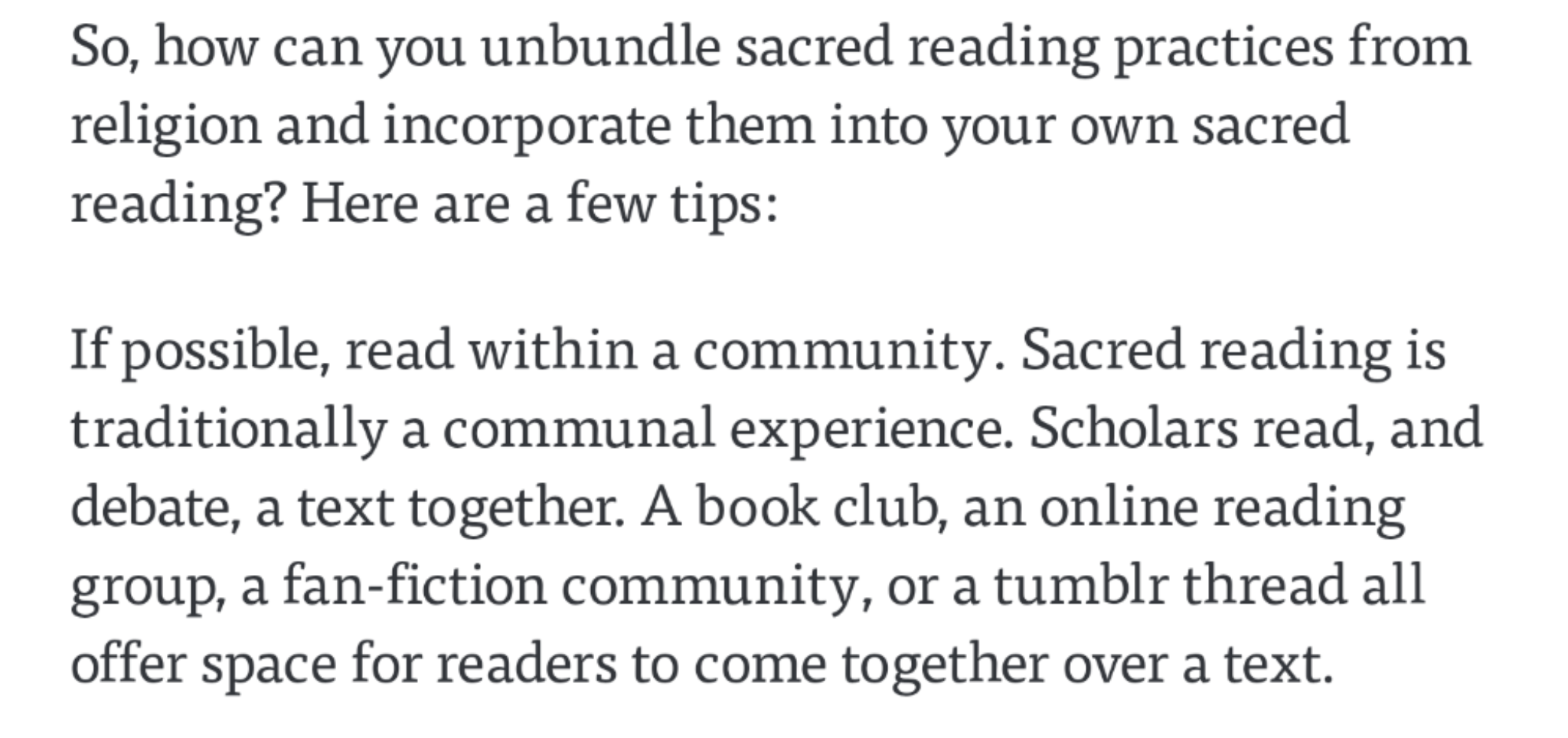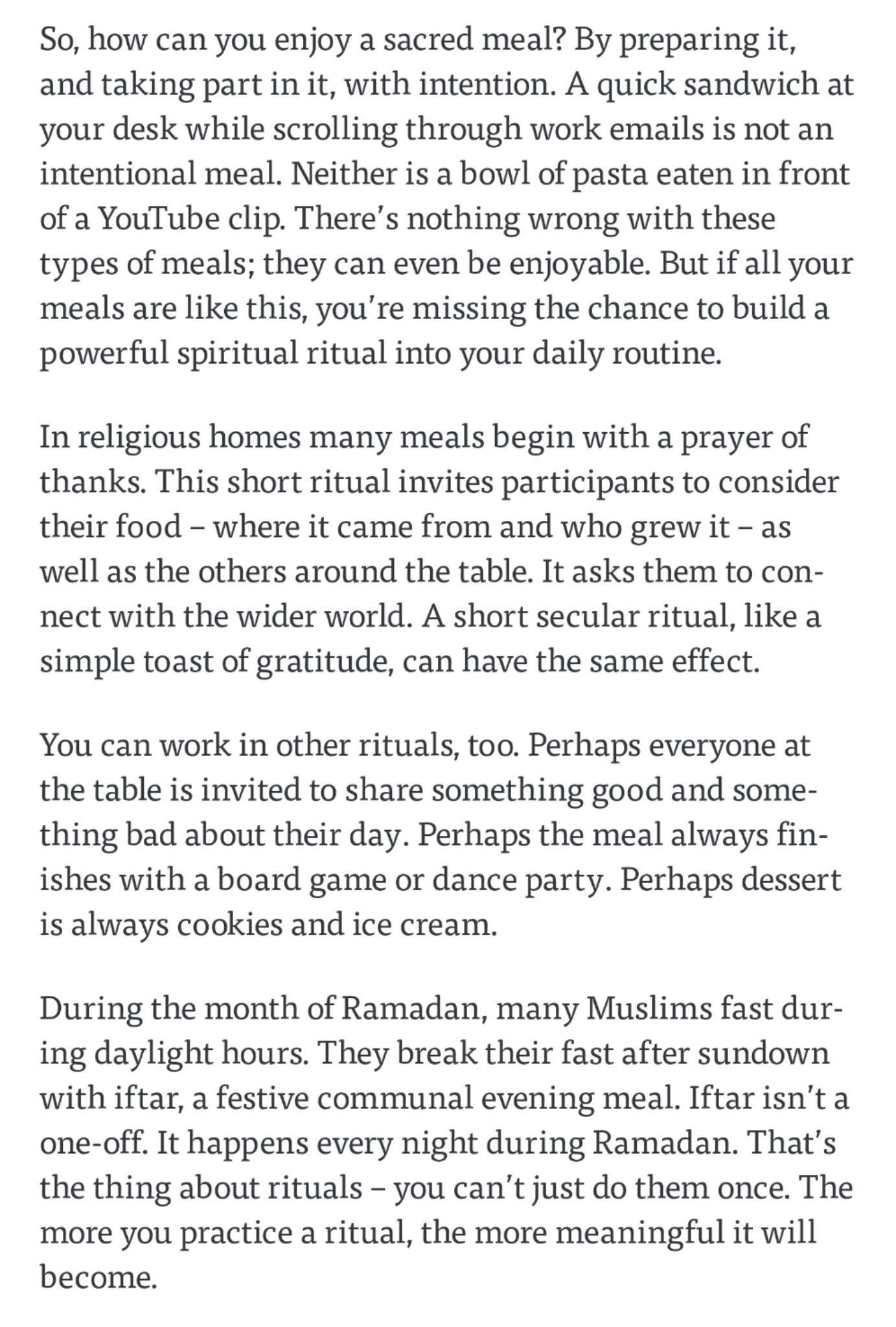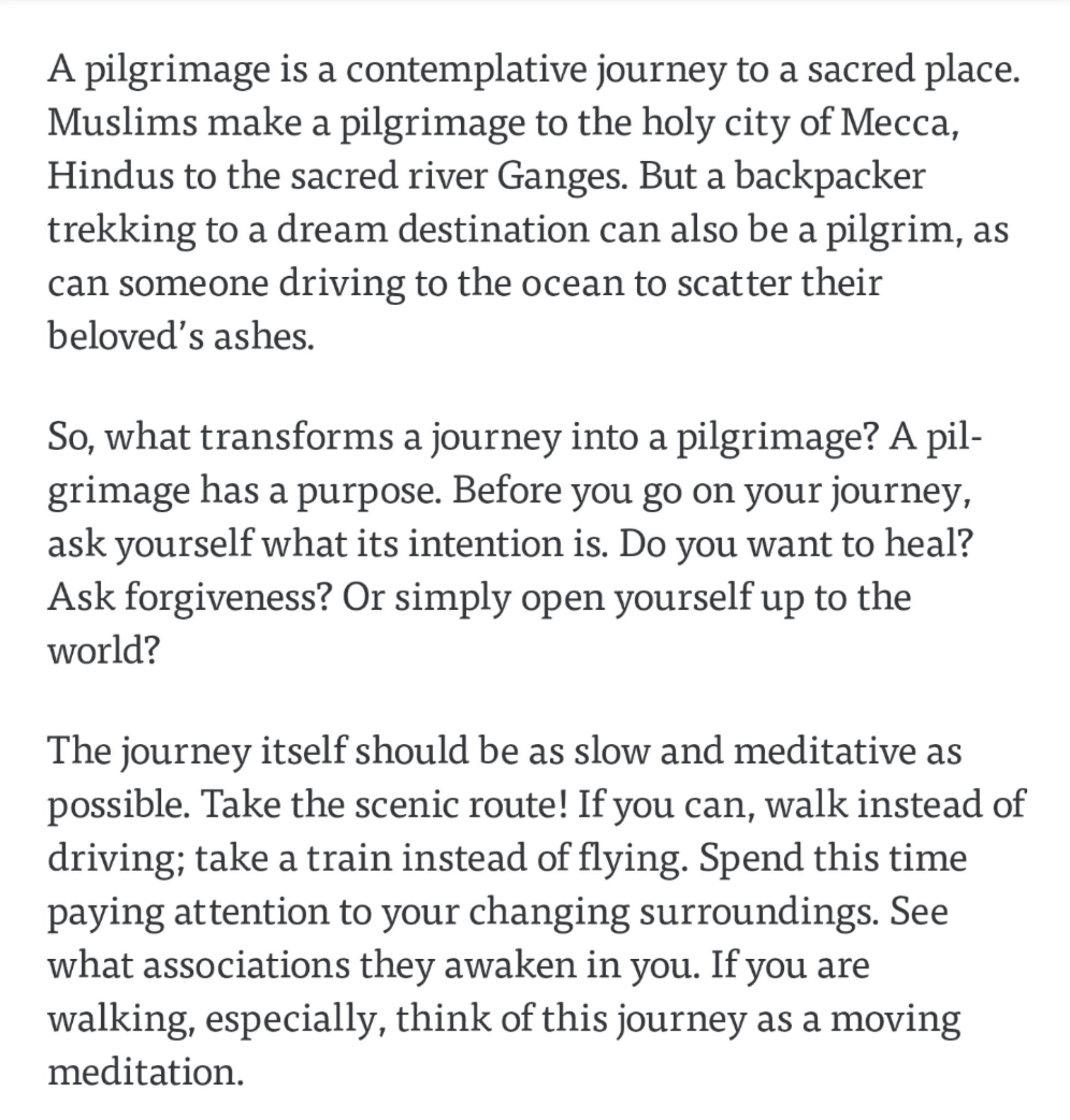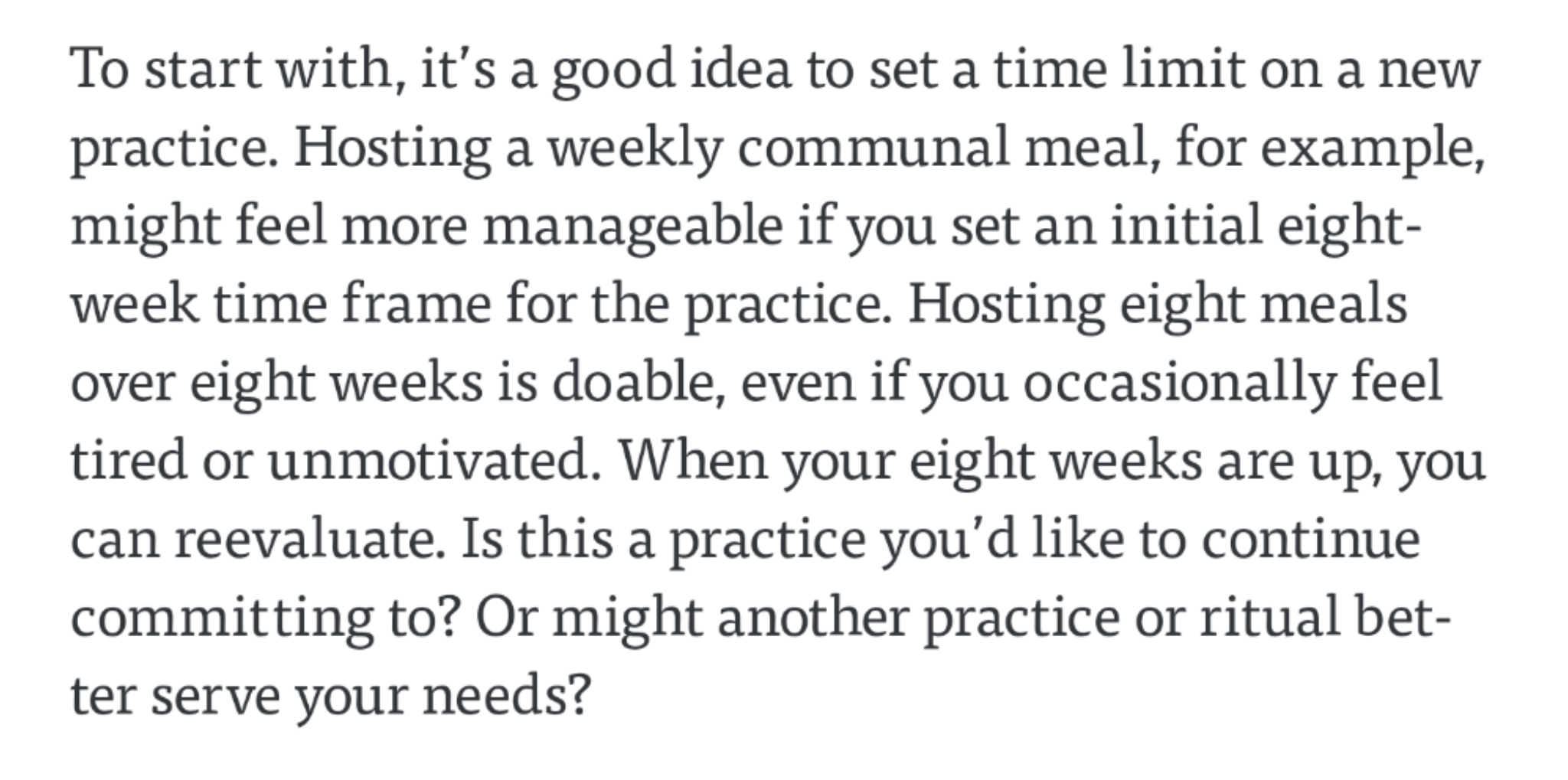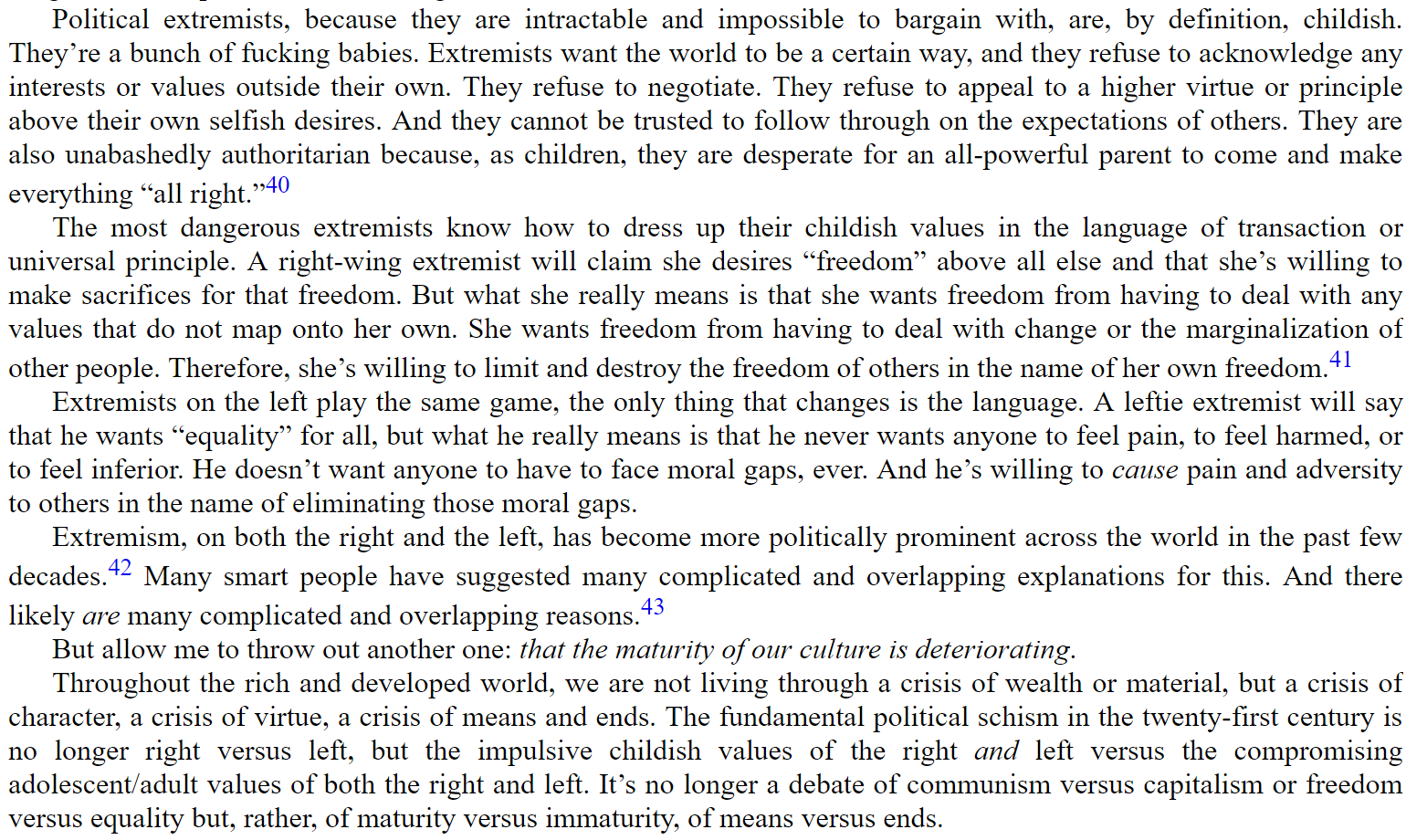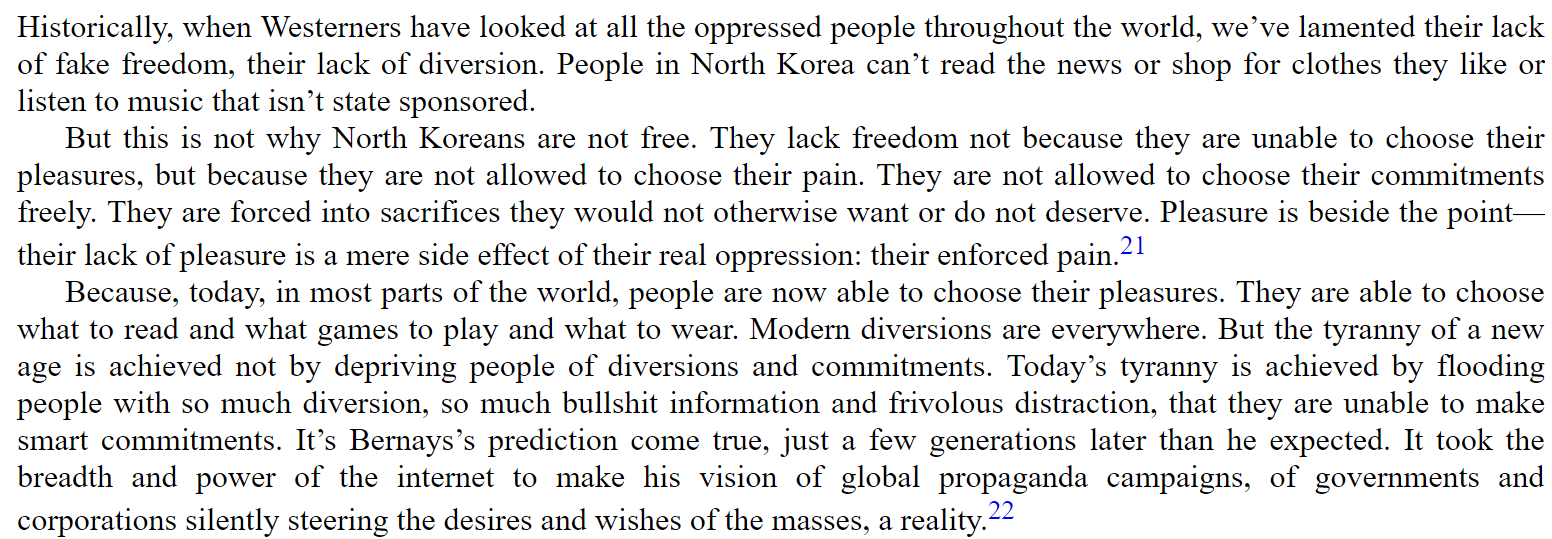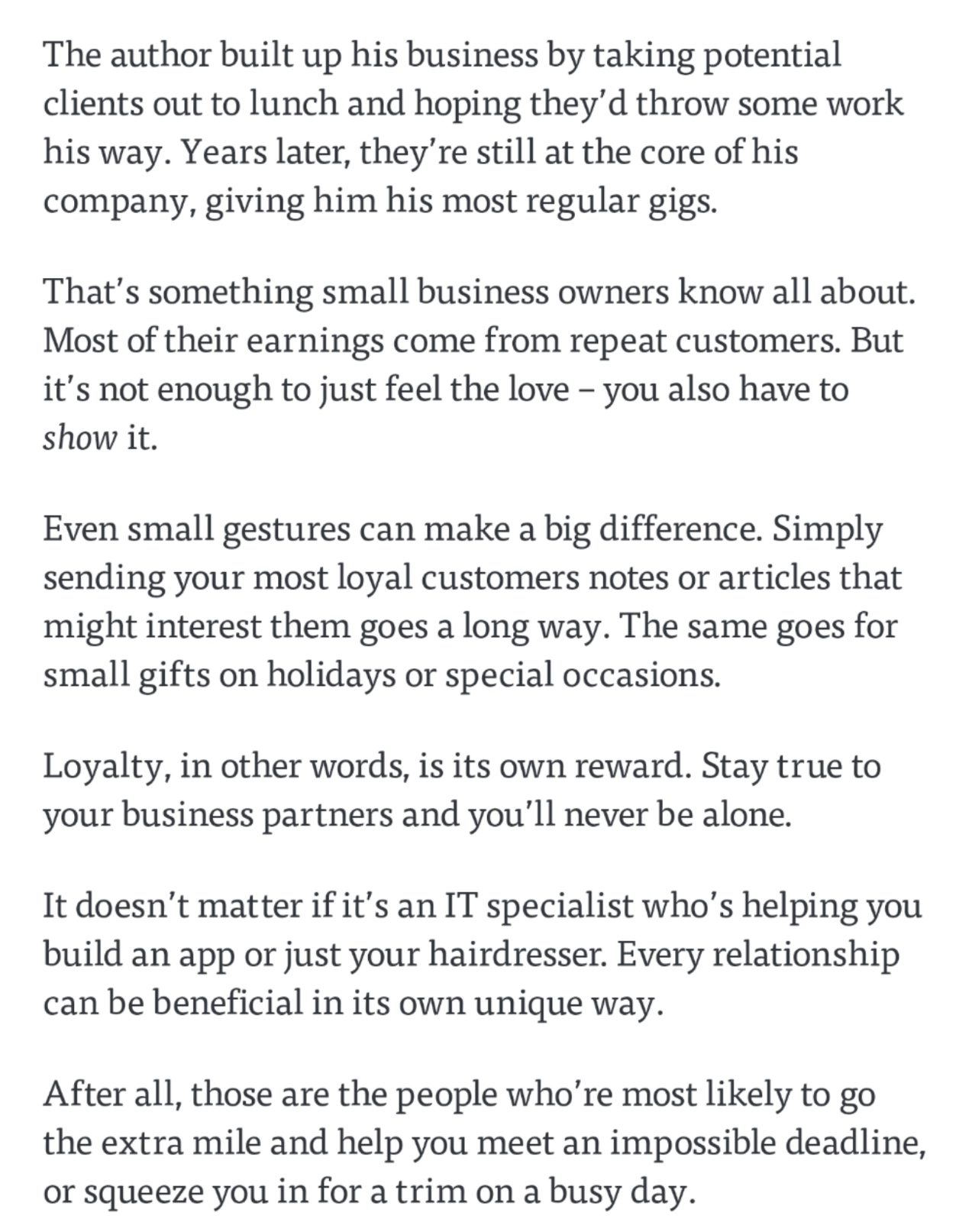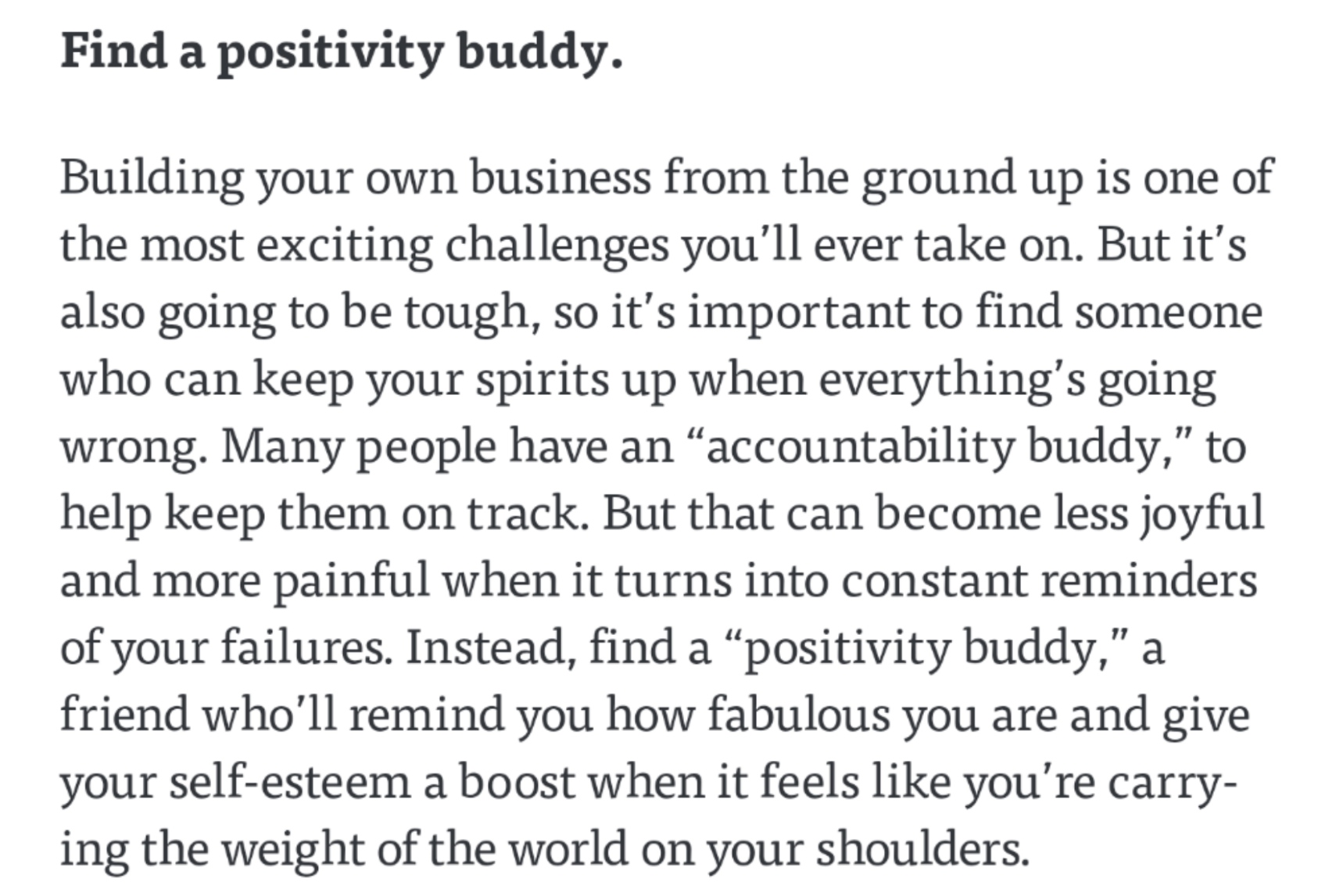BookNotes
- BookNotes The Burnout Generation
- The book is very US-centric, for this reason alone it is not recommended for people living outside US.
- With the way the US works, we see it’s a perfect ground for burnout: student debt, expensive health care, crazy real estate prices.
- The majority of people in the US have a lot of responsibilities due to the above facts, but very little control over how to approach them.
- Responsibility without agency is a simple way to burnout (illustrated with a case of social workers).
- The only universal insights I found in this book are those that mirrored Viktor Frankl’s “A Man’s Search for Meaning” and Mihaly Csikszentmihalyi “Flow”.
- If your job or life doesn’t have a meaning, you’ll burn out quickly.
- If your job or life provides flow (the feeling of getting lost in an activity that provides just enough challenge to keep you stimulated) you’ll be less prone to burnout.
- Coding is a career that is known to provide flow which is good. On the other hand, it can also provide responsibility without agency which is burnout-inducing.
- Your job is not your life. Your job is not who you are. Defining yoursefl only in terms of your job and professional achievements is a way to burnout.
- Invest (your time) in hobbies and social interactions to balance the stress generated by your job.
- BookNotes Rich Dad Poor Dad
- BookNotes Blinkist The Four Agreements
- Don’t use the words against yourself
- Take nothing personally
- Ask questions instead of making assumptions
- Always do your best even if the goal constantly changes
- BookNotes Rich Dad Poor Dad
- The poor struggle to make the ends meet, the middle class works for money but can’t handle it, the rich make the money work for them
- You can buy assets or liabilities. The rich buy assets, the poor and middle-class mostly buy liabilities.
- The assets are the things you own that work for you. It can be real-estate, products you sell, companies you own, etc.
- There’s a separate kind of assets called portfolio which encompasses stocks, bonds, and other financial instruments that earn money (as oppossed to savings that mainly maintain their worth).
- I loved the lessons about making money and learning to sell.
- The author emphasizes investing in your marketing and sales skills if you want to be rich. This is something I discovered only in the recent years and I wished I knew about it earlier (instead I thought that getting better at my job would be the best investment).
- I liked how the author interjected some cross-sales of his other products throughout the book. It was unobtrusive, informative, and entertaining. I wish the regular self-advertisements were that good!
- The book is heavily biased towards real-estate investments. I understand this is because that’s the author’s favorite, but the other types of income should get some more time as well.
- The sell before you buy principle was really good. It’s something indie hackers use to research if there’s a market fit. First look for someone who is willing to buy a given asset (real-estate, product, services) and only then acquire the asset at a lower price (find an occassion, build a product, hire freelancers).
- I liked how the author mentioned that group discounts are a thing and whenever you want to buy something, find a group of people with similar needs and negotiate a discout. I’ve been using this tactic to buy theatre tickets, concert tickets, cheap accomodation, clothes, and other stuff ever since I remember.
- Before he became a real-estate investor, the author was a very successful salesperson. This shows where his influence and negotiation skills probably come from (or where they were developed). I wonder whether a similar feat is possible for those who don’t necessarly have experience in sales.
- Once again, after “Nudge”, it was quite an uncomfortable read. It made me realize how much have I been missing my entire professional life. It brought some anxiety, but also (ironically) a nudge to act.
- Altough the book focuses on how to get financial independence, the author admits he started his sales career doing a lot of work and becoming the best salesperson. This is the classical “work hard, put in long hours, and after some time you will make it”. The author admits that right now, the best deals come from a little work, but he started in the usual overworked way. I’m really curious to learn about people who became financially independent without putting extra hours or even putting less hours to work than most (“The 4-Hour Workweek” is not that book, BTW).
- BookNotes Blinkist 📗Rest
- BookNotes Blinkist 📗Linchpin
- BookNotes The Hard Thing About Hard Things
- The author mentions a moment where he decided he has to make a serious choice as he can’t follow all his projects, passions, and interests and still have family. After that realization he left his startup job to get something more stable. This choice, however, didn’t prevent him from founding a startup in the future. And one that would take him even farther from his family at times. I find this rather inconsistent.
- Netscape came to be as a commercial approach to Mosaic (the first graphical Web browser). To this day, Mosaic Killer (Mozilla) is an important Web Browser and a proponent of the free Web.
- One of author’s companies, Loudcloud, was financed by SoftBank. I didn’t know SoftBank existed in the nineties. Nowadays, SoftBank looks to me like one of the most evil companies around.
- BookNotes The Hard Thing About Hard Things
- BookNotes The Hard Thing About Hard Things
- The author mentions a moment where he decided he has to make a serious choice as he can’t follow all his projects, passions, and interests and still have family. After that realization he left his startup job to get something more stable. This choice, however, didn’t prevent him from founding a startup in the future. And one that would take him even farther from his family at times. I find this rather inconsistent.
- Netscape came to be as a commercial approach to Mosaic (the first graphical Web browser). To this day, Mosaic Killer (Mozilla) is an important Web Browser and a proponent of the free Web.
- One of author’s companies, Loudcloud, was financed by SoftBank. I didn’t know SoftBank existed in the nineties. Nowadays, SoftBank looks to me like one of the most evil companies around.
- BookNotes The Hard Thing About Hard Things
- BookNotes The Hard Thing About Hard Things
- Don’t get me wrong, there’s a lot of great advice in the book. But it’s another example of “work 16h days to make it or you’re nothing”.
- The author mentions in tech you have to be great or you lose. I’m not sure about it and I definitely believe outside of tech you can be just good and still be fine.
- The story of keeping an executive with cancer on a payroll long enough so he can get health insurance was touching. However, it shows how broken the US health system is. If your literal life is a matter of your employer’s decision, is it very different from slavery?
- Another comment on the cancer story, the author mentions that the company was fighting for survival so he had more empathy for a person with cancer fighting for survival. I found this analogy extremely insensitive. Your company may not survive and you are still free to take the most of life, maybe just lowering your leisure expectations. When you have cancer, not surviving means something entirely different.
- BookNotes The Hard Thing About Hard Things
- BookNotes The Hard Thing About Hard Things
- Don’t get me wrong, there’s a lot of great advice in the book. But it’s another example of “work 16h days to make it or you’re nothing”.
- The author mentions in tech you have to be great or you lose. I’m not sure about it and I definitely believe outside of tech you can be just good and still be fine.
- The story of keeping an executive with cancer on a payroll long enough so he can get health insurance was touching. However, it shows how broken the US health system is. If your literal life is a matter of your employer’s decision, is it very different from slavery?
- Another comment on the cancer story, the author mentions that the company was fighting for survival so he had more empathy for a person with cancer fighting for survival. I found this analogy extremely insensitive. Your company may not survive and you are still free to take the most of life, maybe just lowering your leisure expectations. When you have cancer, not surviving means something entirely different.
- BookNotes The Hard Thing About Hard Things
- BookNotes The Hard Thing About Hard Things
- There are a lot of excuses in this book. “We did something bad, but we had to do this to survive”. No you didn’t. Survival of your company might have been at stake, but not your survival, neither that of your employees (unless in the United States you die when you become unemployed).
- This is yet another book focused mostly on public companies with huge teams. I haven’t yet found a good book talking about bootstrapped small to medium companies.
- There’s a lot of war metaphores. Hiring a general, curshing the compatition, and so on. Why it is highly poetic, it is used to justify terrible beahvior. When you’re in war, all that matter is whether you win or lose, so you can do just about anything to achieve your goal. Well, I see it as excuses, but then again I’ve never been a CEO of a publicly traded company.
- BookNotes The Hard Thing About Hard Things
- Don’t get me wrong, the book contains a lot of great advice, the problem is most of it targets US-based publicly traded tech companies or tech companies with external funding.
- I loved the suggestions for performing 1-on-1 management meetings!
- I was surprised by the description of toxic employee behaviors, as I realized it matched my behavior at one job perfectly! Because I saw what was rotten in a company (or sepcifically, a project I was in) and not being able to do anything about it I turned very sour and complained a lot.
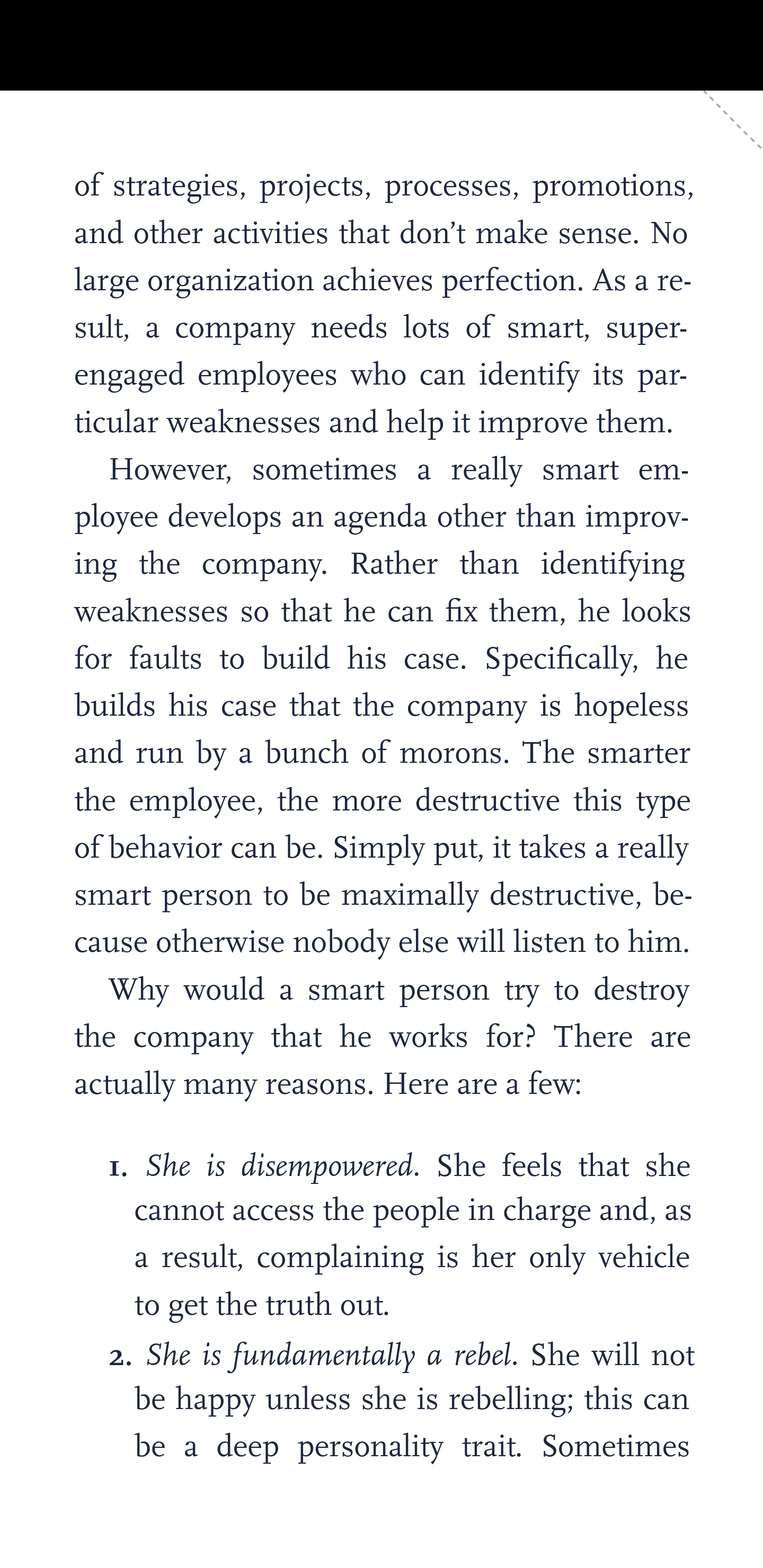
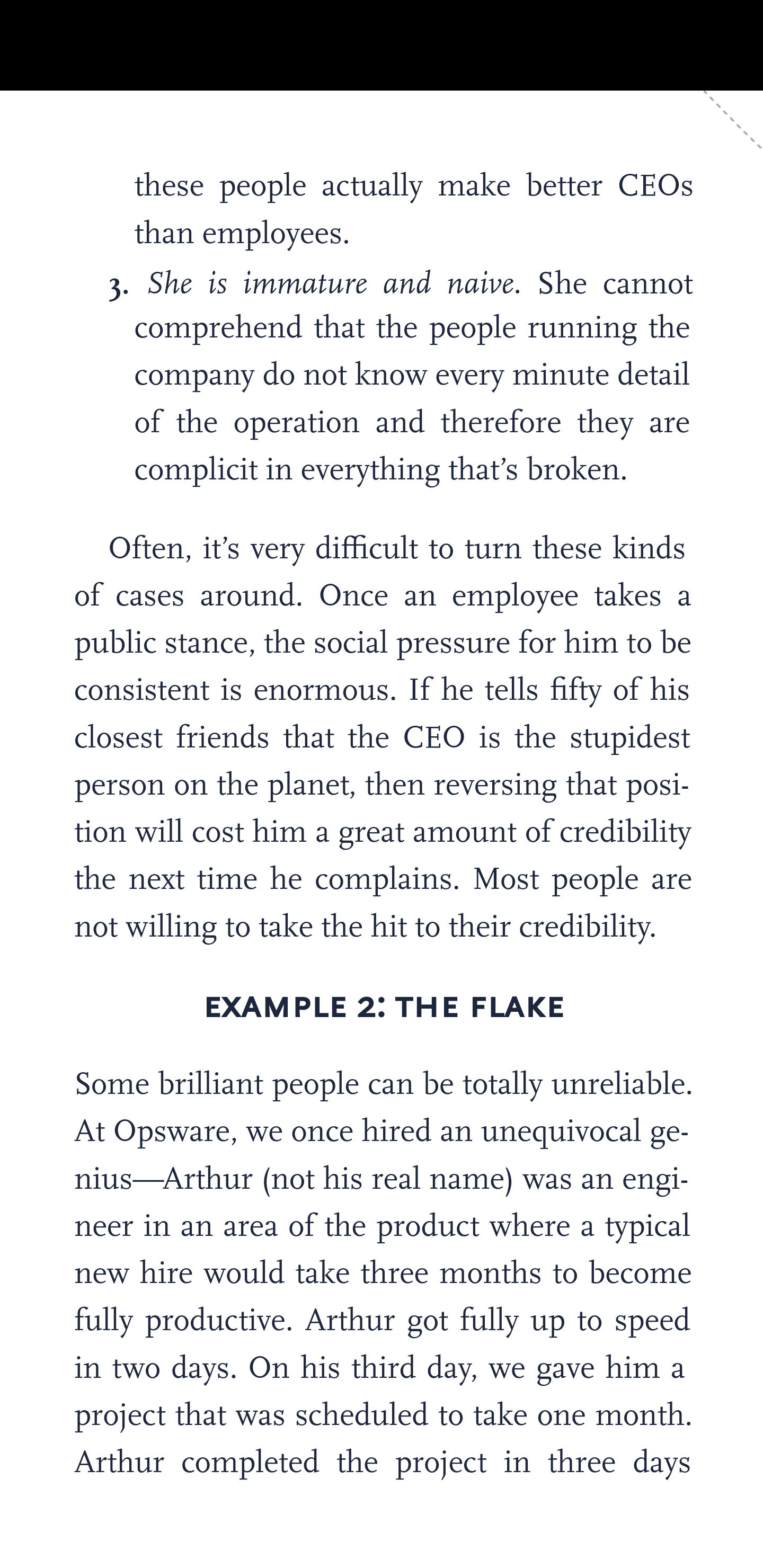
- BookNotes 📗On the Shortness of Life Quotes
- BookNotes 📗On the Shortness of Life Quotes
- BookNotes 📗The Tao of Pooh Quotes
- p. 26
- p. 52
- p. 67
- p. 69
- p. 79
- p. 84
- p. 85
- p. 88
- p. 89
- p. 26
- BookNotes 📗Purple Cow
- A lot of birds fly in formations. If it wasn’t for the formation, Canadian Geese wouldn’t have the energy to complete their long migration. It has to do with the formation leader breaking the wind and making it easier for the other birds to fly. Leaders frequently change when the current one gets tired and has to save energy by following another.
- BookNotes Blinkist 📗Words Can Change Your Brain
- negative thoughts cause harm in the brain by releasing stress hormones . They damage memory and cognitive skills
- negative thoughts cause harm in the brain by releasing stress hormones . They damage memory and cognitive skills
- BookNotes 📗Purple Cow
- According to the author, the Pantheon in Rome sees 1% of the tourism seen by the Leaning Tower of Piza. The reason? The latter is more remarkable and easier to talk about.
- BookNotes 📗Doing Content Right
- Blogs and content channels like Newsletter are like startups
- Blogs and content channels like Newsletter are like startups
- BookNotes 📗Be a Free Range Human
- How to know if your idea can pay enough
- I once received an email from someone who was trying to make a living from hand-made envelopes. She’d been making and selling her beautiful envelopes for years but never quite got it off the ground enough to cover her city lawyer salary and two mortgages. When I asked what had been holding her back, she immediately replied, ‘Time. I’m so busy, but I know if I find time to make more envelopes then things will work out.’
- Hmm. Something didn’t add up here – and I mean that literally.
- Five minutes and one calculator later it was crystal clear that in order to make her bare minimum she would have to sell more than 80 envelopes a day. That’s about 2,500 a month.
- When I pointed out the numbers she was floored. Somehow, this highly intelligent person had never stopped to do a five-minute calculation. Discovering the truth meant she was able to focus on making another more profitable idea work as her escape vessel, and continue to build up the envelopes on the side as a secondary income stream.
- Moral of the story: calculators can be cool, kiddies. Here’s how to do this for yourself right now.
- Identify how much you need to make per month (very roughly). Now divide that by how much you expect to make from your main product. So if you need to make $5,000 (before tax), and your main product/service is $500 that = 10 sales per month.
- That’s little more than two sales a week. Now imagine you’re launched, and have been out there doing this for a while, and people are interested in what you have to offer. In that scenario, does two per week (or whatever your number may be) sound like a reasonable number to achieve? If so, congratulations! You have an idea worth exploring further.
- Tip: don’t get bogged down in finding exact numbers. This is a sanity check, not a plan. Do the calculation now.
- Tip
- If you realize the idea as it stands isn’t going to make what you need no matter how successful you get, either adapt the idea (eg raise the price or find another sort of buyer who can pay/buy more) or add in extra income streams (eg create those greeting cards as part of a wider portfolio). It doesn’t mean you won’t end up using that idea at some point, it simply means it might not be the fastest way out of your work right now.
- BookNotes 📗Lean In
- BookNotes 📗Lean In
- My senior year of college, I was inducted into the Phi Beta Kappa honor society. At that time, Harvard and Radcliffe had separate chapters, so my ceremony was for women only. The keynote speaker, Dr. Peggy McIntosh from the Wellesley Centers for Women, gave a talk called “Feeling Like a Fraud.”1 She explained that many people, but especially women, feel fraudulent when they are praised for their accomplishments. Instead of feeling worthy of recognition, they feel undeserving and guilty, as if a mistake has been made. Despite being high achievers, even experts in their fields, women can’t seem to shake the sense that it is only a matter of time until they are found out for who they really are—impostors with limited skills or abilities.
- I thought it was the best speech I had ever heard. I was leaning forward in my chair, nodding vigorously. Carrie Weber, my brilliant and totally-not-a-fraud roommate, was doing the same. At last, someone was articulating exactly how I felt. Every time I was called on in class, I was sure that I was about to embarrass myself. Every time I took a test, I was sure that it had gone badly. And every time I didn’t embarrass myself—or even excelled—I believed that I had fooled everyone yet again. One day soon, the jig would be up.
- At the joint reception that followed the ceremony—an after-party for nerds, so I fit right in—I told one of my male classmates about Dr. McIntosh’s fantastic speech explaining how we all feel like frauds. He looked at me, confused, and asked, “Why would that be interesting?” Carrie and I later joked that the speech to the men was probably something like “How to Cope in a World Where Not Everyone Is as Smart as You.”
- BookNotes 📗Lean In
- Jungle Gym vs Ladder in Career forbes 5th most powerful women
- BookNotes 📗Be a Free Range Human
- Outside of employment, nobody is interested in years of experience. They want to know what can you help them with.
- Doing regular blogs/podcasts/events can help validate ideas quickly
- BookNotes Blinkist 📗Thank You for Arguing
- BookNotes 📗 The Power of Habit
- According to the book, Paul O’Neill found that one of the reasons for high child mortality in the rural areas of the USA was poor education of high school teachers when it comes to proper nutrition. One of the videos of mortality was premature birth which stemmed from undernourished mother which were in turn never educated in the importance of proper nutrition.
- The author mentions that keeping a log of everything one eats helps increase the chance of succesful weight loss twice as much as the control group.
- BookNotes 📗Enchiridion
- BookNotes 12 Rules for Life
- The narrative at times reminds me of 📗Non-Violent Communication
- Sometimes the author uses simple examples, at other times uses deep philosophical stories
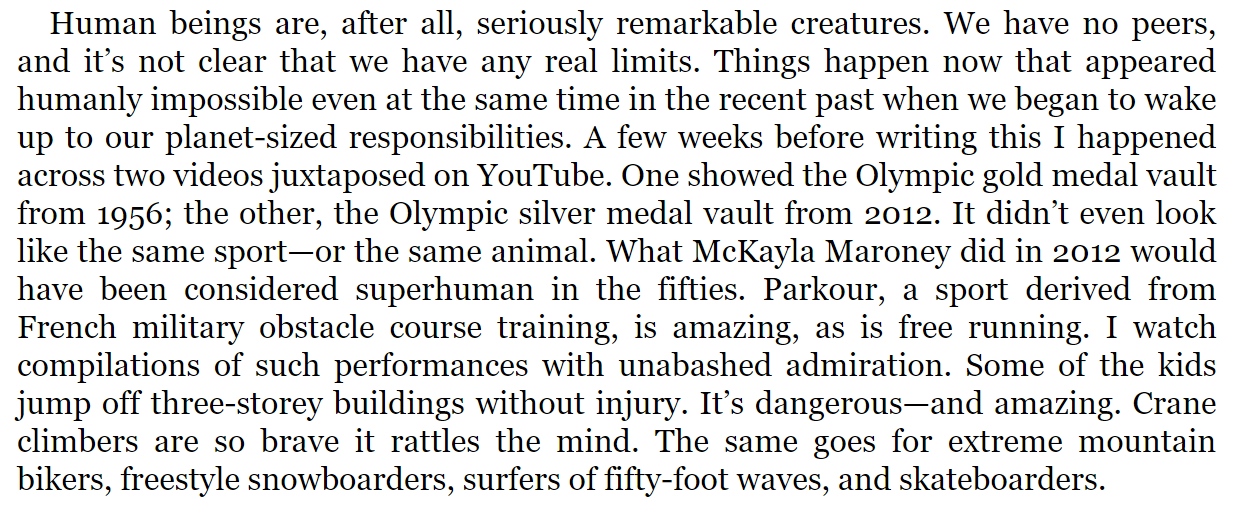
- BookNotes 12 Rules for Life
- Some ideas presented in the book reminded me of 📗Antifragile
- There were also references to Mastery in a chapter about kids skateboarding. However, the references were rather shallow and interlaced with a lot of digressions.
- BookNotes 12 Rules for Life
- The author sees agreeableness as a vice.
- BookNotes The Sandman
- Day 2 of listening to The Sandman Audio Drama.
It’s still very very good! The team managed to convey the original atmosphere and add a few gifts of their own.
- BookNotes The Sandman
- Day 3 of The Sandman Audio Drama.
I wonder if I’ll be able to follow the plot if I haven’t read the original first. That said, it’s still great and evoking all the emotions that were present when I first read it.
Too bad no “Mr. Sandman” or “Dream a Little Dream of Me” (yet)
- BookNotes 12 Rules for Life
- In one of the chapters, the author mentions that children should not be bother while skating. This has something to do with mastery. But the topic of mastery is almost as soon forgotten as it has been mentioned. Instead, we get a lot of preaching on topics that are almost unrelated.
- One of the subchapters is titled “Compassion as a Vice” and the author suggests that avoiding conflict is equal to allowing others walk on you which are hardly the same thing.
- The book is a mix of science, personal anecdotes, personal world-view of an author, and some wisdom. This reminds me of “📗Antifragile”. While I disliked the brutal and barbaric style of Nassim Nicholas Taleb, I very much liked the content and I can recommend the book wholeheartadly. At the same time, the style presented by Jordan B. Peterson is much more pleasant and in almost all means better but at the same time, it just feels filled with fluff. Taleb comes straight to the point and the anecdotes make the point stronger, Peterson, from my perspective, rather dilutes the topic and most of the text is not meant to support the rules presented in the book.
- BookNotes 12 Rules for Life
- In one of the chapters, the author mentions that children should not be bother while skating. This has something to do with mastery. But the topic of mastery is almost as soon forgotten as it has been mentioned. Instead, we get a lot of preaching on topics that are almost unrelated.
- One of the subchapters is titled “Compassion as a Vice” and the author suggests that avoiding conflict is equal to allowing others walk on you which are hardly the same thing.
- The book is a mix of science, personal anecdotes, personal world-view of an author, and some wisdom. This reminds me of “📗Antifragile”. While I disliked the brutal and barbaric style of Nassim Nicholas Taleb, I very much liked the content and I can recommend the book wholeheartadly. At the same time, the style presented by Jordan B. Peterson is much more pleasant and in almost all means better but at the same time, it just feels filled with fluff. Taleb comes straight to the point and the anecdotes make the point stronger, Peterson, from my perspective, rather dilutes the topic and most of the text is not meant to support the rules presented in the book.
- BookNotes The Sandman
- Day 5 of The Sandman Audio Drama.
Oh my, I almost forgotten how much I loved “24 hours”!
- BookNotes The Sandman
- Yesterday was day 4 of The Sandman Audio Drama. Finally, I got some “Mr. Sandman”.
The voice and the manner of speech of the Morpheus is not something I would expect from a figure like this, but I think I like it anyway.
Still within “Preludes & Nocturnes”.
- BookNotes The Sandman
- Day 5 of The Sandman Audio Drama.
Oh my, I almost forgotten how much I loved “24 hours”!
- BookNotes The Sandman
- Yesterday was day 4 of The Sandman Audio Drama. Finally, I got some “Mr. Sandman”.
The voice and the manner of speech of the Morpheus is not something I would expect from a figure like this, but I think I like it anyway.
Still within “Preludes & Nocturnes”.
- BookNotes The Sandman
- Day… (Do days matter anymore?) of The Sandman Audio Drama.
It’s “The Doll’s House” and it’s still splendid. Lovely! Better than I expected ( which is rarely the case with adaptations for me)
Also, I feel I’m watched by a gargoyle.
Meep?
- BookNotes Blinkist 📗Brave, Not Perfect
- BookNotes The Real Sherlock
- Arthur Conan Doyle
- studied medicine in Edinburgh with Bram Stoker James Barrie
- based Sherlock Holmes on one of the professors that taught him
- was a surgeon on a whaler and fell to the Arctic Ocean several times
- fought in the Second Boer War where he met Winston Churchill
- Arthur Conan Doyle
- BookNotes The Sandman
- One of my favorite stories from “The Sandman” has always been “A Dream of a Thousand Cats”.
It is astory about how dreams shape the world. And at that, it is one of the truest and most human stories. After all, the only advantage homo sapiens has over other animals is our ability to turn our dreams into reality. To shape the world we live in according to our dreams.
If enough people can dream that money is good for trade then trade can happen.
If enough people believe democracy is the way to govern the world, … - …the democracy can happen.
If enough people believe in the Internet, the Internet can happen.
We live in the world of our dreams.
But “A Dream of a Thousand Cats” touches other topics as well.
It is a story about the power of the collective. About the drawbacks… - …of individualism and selfishness.
I’ve seen a few beautiful things crumble, because the people that made them stopped dreaming the same dreams.
“A Dream of a Thousand Cats” is also the most human, because it shows not only our power but also our cruelty. In that, … - …it reminds me of “Sapiens” by Yuval Noah Harari.
It also shows that freedom can be easily gave up in exchange for comfort. And that we will fool oursleves that this comfort comes at modest price (isn’t it similar to what we do with our personal data right now?).
When I read … - …it for the first time, I wouldn’t dream to hear it one day narrated by - @neilhimself - .
But as it turned out, thanks to The Sandman Audio Drama, I had this wonderful opportunity.
Even though, it is part of “The Sandman”, this story works very well out of context. You can… - …read it without touching the rest of the series and you will get the main point.
And if you are anything like me, you’ll be touched by it.
If you get this far, ask yourself what your dreams are. Then, ask yourself how you may realize them. If you find enough people who… - …will share those dreams with you, one day, your dreams may become reality.
- BookNotes 12 Rules for Life
- Tolstoy wanted his guns taken away and stayed away from ropes to avoid suicide temptations
- Jordan B. Peterson believes using physical and psychological violence against kids is justified
- BookNotes 12 Rules for Life
- The author expresses the fallacy presented in 📗Homo Deus that animals only act on instinct and can’t plan for the future
- A lot of the books seems to be either author’s autobiography or comments on the Bible
- The Bible commentaries don’t necessarily prove the rules, just give the author the ability to share his worldview
- BookNotes 📗It Doesn’t Have to be Crazy at Work:
- Vacation should feel like the person doesn’t work at the company anymore
- If there’s an office, it should be treated as a library
- BookNotes 📗It Doesn’t Have to be Crazy at Work
- BookNotes 📗It Doesn’t Have to be Crazy at Work:
- Vacation should feel like the person doesn’t work at the company anymore
- If there’s an office, it should be treated as a library
- BookNotes 📗It Doesn’t Have to be Crazy at Work
- diversity BookNotes Blinkist 📗Investing with Impact
-
BookNotes 📗Permission Marketing loyalty stamps can be used to shape consumer behavior
- BookNotes Blinkist The Personality Brokers
- BookNotes Blinkist Social Businesses
- BookNotes Blinkist Upcycle meat
-
Richard Branson mentioned about the chance encounter when he met the Queen of some country because she was interested in ballooning. This encounter helped him rescue British hostages from Saddam Hussein. 📗Losing My Virgnity BookNotes serendipity
- BookNotes 📗Homo Deus Coca-Cola kills more people than terrorism each year.
- BookNotes 📗Homo Deus: Gross National Happiness
-
BookNotes 📗Homo Deus: Amortals may want to separate themselves from the poor masses in order to reduce fragility
- BookNotes 📗Homo Deus Coca-Cola kills more people than terrorism each year.
- BookNotes 📗Homo Deus: Gross National Happiness
-
BookNotes 📗Homo Deus: Amortals may want to separate themselves from the poor masses in order to reduce fragility
- BookNotes 📗Homo Deus Coca-Cola kills more people than terrorism each year.
- BookNotes 📗Homo Deus: Gross National Happiness
-
BookNotes 📗Homo Deus: Amortals may want to separate themselves from the poor masses in order to reduce fragility
- BookNotes 📗Everything is F*cked
- BookNotes 📗The Subtle Art of Not Giving a F*ck
- BookNotes 📗Be a Free Range Human
- BookNotes 📗Everything is F*cked
- BookNotes 📗The Subtle Art of Not Giving a F*ck
- BookNotes 📗Be a Free Range Human
- BookNotes 📗Everything is F*cked
- BookNotes 📗The Subtle Art of Not Giving a F*ck
- BookNotes 📗Be a Free Range Human
- BookNotes Tao Te Ching
- BookNotes Blinkist ServiceDesignThinking
- BookNotes Tao Te Ching
- BookNotes 📗Doing Content Right
- BookNotes Lean Startup
-
BookNotes Blinkist #📗Elevate BlinkistFavorites
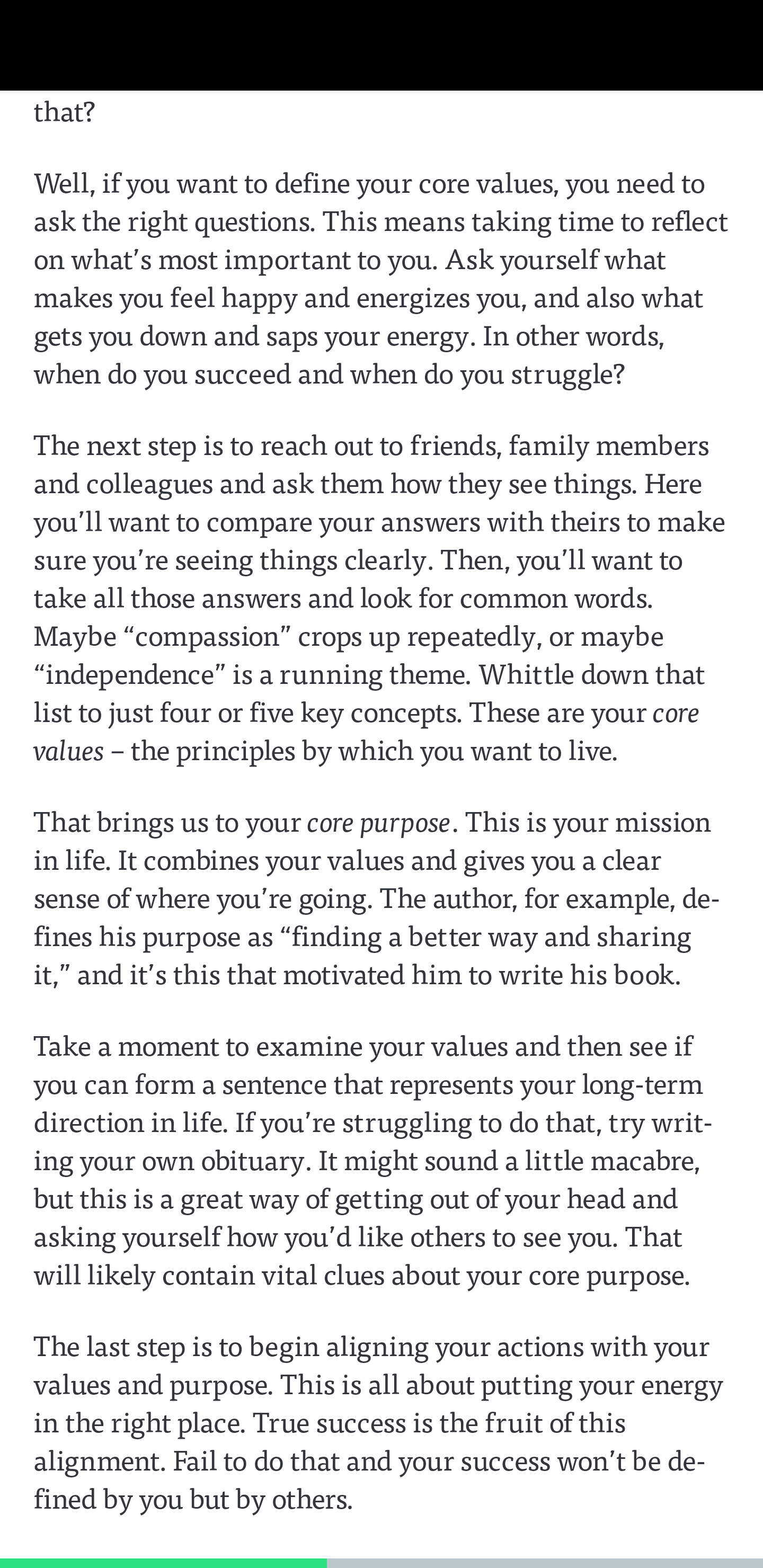
- BookNotes 📗Lean In
- For women, feeling like a fraud is a symptom of a greater problem. We consistently underestimate ourselves. Multiple studies in multiple industries show that women often judge their own performance as worse than it actually is, while men judge their own performance as better than it actually is. Assessments of students in a surgery rotation found that when asked to evaluate themselves, the female students gave themselves lower scores than the male students despite faculty evaluations that showed the women outperformed the men. A survey of several thousand potential political candidates revealed that despite having comparable credentials, the men were about 60 percent more likely to think that they were “very qualified” to run for political office. A study of close to one thousand Harvard law students found that in almost every category of skills relevant to practicing law, women gave themselves lower scores than men. Even worse, when women evaluate themselves in front of other people or in stereotypically male domains, their underestimations can become even more pronounced.
- Ask a man to explain his success and he will typically credit his own innate qualities and skills. Ask a woman the same question and she will attribute her success to external factors, insisting she did well because she “worked really hard,” or “got lucky,” or “had help from others.” Men and women also differ when it comes to explaining failure. When a man fails, he points to factors like “didn’t study enough” or “not interested in the subject matter.” When a woman fails, she is more likely to believe it is due to an inherent lack of ability. And in situations where a man and a woman each receive negative feedback, the woman’s self-confidence and self-esteem drop to a much greater degree. The internalization of failure and the insecurity it breeds hurt future performance, so this pattern has serious long-term consequences.
- There is little downside when men negotiate for themselves. People expect men to advocate on their own behalf, point out their contributions, and be recognized and rewarded for them. For men, there is truly no harm in asking. But since women are expected to be concerned with others, when they advocate for themselves or point to their own value, both men and women react unfavorably. Interestingly, women can negotiate as well as or even more successfully than men when negotiating for others (such as their company or a colleague), because in these cases, their advocacy does not make them appear self-serving. However, when a woman negotiates on her own behalf, she violates the perceived gender norm. Both male and female colleagues often resist working with a woman who has negotiated for a higher salary because she’s seen as more demanding than a woman who refrained from negotiating. Even when a woman negotiates successfully for herself, she can pay a longer-term cost in goodwill and future advancement. Regrettably, all women are Heidi. Try as we might, we just can’t be Howard.
- When I was negotiating with Facebook’s founder and CEO Mark Zuckerberg for my compensation, he made me an offer that I thought was fair. We had been having dinner several nights a week for more than a month and a half, discussing Facebook’s mission and his vision for the future. I was ready to accept the job. No, I was dying to accept the job. My husband, Dave, kept telling me to negotiate, but I was afraid of doing anything that might botch the deal. I could play hardball, but then maybe Mark would not want to work with me. Was it worth it when I knew that ultimately I was going to accept the offer? I concluded it was not. But right before I was about to say yes, my exasperated brother-in-law, Marc Bodnick, blurted out, “Damn it, Sheryl! Why are you going to make less than any man would make to do the same job?”
- My brother-in-law didn’t know the details of my deal. His point was simply that no man at my level would consider taking the first offer. This was motivating. I went back to Mark and said that I couldn’t accept, but I prefaced it by telling him, “Of course you realize that you’re hiring me to run your deal teams, so you want me to be a good negotiator. This is the only time you and I will ever be on opposite sides of the table.” Then I negotiated hard, followed by a nervous night wondering if I had blown it. But Mark called me the next day. He resolved the gap by improving my offer, extending the terms of my contract from four to five years and allowing me to buy into the company as well. His creative solution not only closed the deal, but also set us up for a longer-term alignment of interests.
- One reason women avoid stretch assignments and new challenges is that they worry too much about whether they currently have the skills they need for a new role. This can become a self-fulfilling prophecy, since so many abilities are acquired on the job. An internal report at Hewlett-Packard revealed that women only apply for open jobs if they think they meet 100 percent of the criteria listed. Men apply if they think they meet 60 percent of the requirements. This difference has a huge ripple effect. Women need to shift from thinking “I’m not ready to do that” to thinking “I want to do that—and I’ll learn by doing it.”
- My first day at work at the World Bank, Larry Summers asked me to perform some calculations. I was at a loss on how to proceed, so I turned to Lant Pritchett for help. “Just put it into Lotus 1-2-3,” he advised. I told him that I didn’t know how to do that. “Wow,” he exclaimed. “I can’t believe you’ve gotten this far, or even how you can understand basic economics, without knowing how to use Lotus.” I went home convinced that I was going to get fired. The next day, Lant sat me down. My heart was pounding. But instead of firing me, he taught me how to use the program. That’s a great boss.
- Women are also more reluctant to apply for promotions even when deserved, often believing that good job performance will naturally lead to rewards. Carol Frohlinger and Deborah Kolb, founders of Negotiating Women, Inc., describe this as the “Tiara Syndrome,” where women “expect that if they keep doing their job well someone will notice them and place a tiara on their head.” In a perfect meritocracy, tiaras would be doled out to the deserving, but I have yet to see one floating around an office. Hard work and results should be recognized by others, but when they aren’t, advocating for oneself becomes necessary. As discussed earlier, this must be done with great care. But it must be done.
-
BookNotes 📗It Doesn’t Have to be Crazy at Work 6 week making sprints, two weeks for sharpening the saw
- BookNotes 📗Doing Content Right
-
BookNotes 📗The Gentle Art of Swedish Death Cleaning Blinkist

-
BookNotes Books 📗Losing My Virgnity Branson started Virgin Store when there was postal services strike and they couldn’t mail the records to the customers. serendipity
- BookNotes Blinkist BlinkistFavorites GlassHouse
- BookNotes 📗Brave New World Quotes
- “Of course it is,” the Controller agreed. “But that’s the price we have to pay for stability. You’ve got to choose between happiness and what people used to call high art. We’ve sacrificed the high art. We have the feelies and the scent organ instead.”
- “Of course it does. Actual happiness always looks pretty squalid in comparison with the over-compensations for misery. And, of course, stability isn’t nearly so spectacular as instability. And being contented has none of the glamour of a good fight against misfortune, none of the picturesqueness of a struggle with temptation, or a fatal overthrow by passion or doubt. Happiness is never grand.”
- “We could synthesize every morsel of food, if we wanted to. But we don’t. We prefer to keep a third of the population on the land. For their own sakes–because it takes longer to get food out of the land than out of a factory. Besides, we have our stability to think of. We don’t want to change. Every change is a menace to stability. That’s another reason why we’re so chary of applying new inventions. Every discovery in pure science is potentially subversive; even science must sometimes be treated as a possible enemy. Yes, even science.”
- “Yes,” Mustapha Mond was saying, “that’s another item in the cost of stability. It isn’t only art that’s incompatible with happiness; it’s also science. Science is dangerous; we have to keep it most carefully chained and muzzled.”
- BookNotes 📗Brave New World
- The dialog between John (the Savage) and Mustapha Mond reminds me of how 📗Everything is F*cked mentioned that optimising for happiness instead of truth is a way towards disaster.
- BookNotes 📗Everything is F*cked
- The begining of the book references concentration campswhich reminded me of A Man’s Search for Meaning. However, when it comes to style, I much preferred Victor L. Frankl’s one.
- I don’t know why the author insists on using a lot of expletives, but it doesn’t help with his message. One of the observations is that instead of looking for truth, people are looking for happiness and convenience. Yet, the simplistic and vulgar style suits better those convenient messages, rather than philosophical thougts (to which this book aspires).
- BookNotes 📗Make
- Books are outdated by definition
- Books are outdated by definition
- BookNotes 📗Brave New World Quotes
- “Of course it is,” the Controller agreed. “But that’s the price we have to pay for stability. You’ve got to choose between happiness and what people used to call high art. We’ve sacrificed the high art. We have the feelies and the scent organ instead.”
- “Of course it does. Actual happiness always looks pretty squalid in comparison with the over-compensations for misery. And, of course, stability isn’t nearly so spectacular as instability. And being contented has none of the glamour of a good fight against misfortune, none of the picturesqueness of a struggle with temptation, or a fatal overthrow by passion or doubt. Happiness is never grand.”
- “We could synthesize every morsel of food, if we wanted to. But we don’t. We prefer to keep a third of the population on the land. For their own sakes–because it takes longer to get food out of the land than out of a factory. Besides, we have our stability to think of. We don’t want to change. Every change is a menace to stability. That’s another reason why we’re so chary of applying new inventions. Every discovery in pure science is potentially subversive; even science must sometimes be treated as a possible enemy. Yes, even science.”
- “Yes,” Mustapha Mond was saying, “that’s another item in the cost of stability. It isn’t only art that’s incompatible with happiness; it’s also science. Science is dangerous; we have to keep it most carefully chained and muzzled.”
- BookNotes 📗Brave New World
- The dialog between John (the Savage) and Mustapha Mond reminds me of how 📗Everything is F*cked mentioned that optimising for happiness instead of truth is a way towards disaster.
- BookNotes 📗Everything is F*cked
- The begining of the book references concentration campswhich reminded me of A Man’s Search for Meaning. However, when it comes to style, I much preferred Victor L. Frankl’s one.
- I don’t know why the author insists on using a lot of expletives, but it doesn’t help with his message. One of the observations is that instead of looking for truth, people are looking for happiness and convenience. Yet, the simplistic and vulgar style suits better those convenient messages, rather than philosophical thougts (to which this book aspires).
- BookNotes 📗Make
- Books are outdated by definition
- Books are outdated by definition
- BookNotes 📗Brave New World Quotes
- “Of course it is,” the Controller agreed. “But that’s the price we have to pay for stability. You’ve got to choose between happiness and what people used to call high art. We’ve sacrificed the high art. We have the feelies and the scent organ instead.”
- “Of course it does. Actual happiness always looks pretty squalid in comparison with the over-compensations for misery. And, of course, stability isn’t nearly so spectacular as instability. And being contented has none of the glamour of a good fight against misfortune, none of the picturesqueness of a struggle with temptation, or a fatal overthrow by passion or doubt. Happiness is never grand.”
- “We could synthesize every morsel of food, if we wanted to. But we don’t. We prefer to keep a third of the population on the land. For their own sakes–because it takes longer to get food out of the land than out of a factory. Besides, we have our stability to think of. We don’t want to change. Every change is a menace to stability. That’s another reason why we’re so chary of applying new inventions. Every discovery in pure science is potentially subversive; even science must sometimes be treated as a possible enemy. Yes, even science.”
- “Yes,” Mustapha Mond was saying, “that’s another item in the cost of stability. It isn’t only art that’s incompatible with happiness; it’s also science. Science is dangerous; we have to keep it most carefully chained and muzzled.”
- BookNotes 📗Brave New World
- The dialog between John (the Savage) and Mustapha Mond reminds me of how 📗Everything is F*cked mentioned that optimising for happiness instead of truth is a way towards disaster.
- BookNotes 📗Everything is F*cked
- The begining of the book references concentration campswhich reminded me of A Man’s Search for Meaning. However, when it comes to style, I much preferred Victor L. Frankl’s one.
- I don’t know why the author insists on using a lot of expletives, but it doesn’t help with his message. One of the observations is that instead of looking for truth, people are looking for happiness and convenience. Yet, the simplistic and vulgar style suits better those convenient messages, rather than philosophical thougts (to which this book aspires).
- BookNotes 📗Make
- Books are outdated by definition
- Books are outdated by definition
- BookNotes 📗Brave New World Quotes
- “Of course it is,” the Controller agreed. “But that’s the price we have to pay for stability. You’ve got to choose between happiness and what people used to call high art. We’ve sacrificed the high art. We have the feelies and the scent organ instead.”
- “Of course it does. Actual happiness always looks pretty squalid in comparison with the over-compensations for misery. And, of course, stability isn’t nearly so spectacular as instability. And being contented has none of the glamour of a good fight against misfortune, none of the picturesqueness of a struggle with temptation, or a fatal overthrow by passion or doubt. Happiness is never grand.”
- “We could synthesize every morsel of food, if we wanted to. But we don’t. We prefer to keep a third of the population on the land. For their own sakes–because it takes longer to get food out of the land than out of a factory. Besides, we have our stability to think of. We don’t want to change. Every change is a menace to stability. That’s another reason why we’re so chary of applying new inventions. Every discovery in pure science is potentially subversive; even science must sometimes be treated as a possible enemy. Yes, even science.”
- “Yes,” Mustapha Mond was saying, “that’s another item in the cost of stability. It isn’t only art that’s incompatible with happiness; it’s also science. Science is dangerous; we have to keep it most carefully chained and muzzled.”
- BookNotes 📗Brave New World
- The dialog between John (the Savage) and Mustapha Mond reminds me of how 📗Everything is F*cked mentioned that optimising for happiness instead of truth is a way towards disaster.
- BookNotes 📗Everything is F*cked
- The begining of the book references concentration campswhich reminded me of A Man’s Search for Meaning. However, when it comes to style, I much preferred Victor L. Frankl’s one.
- I don’t know why the author insists on using a lot of expletives, but it doesn’t help with his message. One of the observations is that instead of looking for truth, people are looking for happiness and convenience. Yet, the simplistic and vulgar style suits better those convenient messages, rather than philosophical thougts (to which this book aspires).
- BookNotes 📗Make
- Books are outdated by definition
- Books are outdated by definition
- BookNotes 📗Brave New World
- 📗Everything is F*cked mentioned that Freedom is not Free. In a dialogue between John (the Savage) and Mustapha Mond, John desires the freedom to be unhappy, the freedom to struggle, and the freedom to suffer. Citizens in the World State are protected from the unhappy as this may lead to instability.
- BookNotes 📗Make
- Crowdsourcing
- Social Capital may be measured by the number of different organisations you belong to (or indirectly a number of distinct hoobies you engage in). The more Social Capital you have, the more original your ideas are.
- IdeaMachine
- Brainstorming may lead to Groupthink
- An idea is multiplicative with the execution. It’s worthless on its own.
- Venture Capital
- Learning to Code Learning
- Crowdsourcing
- BookNotes 📗Everything is F*cked
- One of the last chapters references 📗Antifragile and contains advice that we should make ourselves antifragile to have better experience in this world.
- Somewhere at the beginning the author mentioned a thinking and feeling brain metaphor that I didn’t quite like. I really loved the comparison of thinking brain to the elephant rider and the feeling brain to the elephant as presented in The Happiness Hypothesis. As it turns out, this book is also referenced a bit later in the same chapter.
- BookNotes 📗Make
- bookkeeping taxes
- automation
- The author mentions the concept of Financial Independence, Retire Early (FIRE). It reminds me of Fuck You Money from 📗Antifragile.
- Mental Health
- Venture Capital entrepreneurs who failed previously have a higher chance of succeeding than those who try for the first time. Those who are backed by a VC and go public have 30% chance of success in next ventures.
- Charity Volunteering
- bookkeeping taxes
- BookNotes 📗Make
- Some Tools suggested by the author:
- Workflowy as an alternative to Trello
- Olark
- BetaList
- How much to make an app
- SimilarWeb
- Some Tools suggested by the author:
- BookNotes Introvert’s Guide to Personal Branding
- The “disdain for idle chitchat” resonates with me introversion




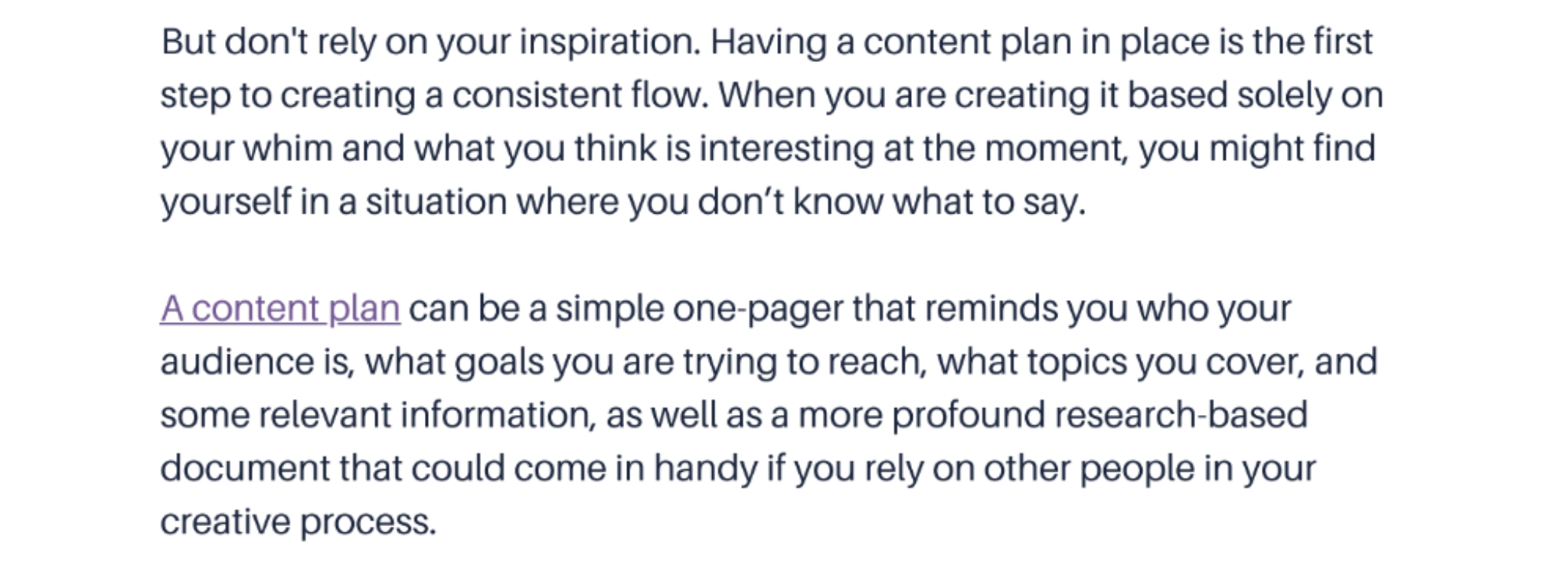
- focus

- introversion
- The “disdain for idle chitchat” resonates with me introversion
- BookNotes The Goal
- I know that The Phoenix Project was inspired by The Goal. However I didn’t realize that reading one would feel so much like reading the other. The stories and the main topics are different, yet the framework on which they are based is almost identical. I’ve read other Business Novels before (like Deadline) but there, the structure was different. Here, I almost feel like re-read ing the same book with a few things altered.
- BookNotes Blinkist BlinkistFavorites The Power of Ritual
- This one was recommended to me by Dreat
- The beggining reminded me of The Happiness Hypothesis where the author admits to being an atheist and described how religion is important for our well-being.
- I liked that the author likened CrossFit to a religion.
- Reading
- Communal Meal
- pilgrimage
- Communal Meal
- BookNotes 📗Everything is F*cked Community
- BookNotes 📗1984
- The book mentions that in 1984 nobody can be sure of the exact date unless it’s with 1 or 2 years accuracy. This remind me of 📗Sapiens where the author mentioned that the concept of accurate time was basically unknown prior to the industrial revolution.
- BookNotes 📗Everything is F*cked
- BookNotes 📗Make
- BookNotes 📗Everything is F*cked
- This reminds me of Amusing Ourselves to Death. Real freedom is not a freedom to choose your pleasures, but a freedom to choose your pains.
- Freedom Freedom is not Free Democracy
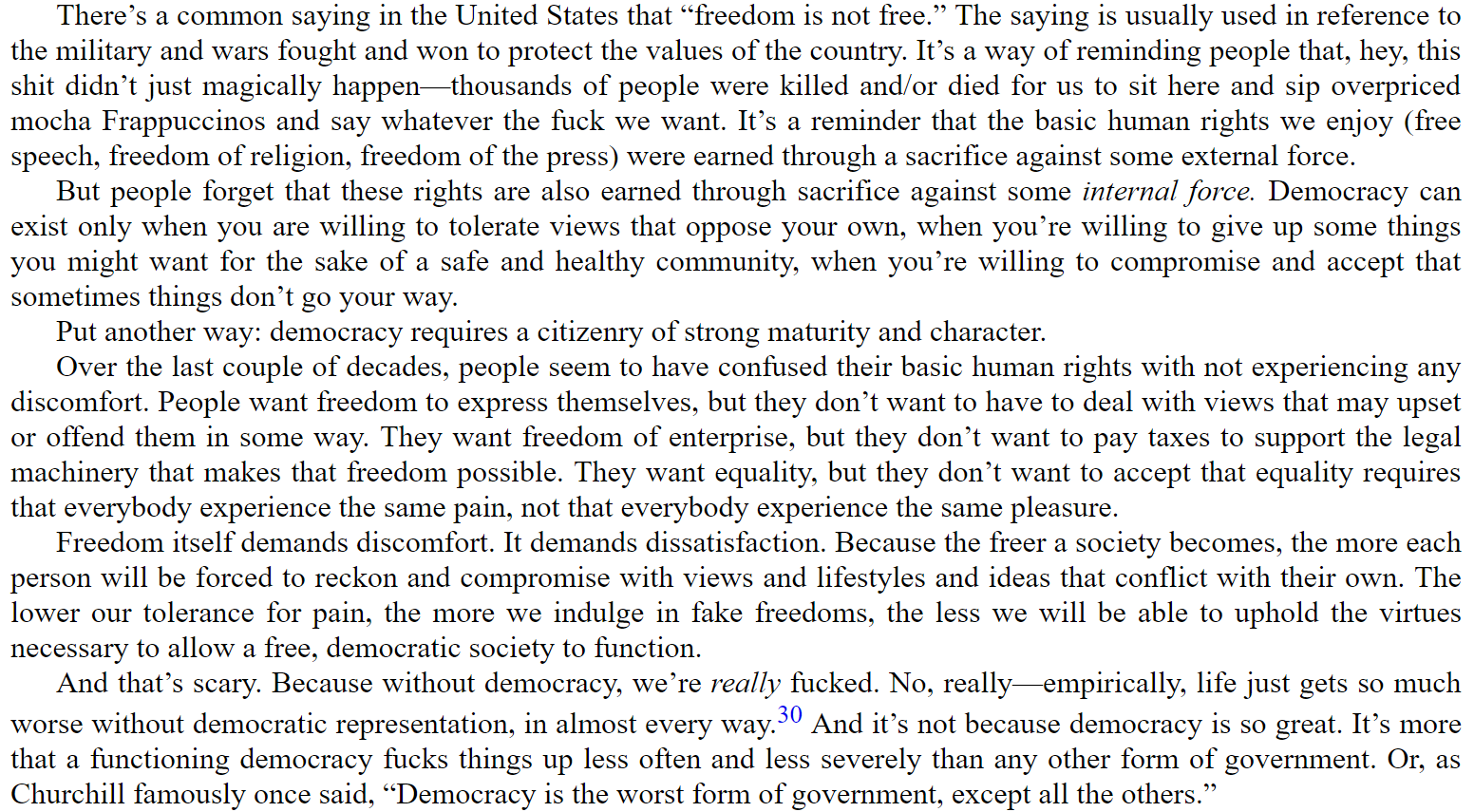
- This reminds me of Amusing Ourselves to Death. Real freedom is not a freedom to choose your pleasures, but a freedom to choose your pains.
- Blinkist BookNotes 📗Automatic Millionaire
- Investment Finance put 5% of income into Emergency Fund, ideally not a savings account but a money market
- Emergency Fund should cover 6-18 months of living expenses
- BookNotes 📗Mastery Quotes
- “In those days, for a program to be popular enough it would have to be written for Windows. As consummate hackers, they loathed everything about Windows and had never bothered to learn how to develop applications for it. They preferred to write in Lisp and have the program run on Unix, the open-source operating system.
They decided to postpone the inevitable and wrote the program for Unix anyway. To translate this later into Window’s would be easy, but as they contemplated doing this, they realized the terrible consequences it would lead to—once the program was launched in Windows, they would have to deal with users and perfect the program based on their feedback. This would mean they would be forced to think and program in Windows for months, perhaps years. This was too awful a prospect, and they seriously considered giving up.
One morning Graham, who had been sleeping on a mattress on the floor in Morris’s Manhattan apartment, woke up repealing certain words that must have come to him from a dream: “You could control the program by clicking on links.” He suddenly sat boll upright, as he realized what these words could mean—the possibility of creating a program to set up an online store that would run on the web server itself. People would download and use it through Netscape, clicking various links on the web page to set it up. This would mean he and Morris would bypass tire usual route of writing a program that users would download to their desktop. It would cut out the need ever to have to dabble in Windows. There was nothing out there like this, and yet it seemed like such an obvious solution. In a state of excitement he explained his epiphany to Morris, and they agreed to give it a try. Within a few days they finished the first version, and it functioned beautifully. Clearly, the concept of a web application would work.” - “To help yourself to cultivate serendipity, you should keep a notebook with you at all times. The moment any idea or observation comes, you note it down. You keep the notebook by your bed, careful to record ideas that come in those moments of fringe awareness—just before falling asleep, or just upon waking. In this notebook you record any scrap of thought that occurs to you, and include drawings, quotes from other books, anything at all. In this way, you will have the freedom to try out the most absurd ideas. The juxtaposition of so many random bits will be enough to spark various associations.
In general you must adopt a more analogical way of thinking, taking greater advantage of the associative powers of the mind. Thinking in terms of analogies and metaphors can be extremely helpful to the creative process. For instance, an argument people used in the sixteenth and seventeenth centuries to prove that the earth does not move was to say that a rock dropped from a tower lands at its base. If the earth were moving, they argued, it would fall elsewhere. Galileo, a man who habitually thought in terms of analogies, saw the earth in his mind as a kind of sailing ship in space. As he explained to doubters of the earth’s movement, a rock dropped from the mast of a moving ship still tands at its base.
These analogies can be tight and logical, such as Isaac Newton’s comparison of the falling apple from a tree in his garden to the moon falling in space. Or they can be loose and somewhat irrational, such as the jazz artist John Coltrane’s thinking of his own compositions as cathedrals of sound he was constructing. In any event, you must train yourself to look constantly for such analogies to reframe and expand your ideas.” - “In order to work, the writer Samuel Johnson required that he had on his desk a cat, which he would periodically stroke to make it purr, and a slice of orange. Supposedly only these various sensual cues could properly stimulate him for his work.
These examples are all related to the phenomenon of synesthesia- moments in which the stimulation of one sense provokes another. For instance, we hear a particular sound and it makes us think of a color. Studies have indicated that synesthesia is far more prevalent among artists and high- level thinkers. Some have speculated that synesthesia represents a high degree of interconnectivity in the brain, which also plays a role in intelligence. Creative people do not simply think in words, but use all of their senses, their entire bodies in the process. They find sense cues that stimulate their thoughts on many levels—whether it be the smell of something strong, or the tactile feel of a rubber ball. What this means is that they are more open to alternative ways of thinking, creating, and sensing the world. They allow themselves a broader range of sense experience. You must expand as well your notion of Lhinking and creativity beyond the confines of words and iniellectualizaiions. Stimulating your brain and senses from all directions will help unlock your natural creativity and help revive your original mind.” - “As it panned out, the novelty of their idea, which Graham and Morris had come upon largely because of their distaste for Windows, proved to have all kinds of unforeseen advantages. Working directly on the Internet, they could generate a continuous stream of new releases of the software and test them right away. They could interact directly with consumers, getting instant feedback on their program and improving it in days rather than the months it could take with desktop software. With no experience running a business, they did not think to hire salespeople to do the pitching; instead, they made the phone calls to potential clients themselves. But as they were the de facto salespeople, they were also the first to hear complaints or suggestions from consumers, and this gave them a real feel for the program’s weaknesses and how to improve it. Because it was so unique and came out of left field, they had no competitors to worry about; nobody could steal the idea because they were the only ones who were insane enough to attempt it.”
- BookNotes Blinkist The Worst Business Model in the World
- BookNotes 📗A Short History of Nearly Everything Quotes
- “The French imperial family in the same period discarded the state silver dinner service and replaced it with an aluminum one. The fashion was cutting edge even if the knives weren’t.”
- “They climbed back into the dish with brooms and scrubbing brushes and carefully swept it clean of what they referred to in a later paper as “white dielectric material,” or what is known more commonly as bird shit.”
- BookNotes Company of One
- Follow up with clients a few weeks or few months after you stop working with them.
- They may also be able to provide results-based testimonials.
- Create a schedule for following up with clients.
- Ask them if there is anything more you could be doing and if they know of anyone else who can benefit from your services.
- Segmented email automation
- After a week of purchase send an email how is the product doing
- Then the second email to those who responded with 7/20 or more to ask if you can feature their review
- WD40 was named as a 40th experiment, because the 39 others failed before it.
- Follow up with clients a few weeks or few months after you stop working with them.
- BookNotes The Hard Thing About Hard Things
- One of the insights from the book was that you are not building company culture because it helps you when everything is going well. Company culture is there for when the things go wrong. When people work long hours and the competition seems to be crushing your company, great culture is what keeps people working for the company.
- BookNotes #📗Mastery
- “It struck him […] that people suffered more from sameness, from the inability to think of doing things differently, than from non-conformity.”
- BookNotes #📗Mastery
- “These procedural and political rules may be dysfunctional or counterproductive, but your job is not to moralize about this or complain, but merely to understand them, to get a complete lay of the land. You are like an anthropologist studying an alien culture, attuned to all of its nuances and conventions. You are not there to change that culture; you will only end up being killed, or in the case of work, fired. Later, when you have attained power and mastery, you will be the one to rewrite or destroy these same rules.”
- “Although there are many ways in which this could influence the concept of aprrenticeship, it is the hacker approach to programming that may offer the most promising model for this new age. The model goes like this: You want to learn as many skills as possible, following the direction that circumstances lead you to, but only if they are related to your deepest interests. Like a hacker, you value the process of self-discovery and making things that are of the highest quality. You avoid the trap of following one set career path, you are not sure where this will all lead, but you are taking full advantage of the openness of information, all of the knowledge about skills at our disposal.”
- BookNotes 📗Checklist Manifesto
- Started “The Checklist Manifesto” by Atul Gawande .
For such a boring title, it starts enormously exciting.
The stories of death, near-death, and subsequent revival from various operating rooms got me really hooked! - Quotes - “He tried the usual surgical approach to remedy this—yelling at everyone to get their act together.” - As with “Why We Sleep?” this is one of the books I have to consume in small portions a time. Not that it’s boring (even though the titles is far from exciting). Quite the opposite. There’s so much information that I have to process it before getting to the next part. - I’m not yet in the middle of the book, and so far I’ve learned about: - - intricacies of surgeons’ jobs - - the miracle revival of a 3yo girl drowned in cold water in Austria that has been technically dead for an hour or two - - how the construction workers make sure the buildings won’t collapse and serve their purpose - - the emergency response to hurricane and flood damage by both public and private sectors - - how world-class chefs make sure their restaurant serve meals of the highest quality
- BookNotes Blinkist The Compass of Pleasure
- BookNotes Unfu*k Yourself
- I’ve listened to it as an audiobook read by the author, Gary John Bishop. I so loved the Scottish accent!
- The book is more or less a collection of affirmations with the acompanying rationale to why these affirmations are important.
- Rather than a book, I’d call it a script for a motivational speech with a twist. What’s the twist? The twist is that the author denounces most motivational speeches and instead on positivity, he focuses on rationality.
- The book is full of quotes, mostly from stoic philosophers. At first, I thought this was a nice addition. After a while, I got a little bored by how they are placed.
- Fun fact: it made me realize body building is not only about body building. It is also about learning how to pose. In other words: what we see is not how well does the body builder look. It is how well the body builder can pose with the given body.
- One point reminded me of The Hard Thing About Hard Things. It was the bias towards action instead of dwelling on your thoughts and worries. It struck me as I’m particularly guilty of overthinking and having trouble making the decision. Ben Horowitz mentioned that one of the features of a great CEO is the ability to make a decision and stick to it even if it’s tough and there’s a high uncertainty about it. That’s what people expect from a great CEO. You won’t please everybody, so decide on what to do and start doing it. Good thoughts are fine, but you are judged by your actions.
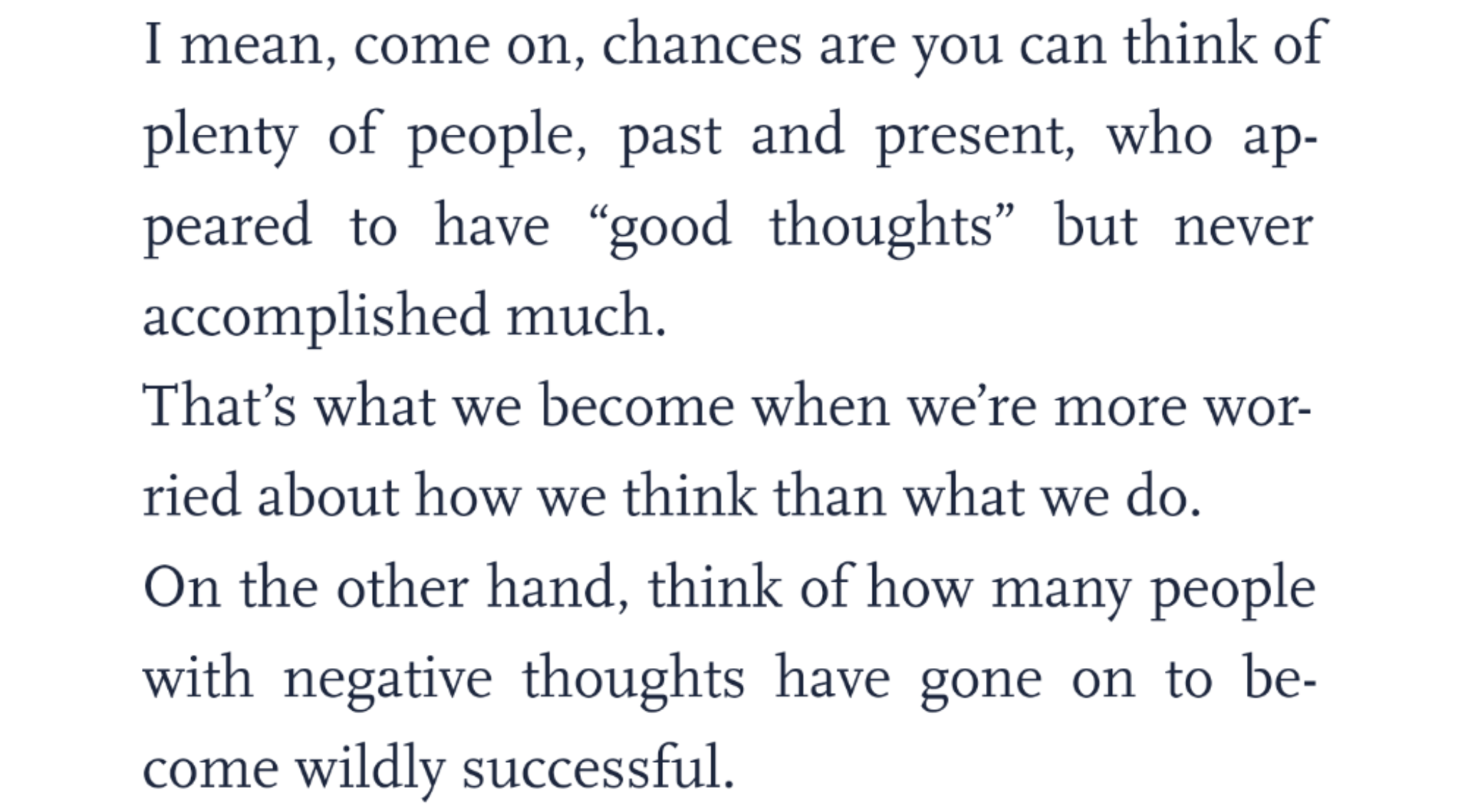
- BookNotes Company of One
- Educate the Audience
- Create email automation that educates and provides upsell possibilities
- BookNotes 📗Brave New World Quotes
- BookNotes 📗Brave New World
- BookNotes 📗Brave New World Quotes
- BookNotes 📗Brave New World
- BookNotes 📗Brave New World Quotes
- BookNotes 📗Brave New World
-
BookNotes Blinkist #📗Elevate BlinkistFavorites

- BookNotes 📗Everything is F*cked
- BookNotes 📗Everything is F*cked
- BookNotes 📗Everything is F*cked
- BookNotes 📗Everything is F*cked
- BookNotes 📗Everything is F*cked
- BookNotes 📗Everything is F*cked
- BookNotes 📗Everything is F*cked
- BookNotes 📗Everything is F*cked
- BookNotes 📗Homo Deus Coca-Cola kills more people than terrorism each year.
- BookNotes 📗Homo Deus: Gross National Happiness
-
BookNotes 📗Homo Deus: Amortals may want to separate themselves from the poor masses in order to reduce fragility
- BookNotes 📗Homo Deus Coca-Cola kills more people than terrorism each year.
- BookNotes 📗Homo Deus: Gross National Happiness
-
BookNotes 📗Homo Deus: Amortals may want to separate themselves from the poor masses in order to reduce fragility
- BookNotes 📗Homo Deus Coca-Cola kills more people than terrorism each year.
- BookNotes 📗Homo Deus: Gross National Happiness
-
BookNotes 📗Homo Deus: Amortals may want to separate themselves from the poor masses in order to reduce fragility
- BookNotes 📗It Doesn’t Have to be Crazy at Work 6 week making sprints, two weeks for sharpening the saw
- BookNotes 📗It Doesn’t Have to be Crazy at Work:
- BookNotes 📗It Doesn’t Have to be Crazy at Work 6 week making sprints, two weeks for sharpening the saw
- BookNotes 📗It Doesn’t Have to be Crazy at Work:
- BookNotes 📗It Doesn’t Have to be Crazy at Work 6 week making sprints, two weeks for sharpening the saw
- BookNotes 📗It Doesn’t Have to be Crazy at Work:
-
BookNotes Books 📗Losing My Virgnity Branson started Virgin Store when there was postal services strike and they couldn’t mail the records to the customers. serendipity
-
Richard Branson mentioned about the chance encounter when he met the Queen of some country because she was interested in ballooning. This encounter helped him rescue British hostages from Saddam Hussein. 📗Losing My Virgnity BookNotes serendipity
- BookNotes 📗Make
- BookNotes 📗Make
- BookNotes 📗Make
- BookNotes 📗Make
- BookNotes 📗Make
- BookNotes 📗Make
- BookNotes 📗Make
- BookNotes 📗Make
- BookNotes 📗Make
- BookNotes 📗Make
- BookNotes 📗Make
- BookNotes 📗Make
- BookNotes 📗Make
- BookNotes 📗Make
- BookNotes 📗Make
- BookNotes 📗Make
- BookNotes 📗Make
- BookNotes 📗Make
- BookNotes 📗Make
- BookNotes 📗Make
- BookNotes 📗On the Shortness of Life Quotes
- BookNotes 📗On the Shortness of Life Quotes
-
BookNotes 📗Permission Marketing loyalty stamps can be used to shape consumer behavior
- BookNotes 📗The Gentle Art of Swedish Death Cleaning Blinkist

